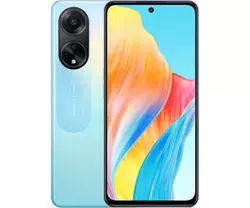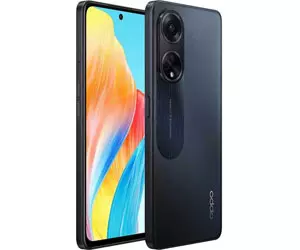OPPO A98 is a typical mid-range modern smartphone that may well be of interest to a young audience. Among the advantages of the model are a large IPS screen with a refresh rate of 120 Hz, a good main rear camera, stereo sound, an easy-to-use Color OS 13.1 interface, as well as long battery life and support for fast charging with a power of 67 W. Additional features that may come in handy include a MicroSD slot and a standard headphone jack, which have been abandoned in most smartphones. All this is packed into a rather stylish case. And now to the unpleasant, namely the price of the smartphone. There are a lot of interesting competitors in this price category with more productive chipsets, more interesting camera configurations, optical stabilisation, moisture protection and AMOLED displays. Including Samsung Galaxy A34.
5 reasons to buy OPPO A98:
- Large IPS display with 120Hz refresh rate
- Good main rear camera
- Long battery life and fast charging
- User-friendly Color OS 13.1
- MicroSD slot and standard headphone jack
3 reasons not to buy OPPO A98:
- Modest performance
- Depth sensor and microscope camera don't bring much value
- There are competitors with more interesting features
Quick jump:
- What's in the box?
- What does OPPO A98 look like?
- How good is the screen?
- What are the unlocking methods?
- What about performance, memory, sound, and battery life?
- How user-friendly is the interface?
- How good are the cameras?
- In the bottom line
What's in the box?
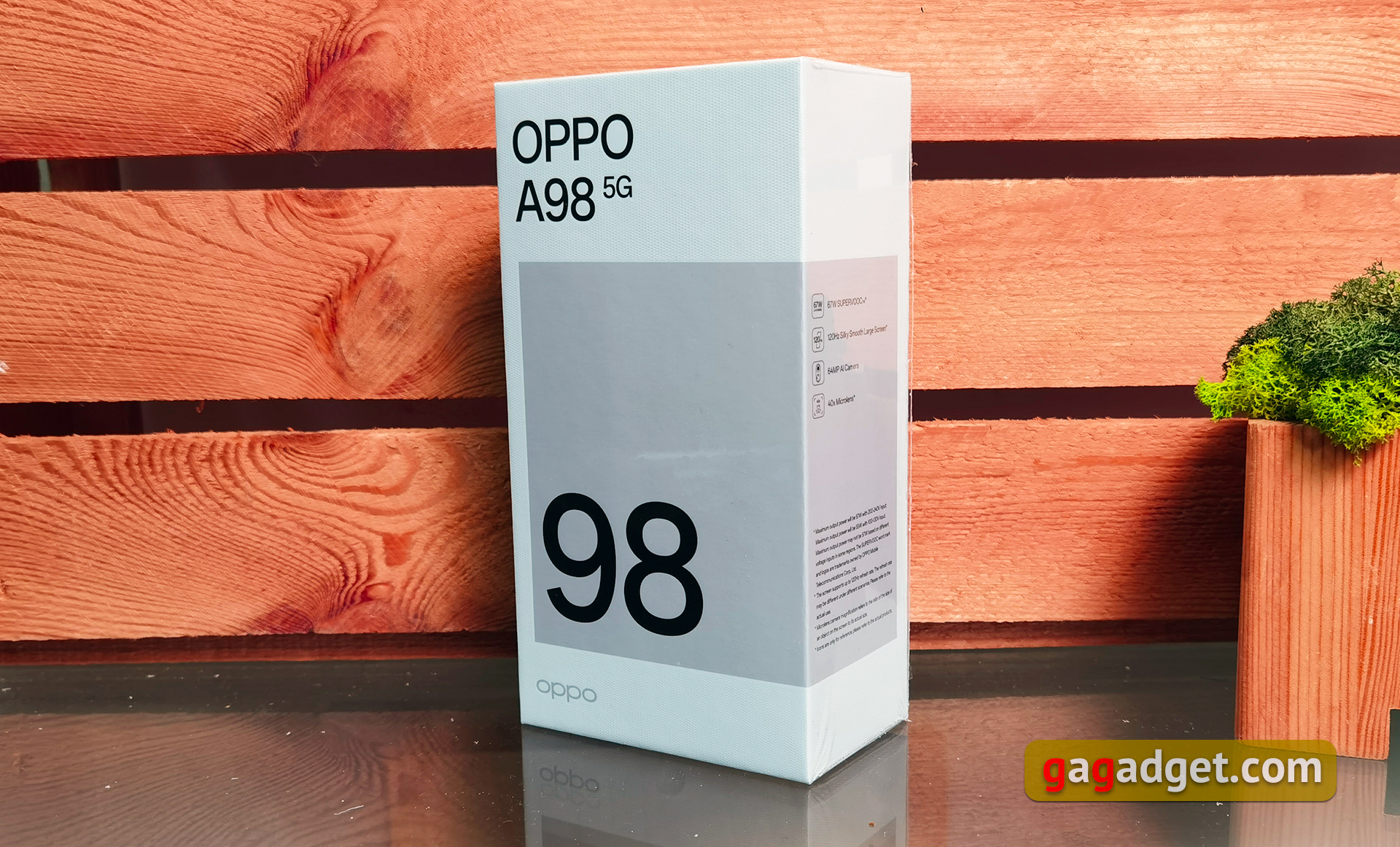
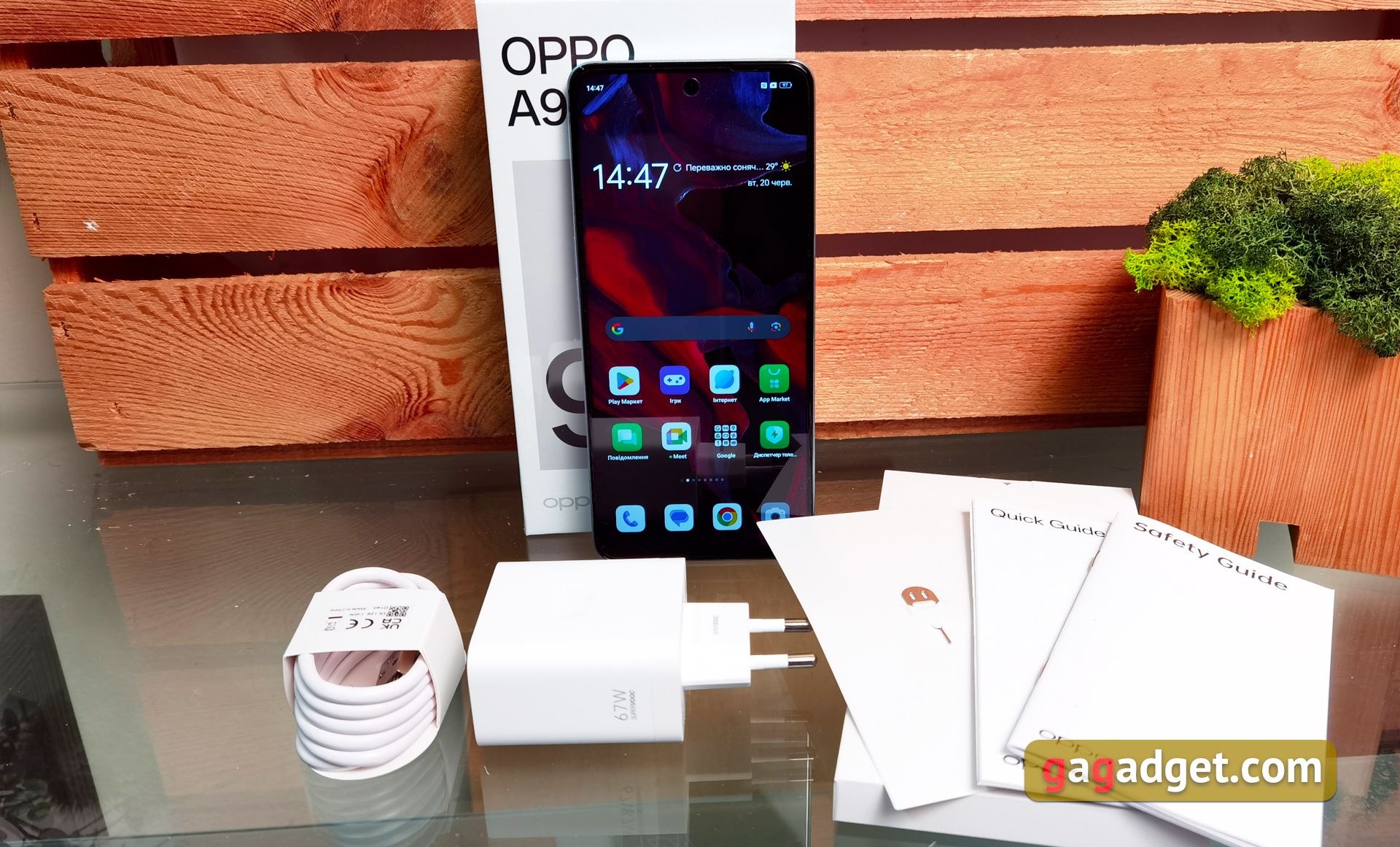

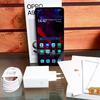
OPPO A98 is packaged in a minimalist white and grey box with the model name and main specifications. Inside is the smartphone itself, a 67W SUPERVOOC power supply, a Type-C cable, a tray tool, documentation and a screen protector.
What does the OPPO A98 look like?
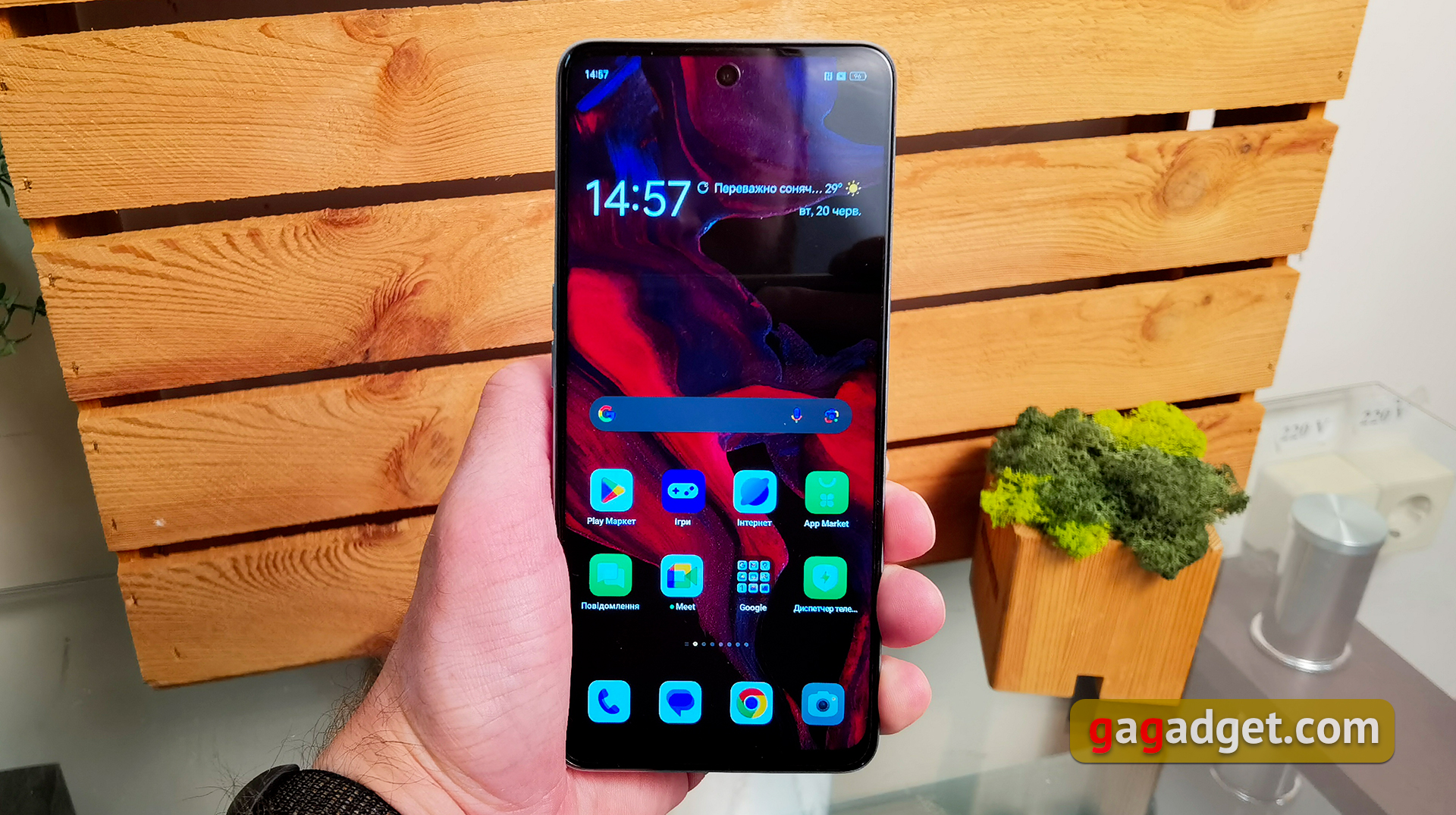
The OPPO A98 is a fairly large smartphone with a 6.72-inch screen. According to the company, it occupies 91.4% of the front surface. The front camera is located in a round hole at the top of the display. The bezels are relatively thin, but the slightly larger chin directly hints that this is a mid-range smartphone, not a flagship. Above the display is a thin, wide speaker mesh. It is used both for calls and for stereo sound.
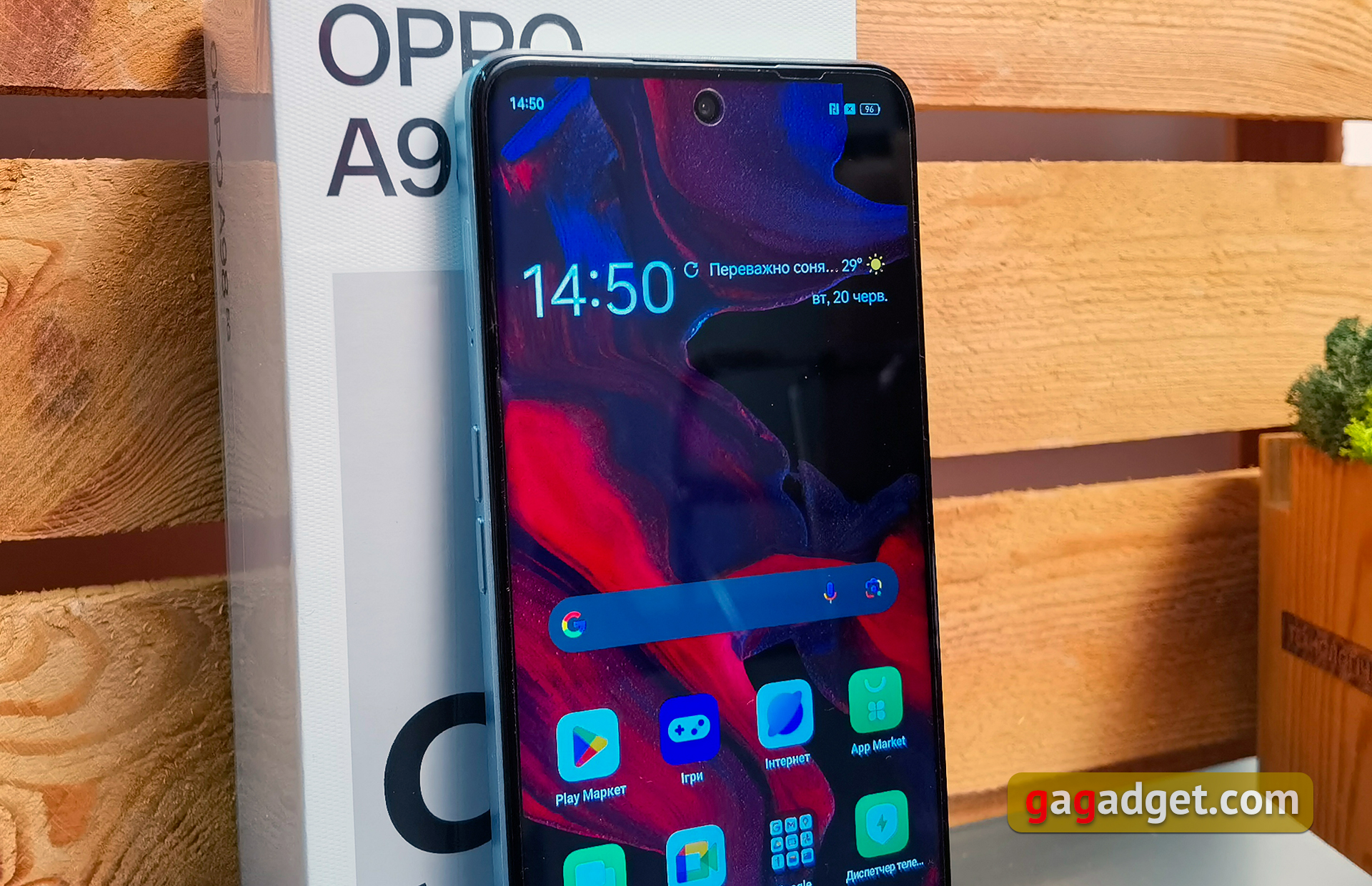
The body of the smartphone is made entirely of plastic. The frame is silver and has a flat shape. The buttons are arranged in a slightly unusual way, which is a feature of OPPO smartphones. The power button is located on the right side, it is combined with a fingerprint scanner. Separate volume buttons are on the opposite side. A little higher above them is the tray.
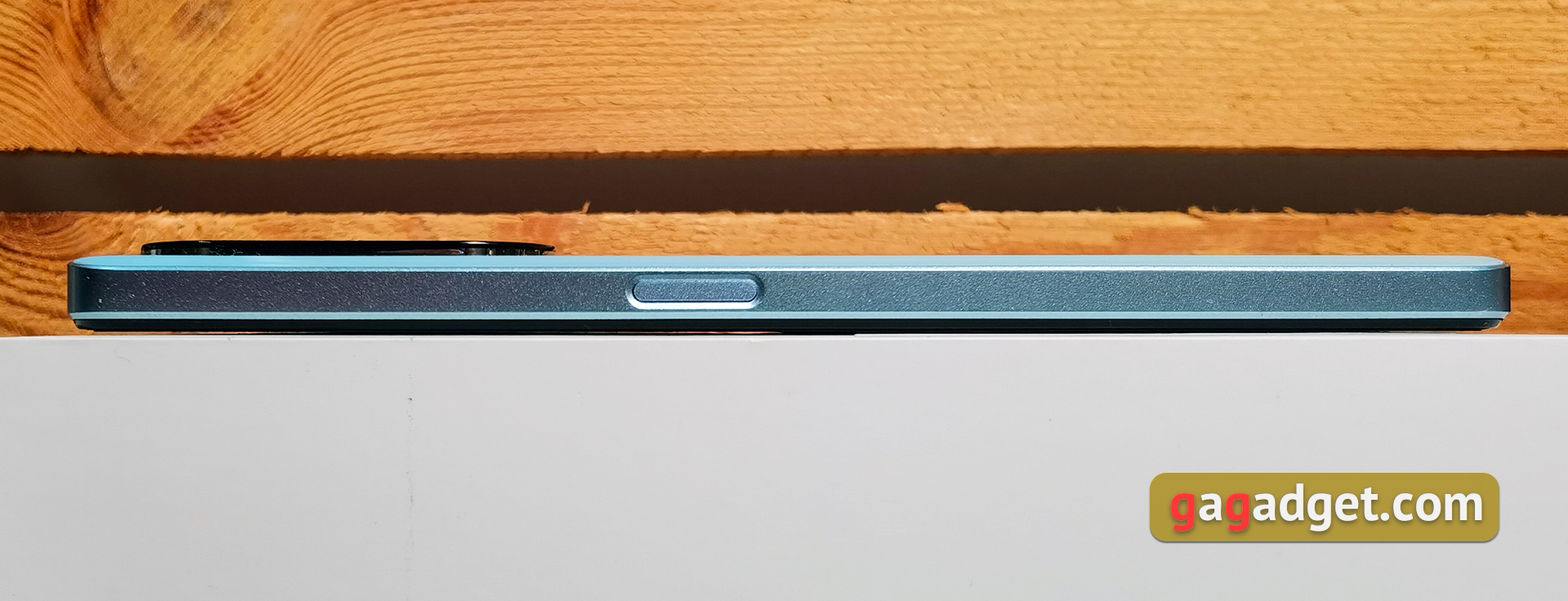
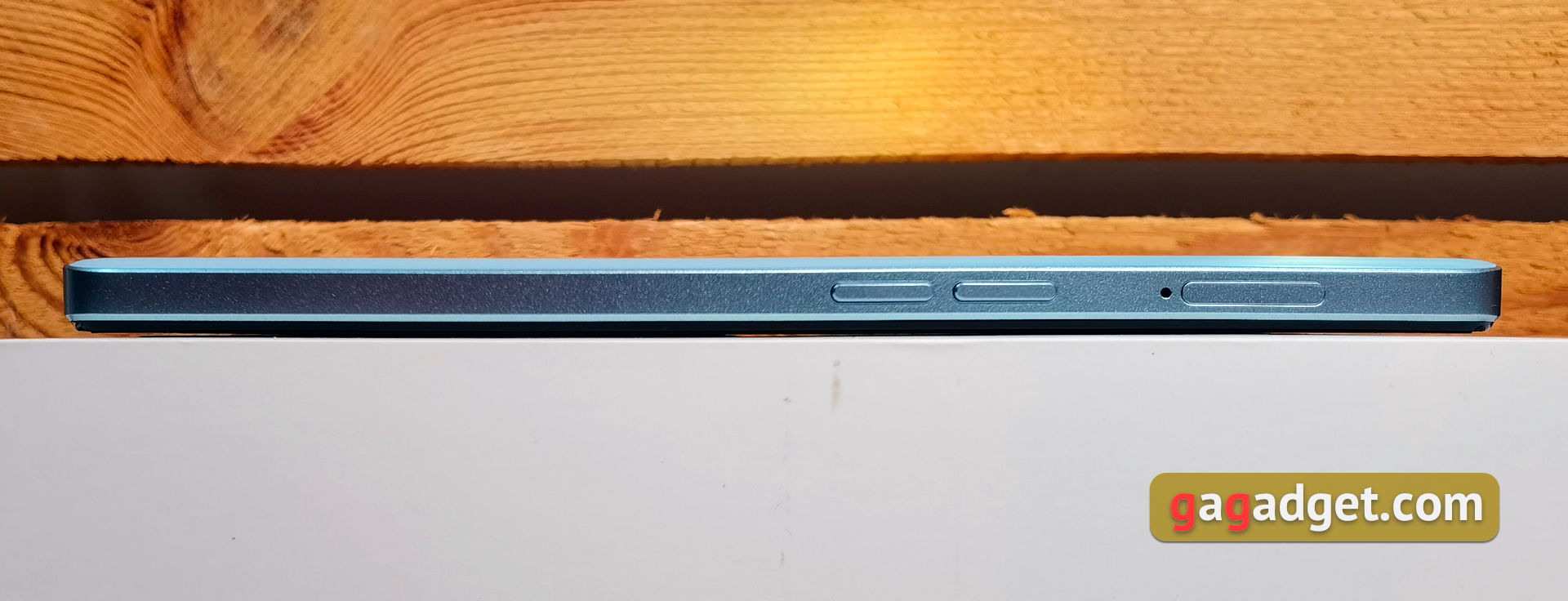


It is hybrid and supports dual-SIM. Instead of the second one, you can install a MicroSD card with a capacity of up to 1 TB in case the 256 GB of built-in storage is not enough.
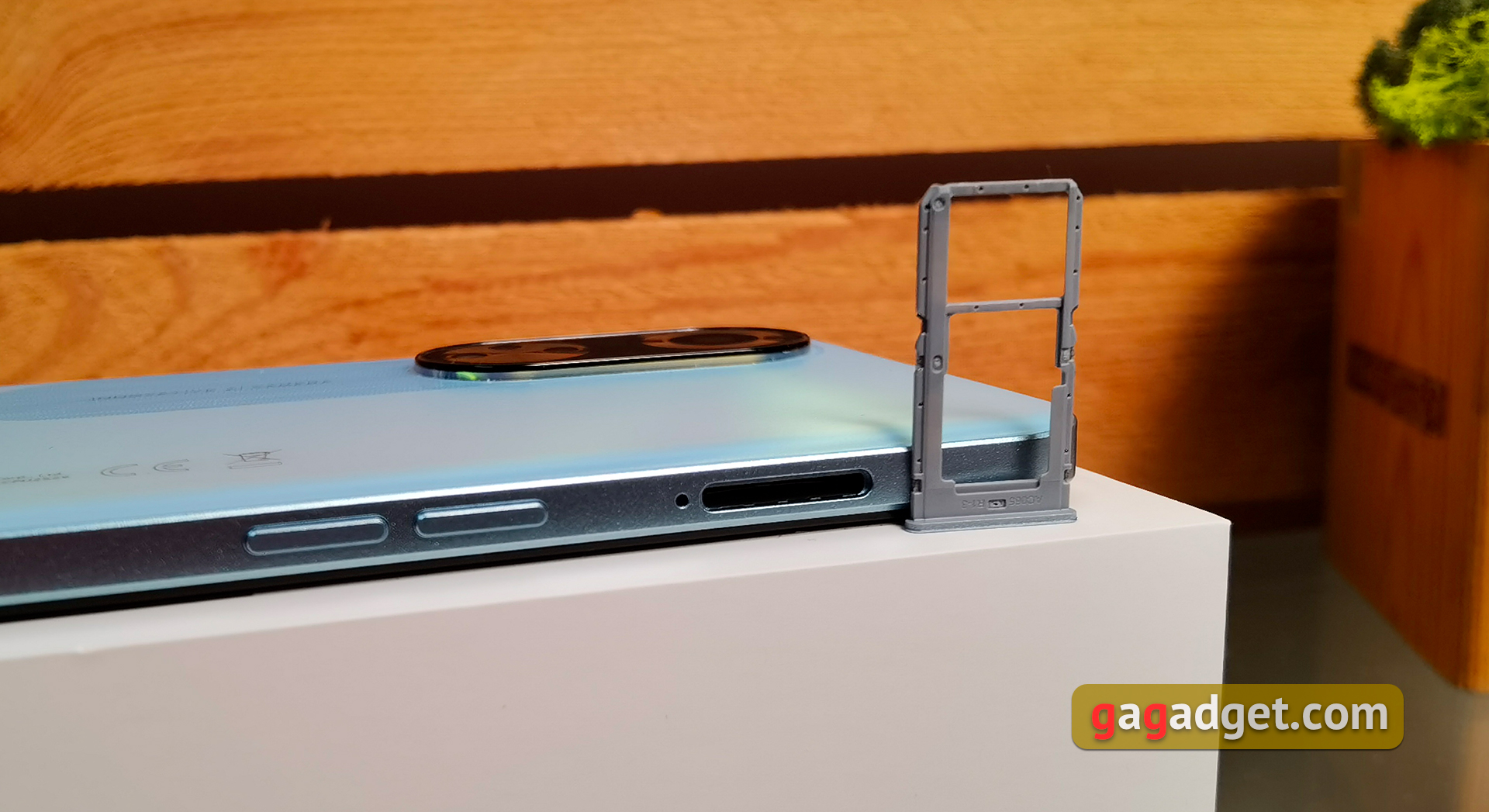
On the top edge there is only an additional microphone:
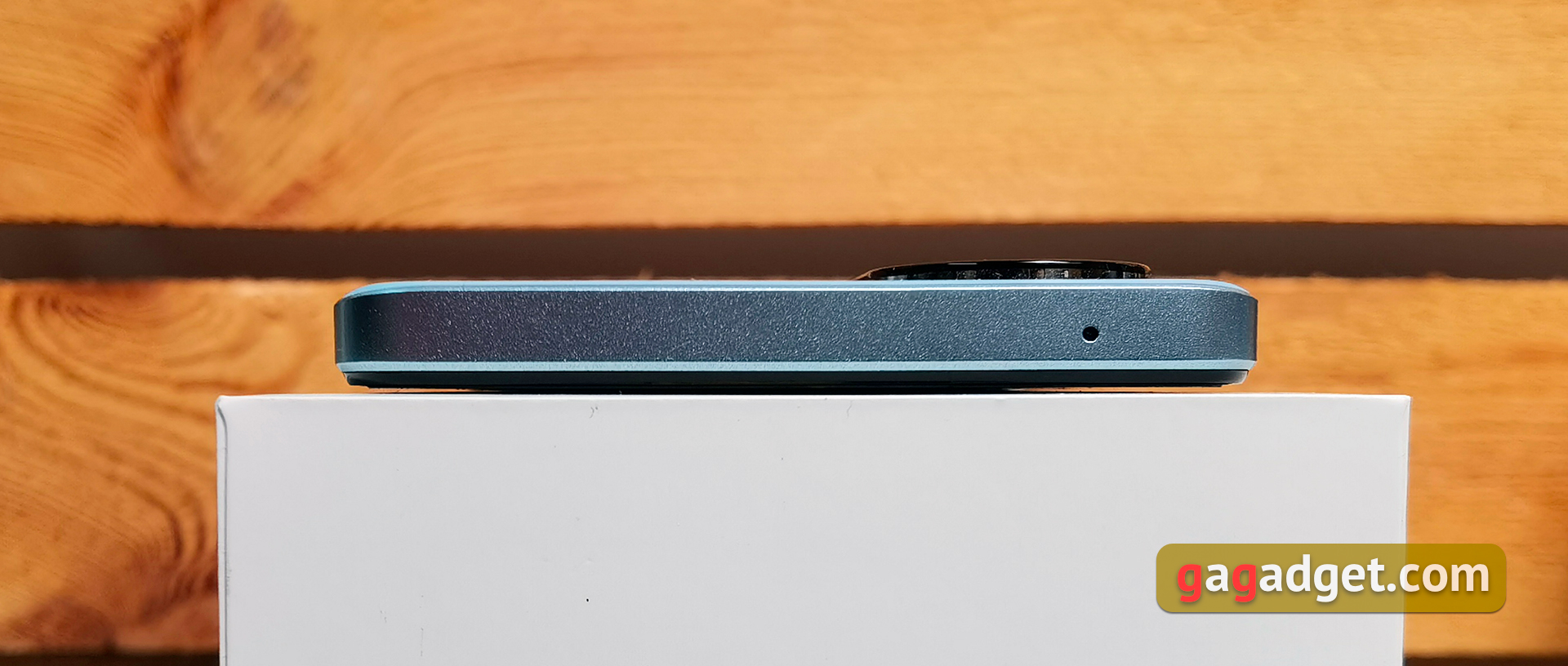
Below is the main speaker, USB Type-C connector, earpiece microphone and a standard 3.5 mm headphone jack, which is quite unusual for modern smartphones.
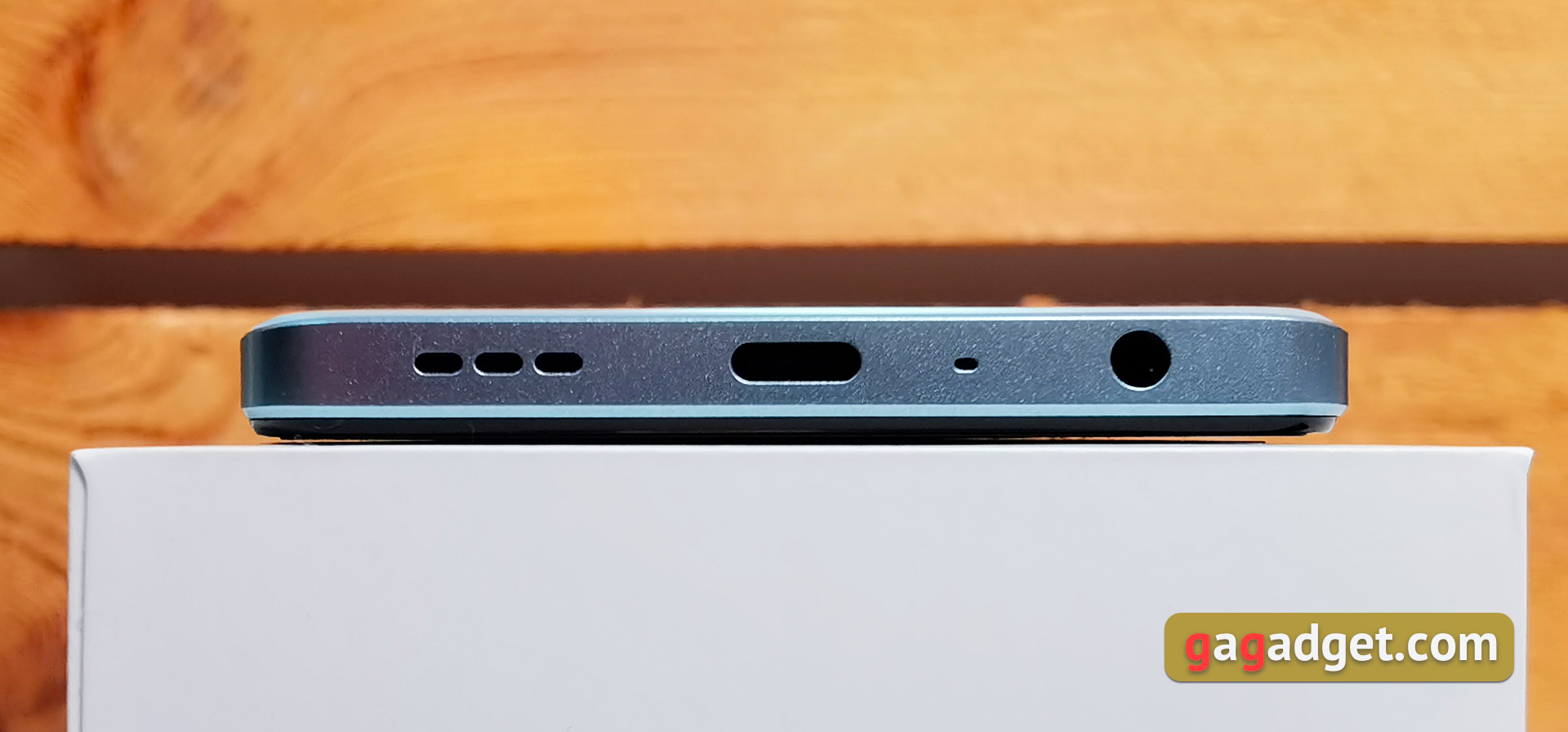
The OPPO A98 came to the editorial office for review in blue. There's an even more relaxed black variant. OPPO calls the appearance of the back cover Glow Design. It has a matte, pleasant to the touch surface that slightly shimmers with yellow shades at a certain angle.
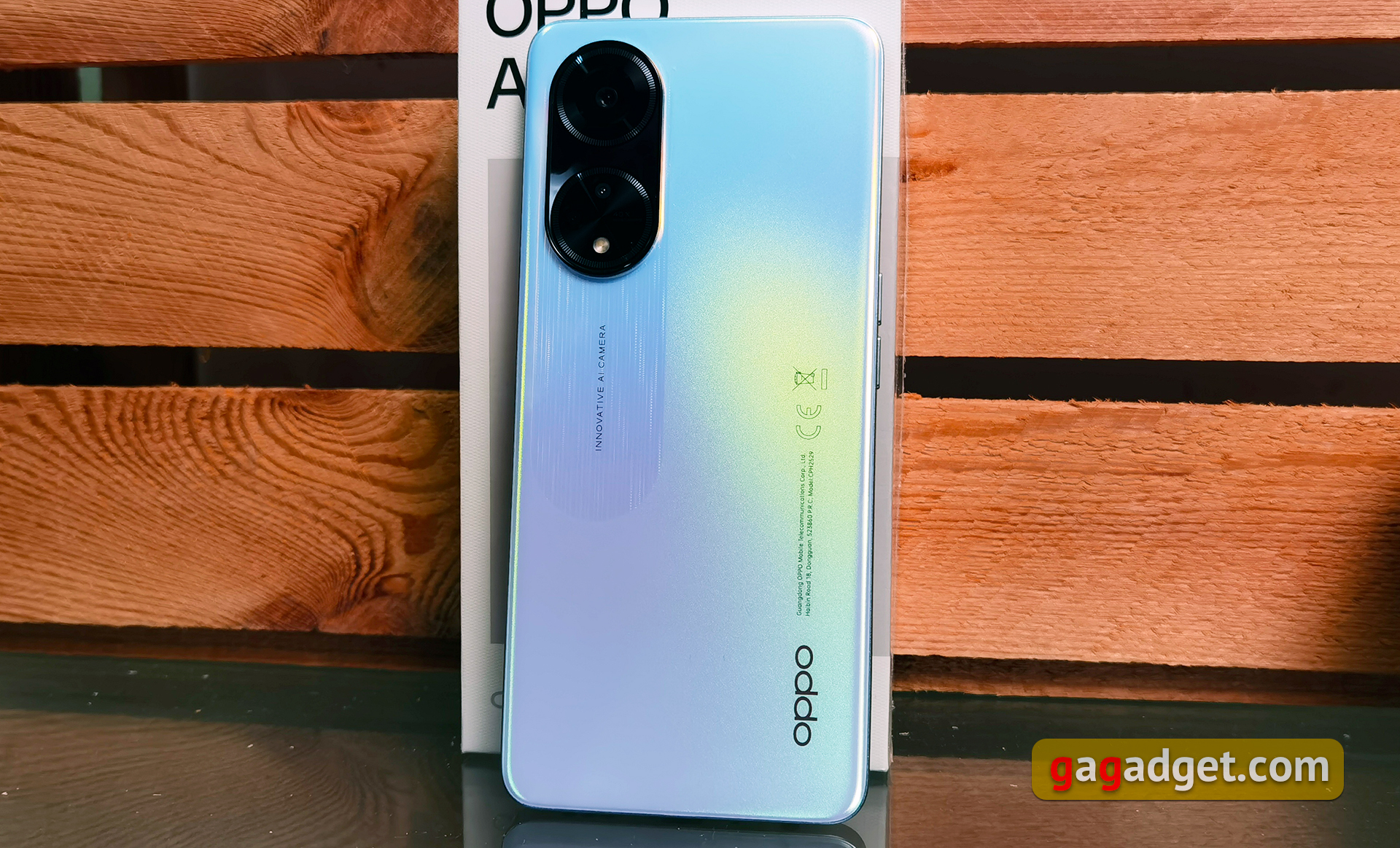
The rear camera unit is made in the form of a large black oval, in which three cameras and a flash are located in two stylised circles. The block protrudes above the surface, so the smartphone wobbles a little on a flat surface.
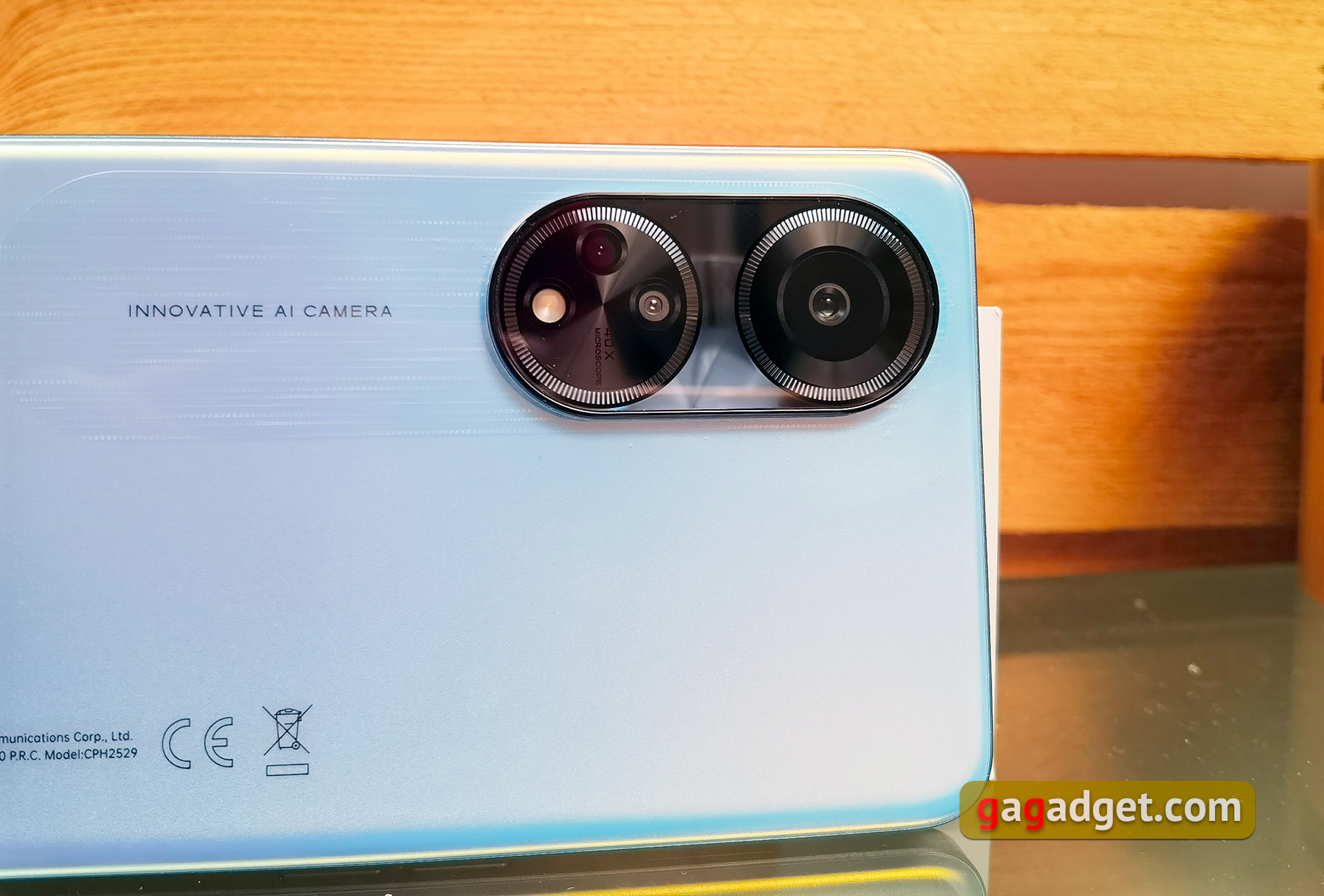
OPPO A98 is quite large, but not too heavy (192 g) thanks to the use of plastic. The not-so-familiar button layout can be confusing at first, but you can get used to it in a few days. The smartphone looks quite decent. But there is no protection against dust and moisture.
How good is the screen?
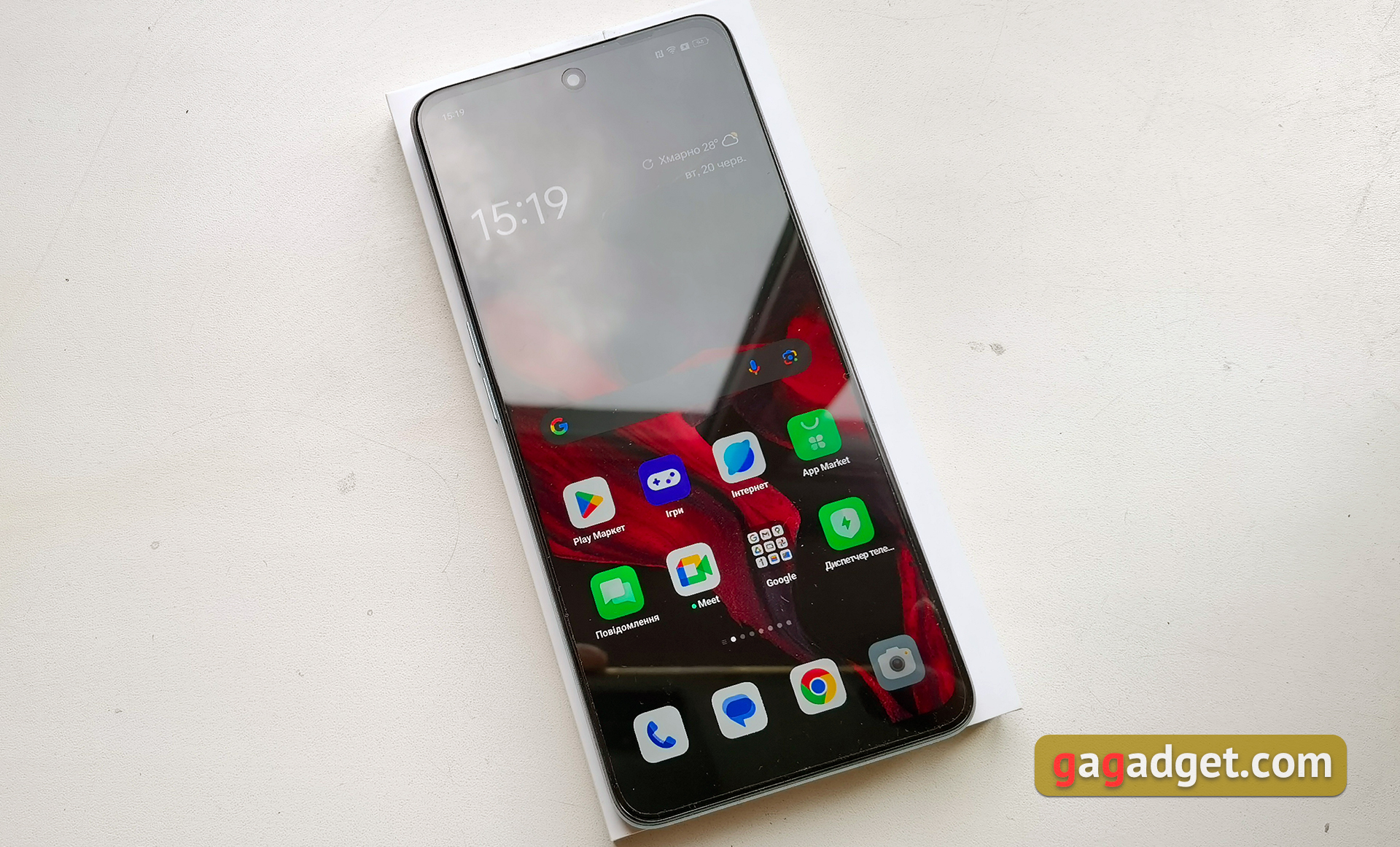
OPPO A98 uses an IPS display (LTPS to be more precise) with a diagonal of 6.72 inches, a resolution of 2400x1080 and an aspect ratio of 20:9. The pixel density is 391 ppi. The refresh rate is 120 Hz, and the sensor reading frequency is 240 Hz. They promise 100% coverage of the DCI-P3 colour space and peak brightness in automatic mode under direct sunlight of 680 cd/m². The set of settings is standard for modern smartphones: dark and light themes, refresh rate, eye comfort mode, font, scale of interface elements and colour display modes. There is a bright and natural mode with the ability to manually adjust the colour temperature.
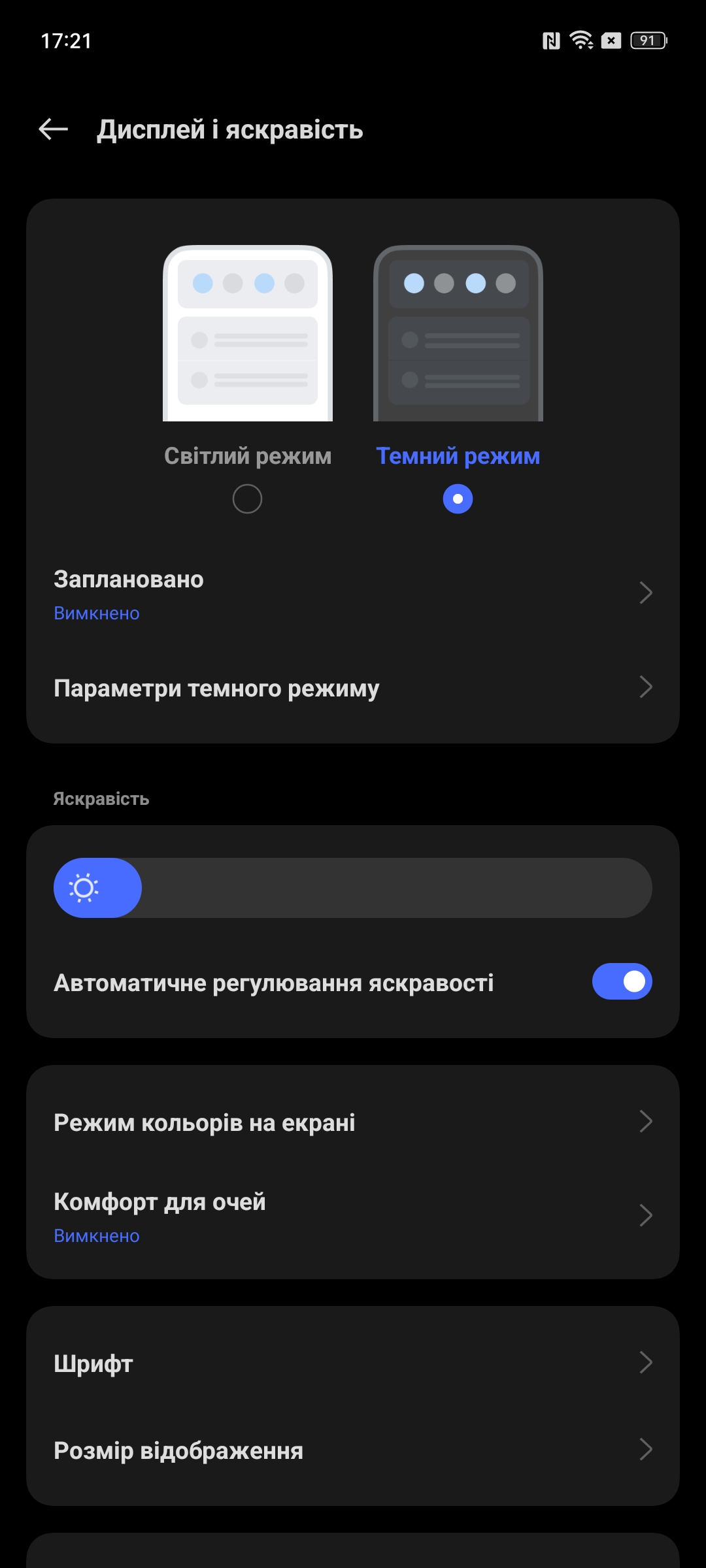

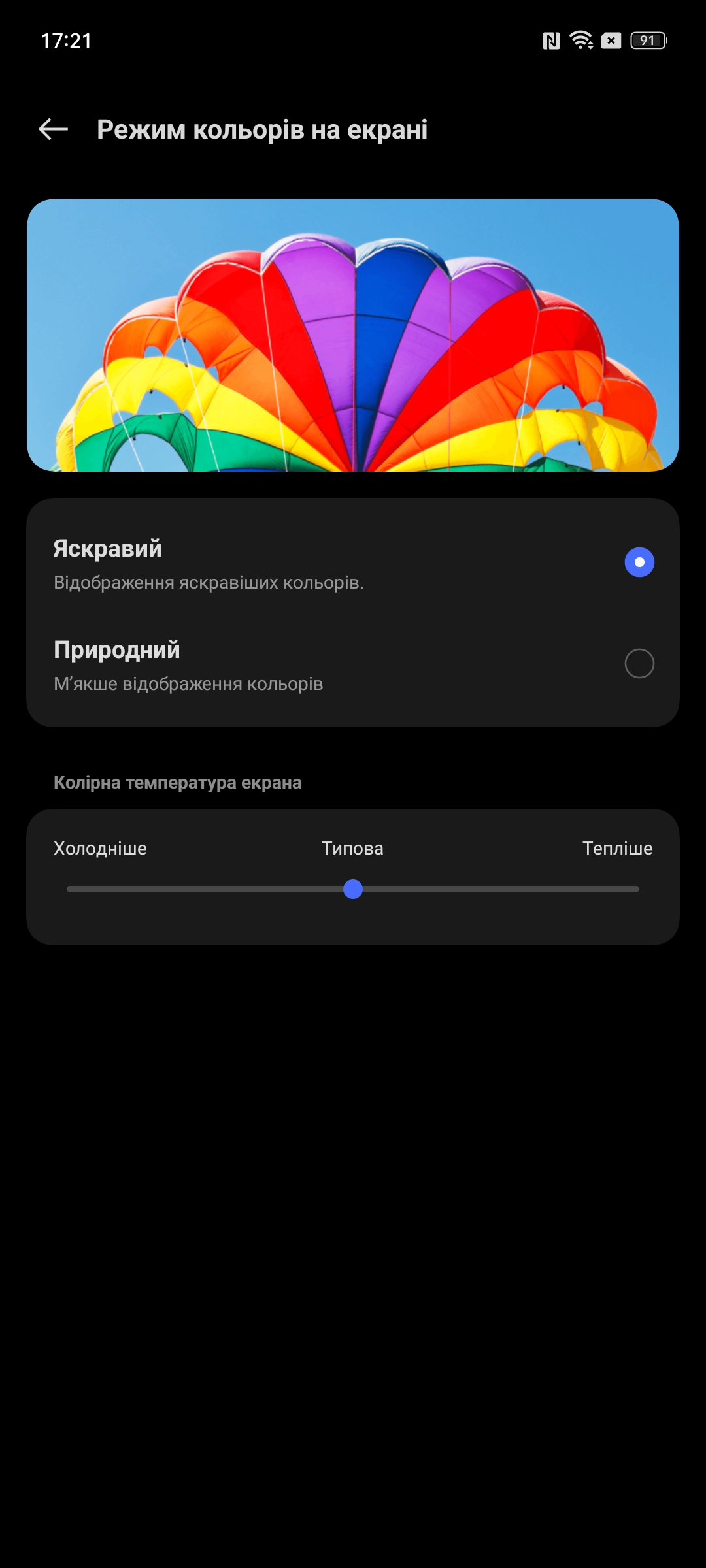
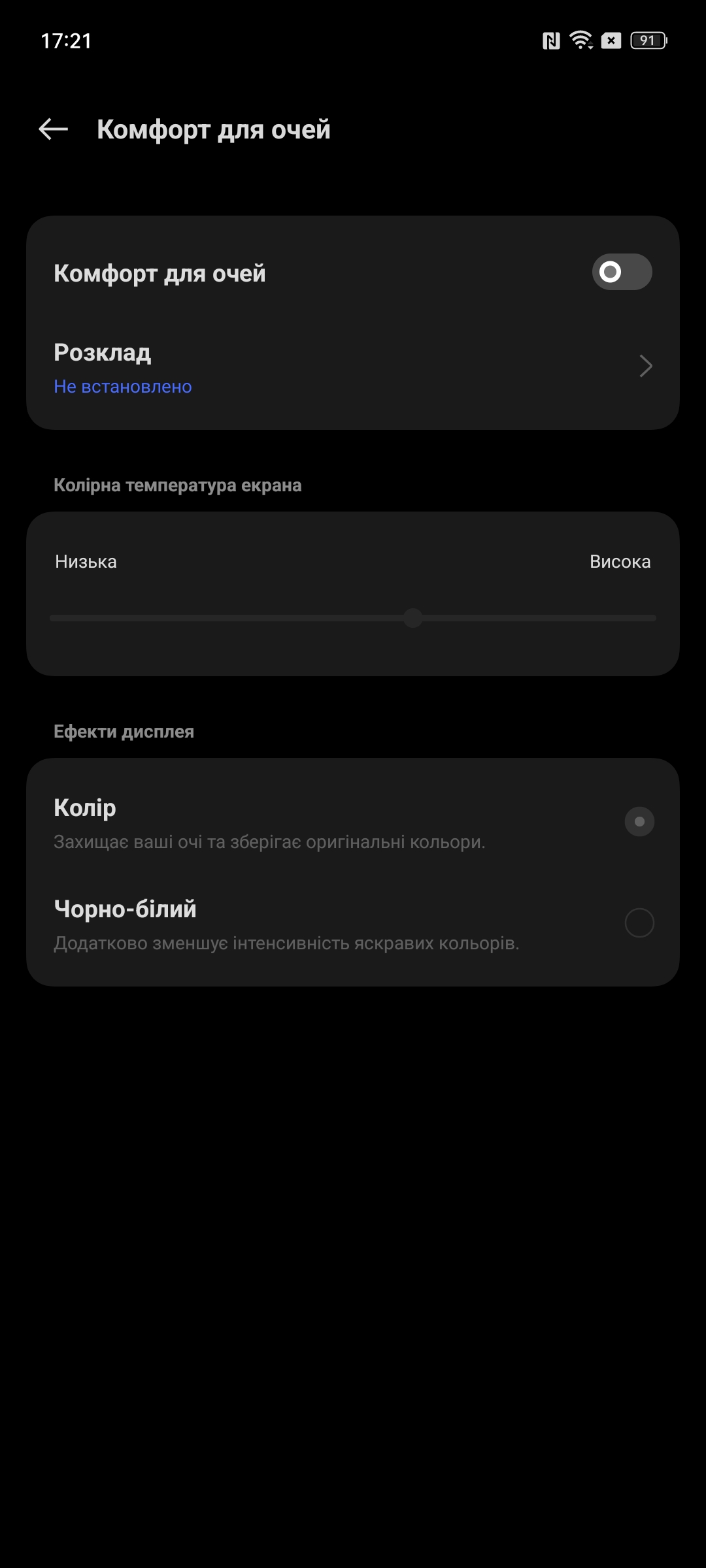












The screen is of good quality, with softer colours compared to AMOLED. The brightness level is sufficient for the information to remain legible in most cases. But in bright sunlight, the screen dims significantly. Viewing angles are maximised, but the contrast drops significantly, and black becomes grey. In bright mode, the maximum brightness level is 391.666 cd/m2, the black field brightness is 0.384 cd/m², and the static contrast is 1020:1. With, the colour gamut is significantly wider than the sRGB colour space. But the colour reproduction is rather cold. Which you can adjust yourself if you wish.
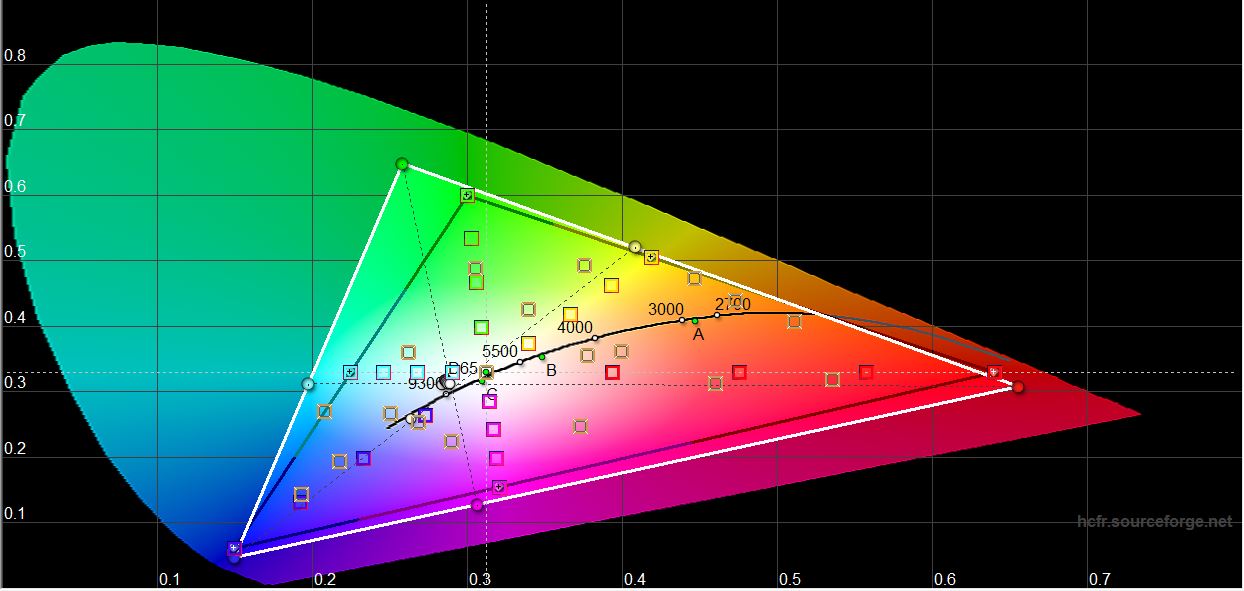
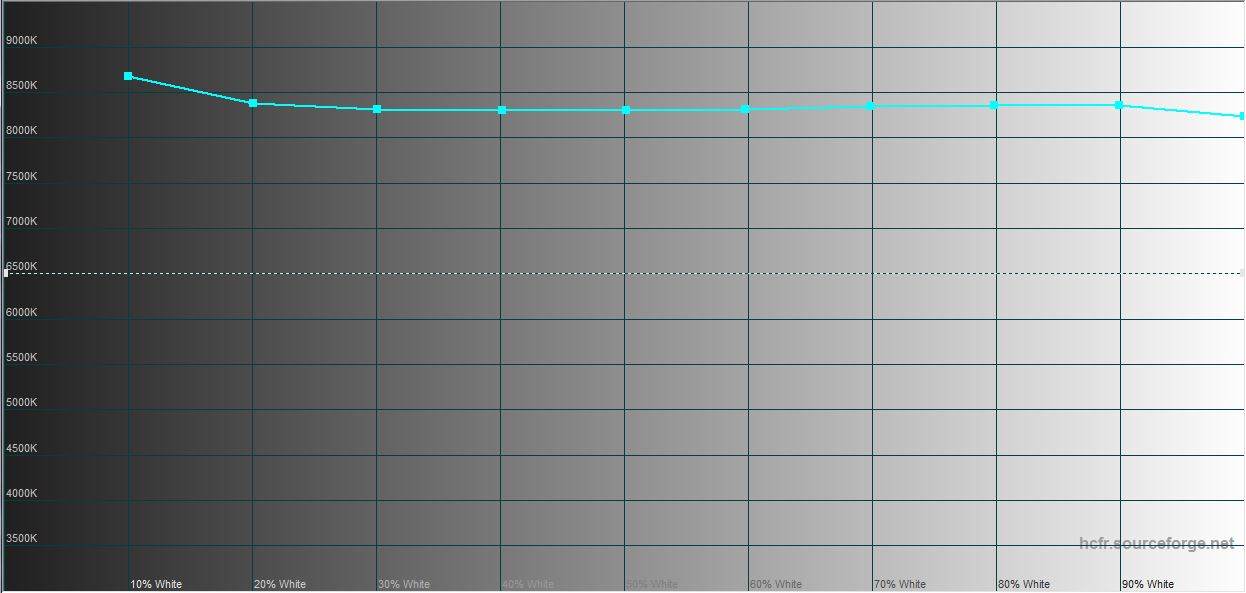

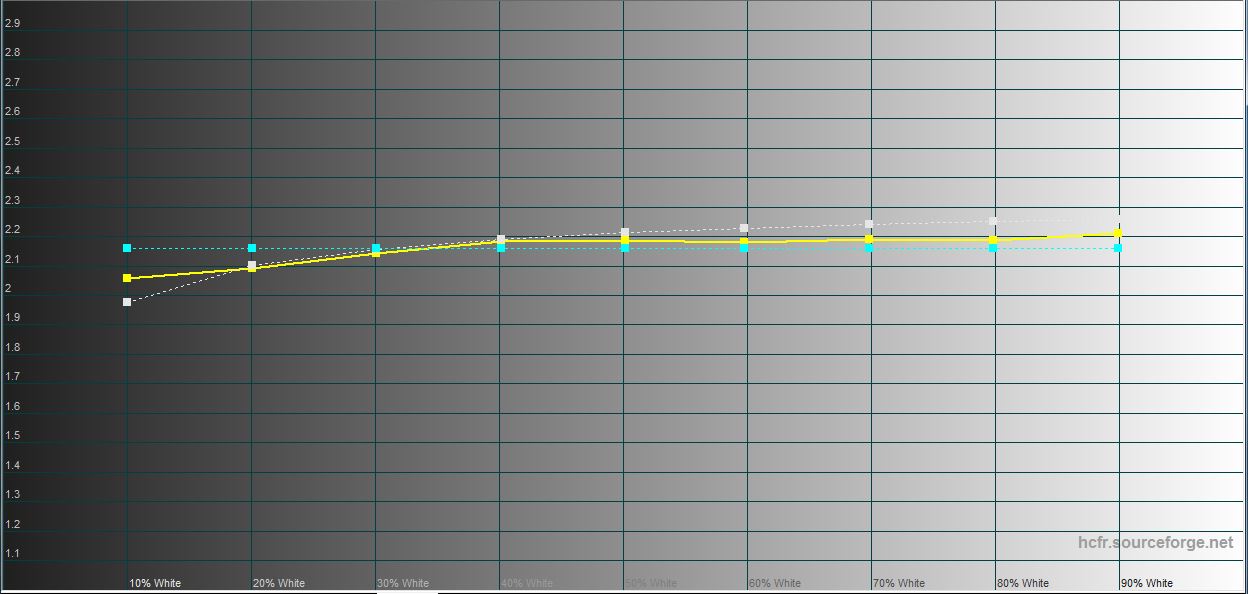
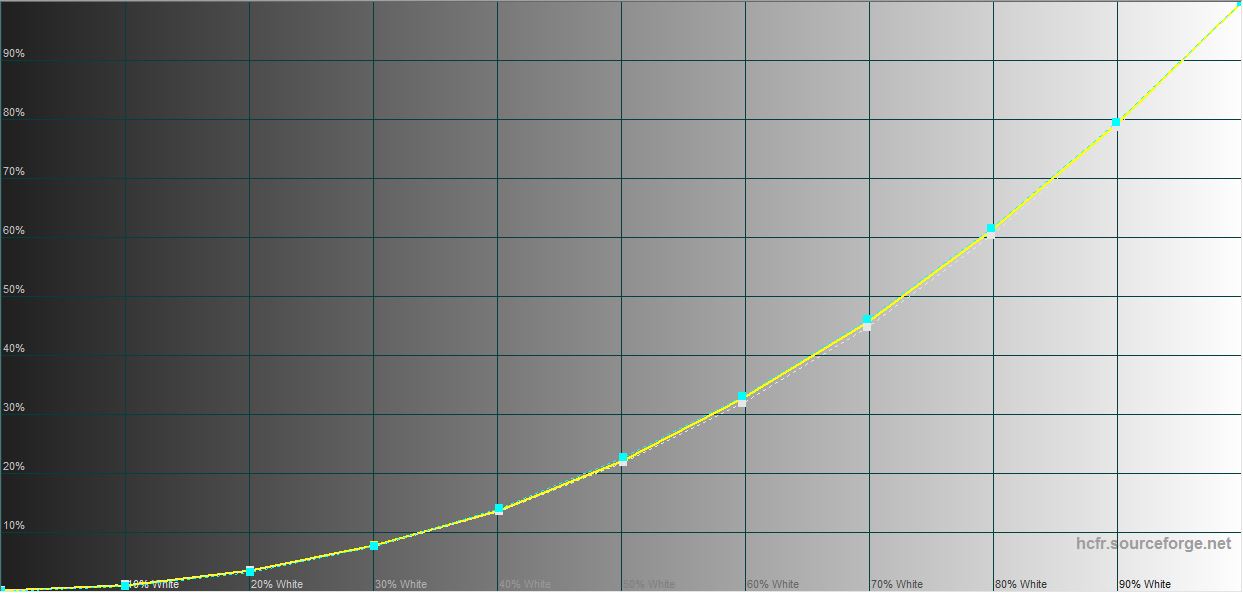





In Natural mode, almost all indicators are close to Vivid. Except for the colour gamut. It is significantly narrower. The maximum brightness level is 394.634 cd/m2, black field brightness is 0.395 cd/m², and static contrast is 999:1. cd/m2.




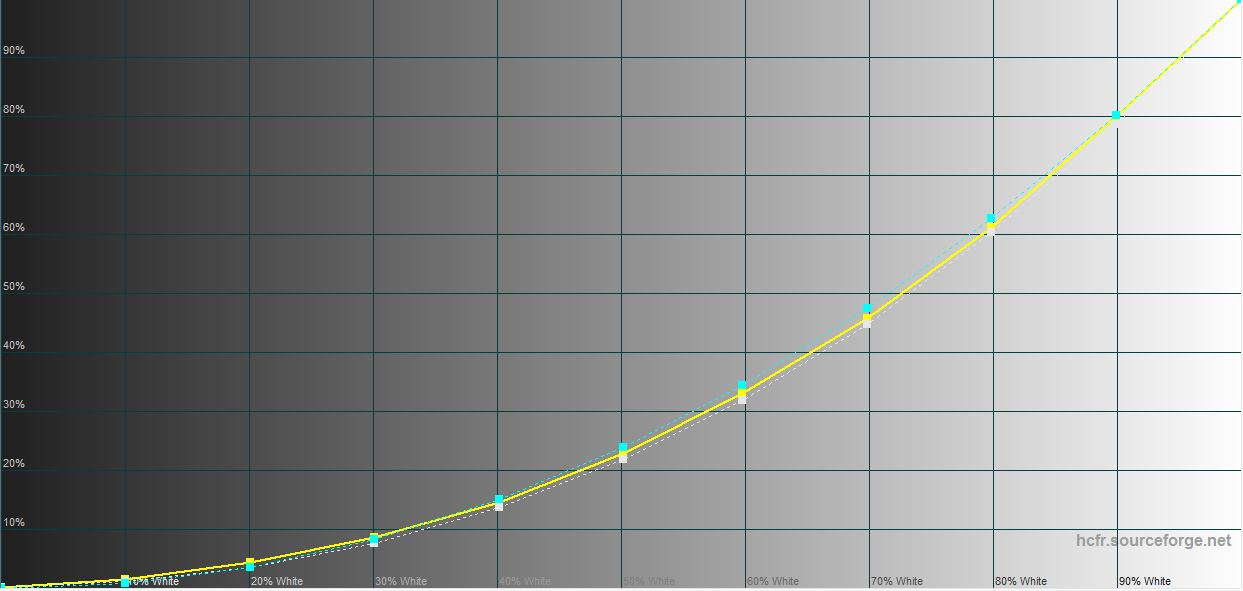





Comparison with other models:
| Smartphone name | White field brightness, cd/m2 |
Black field brightness, cd/m2 |
Contrast |
|---|---|---|---|
| OPPO A98 | 394.634 | 0.395 | 1020:1 |
| realme 9i | 445.036 | 0.428 | 1040:1 |
| POCO X3 Pro | 435.56 | 0.361 | 1207:1 |
| POCO M3 | 362.062 |
0.27 | 1341:1 |
| realme X3 SuperZoom | 364.375 | 0.405 | 900:1 |
| Nokia 5.3 | 384.335 | 0.397 | 968:1 |
| realme C3 | 421.453 | 0.409 | 1030:1 |
| Realme 6 | 415.488 | 0.38 | 1093:1 |
What are the unlocking methods?
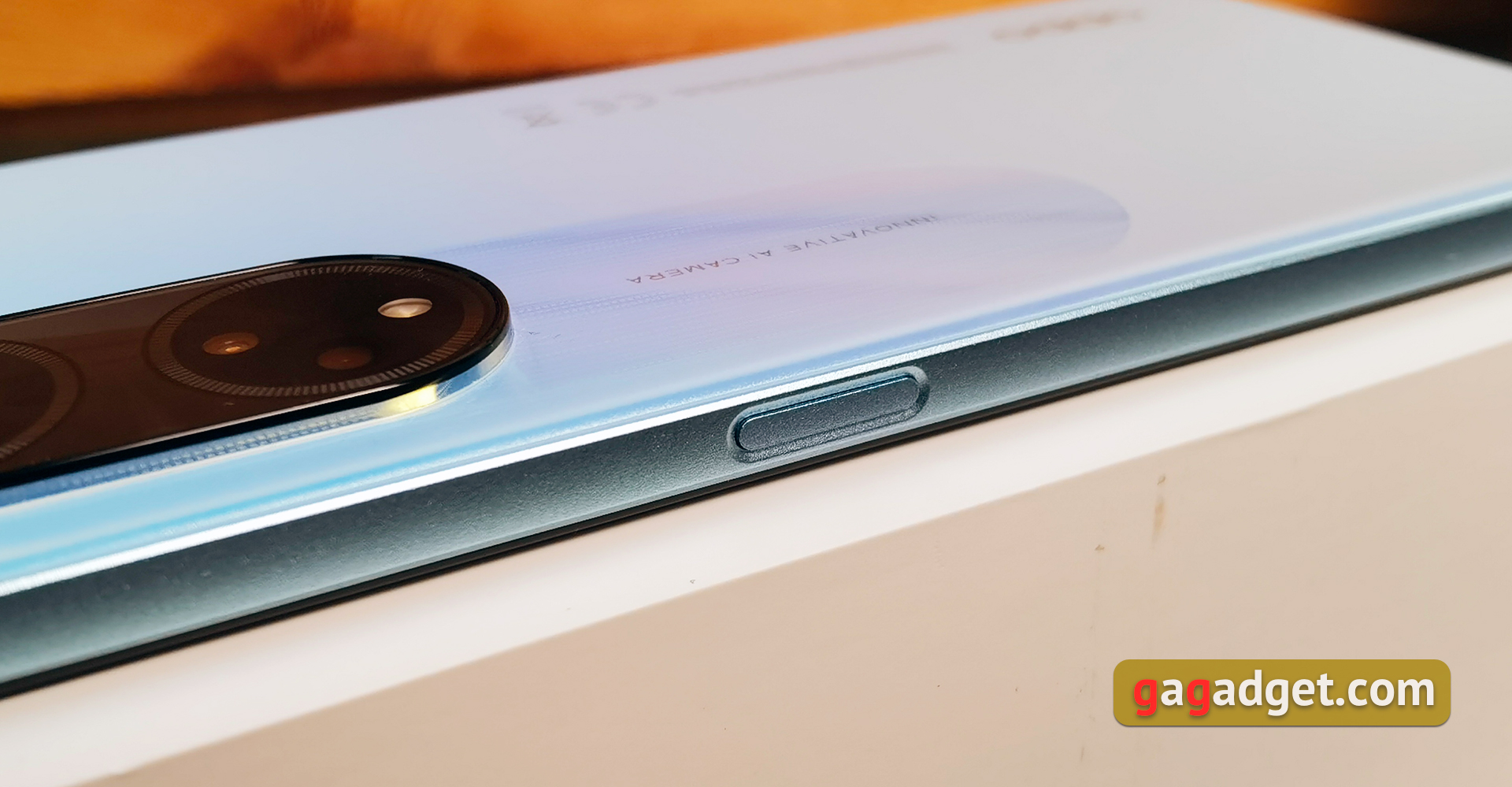
Due to technical features, in-screen fingerprint scanners are installed in smartphones with OLED displays. There is already a technology that makes this possible with IPS displays. But it hasn't become widespread yet, so OPPO A98 is equipped with a conventional scanner in the power button on the side. It works very clearly and accurately. There were no problems with it at all during use. Additionally, you can use face recognition with the front camera to identify the owner. It's not very secure, but it's quite convenient and fast, provided there is sufficient lighting. In addition, in the settings you can enable recognition only with open eyes, as well as increasing the brightness of the display in low ambient light. The latter feature helps a little at dusk, but not in complete darkness.
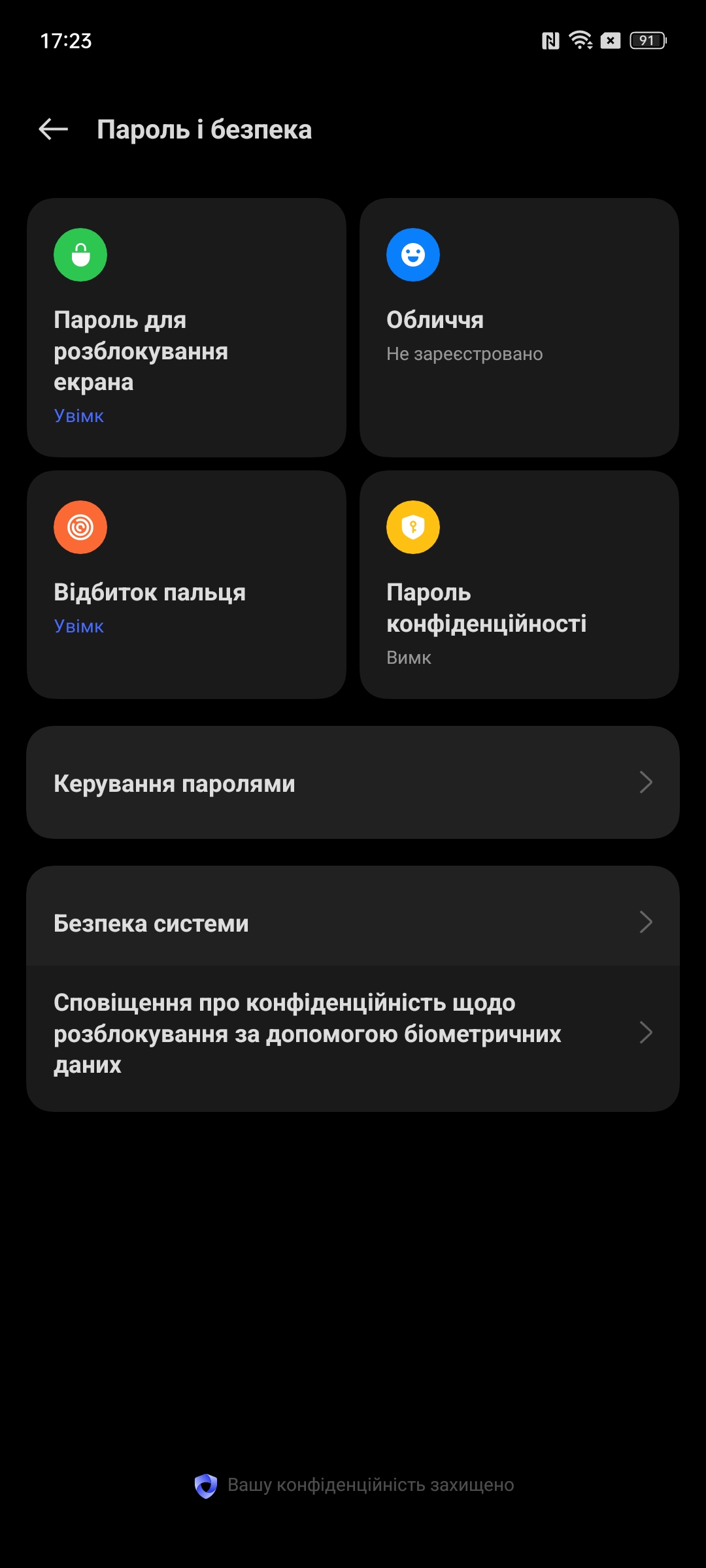

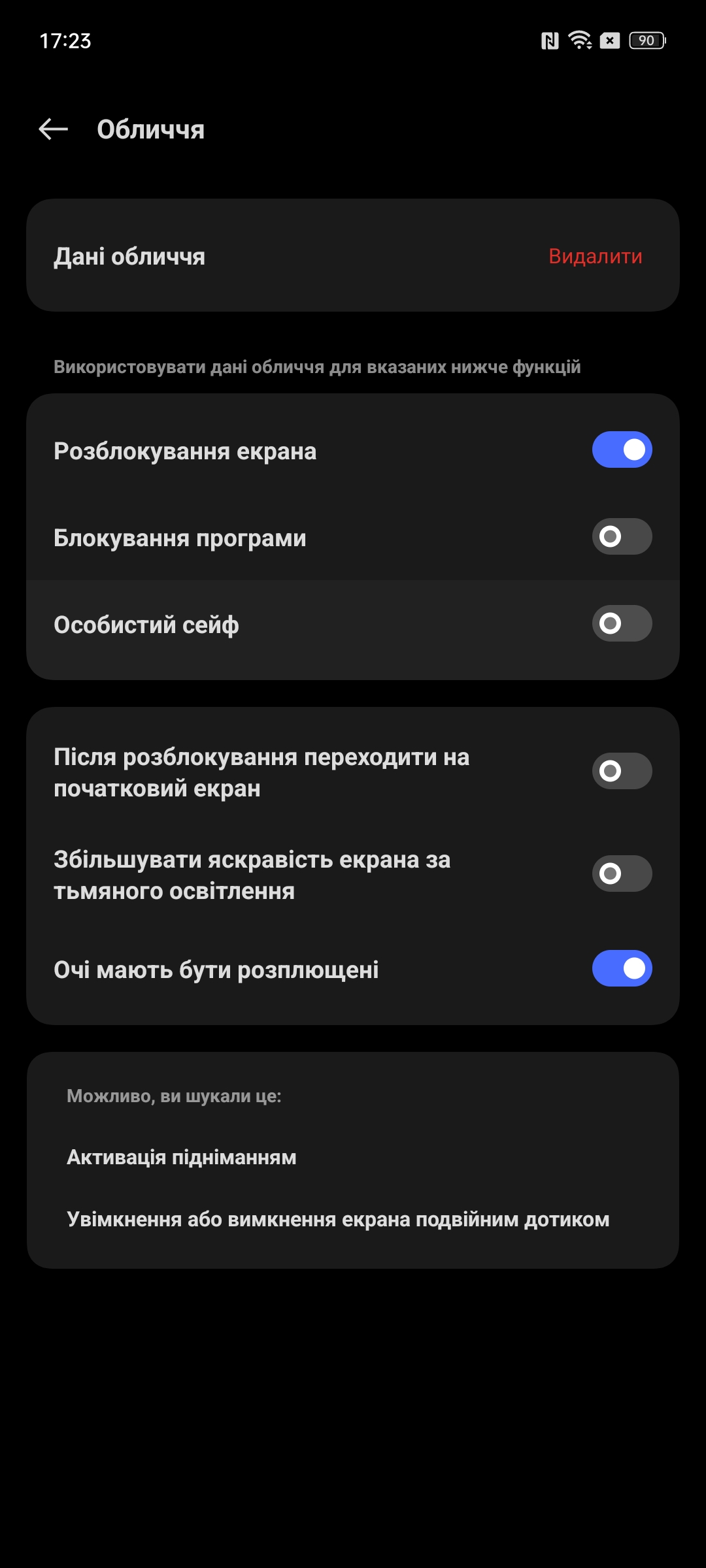



What about performance, memory, sound and battery life?
The OPPO A98 is powered by a modest Qualcomm Snapdragon 695 5G octa-core processor. It is manufactured on a 6nm process technology, includes two 2.2 GHz Kryo 660 Gold cores, six 1.7 GHz Kryo 660 Silver cores, and an 840 MHz Adreno 619 graphics accelerator. There is 8 GB of LPDDR4X RAM, which can be expanded by another 8 GB of internal storage. There is 256 GB of permanent memory with a modest UFS 2.2 speed. Additionally, there is support for MicroSD cards up to 1 TB. In general, the smartphone has enough power for everyday tasks and applications. Although the interface speed is hardly lightning fast. And for fans of heavy modern games, you should look for something more powerful. The results in synthetic tests are appropriate, rather modest. And for some reason, the smartphone did not find a common language with the graphical part of the AnTuTu test:
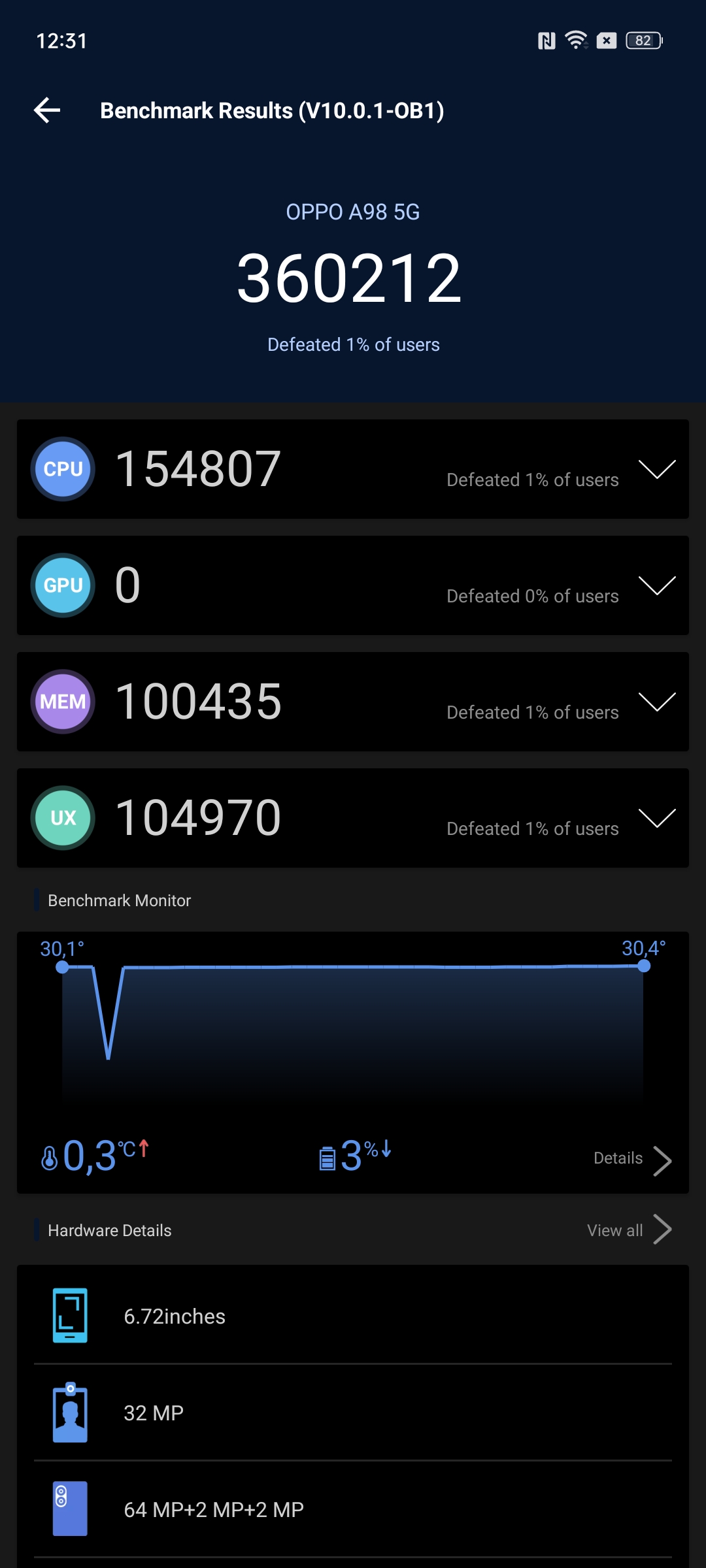
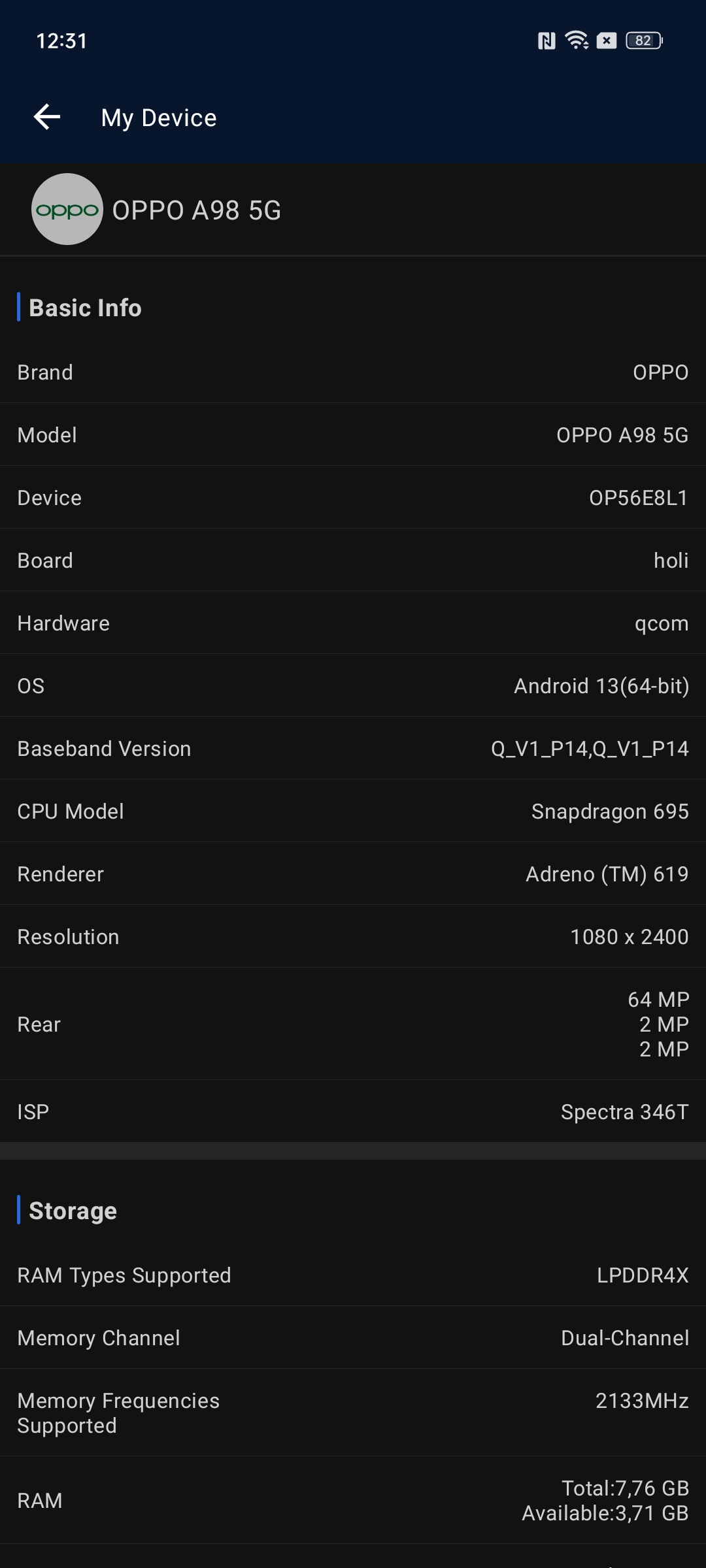
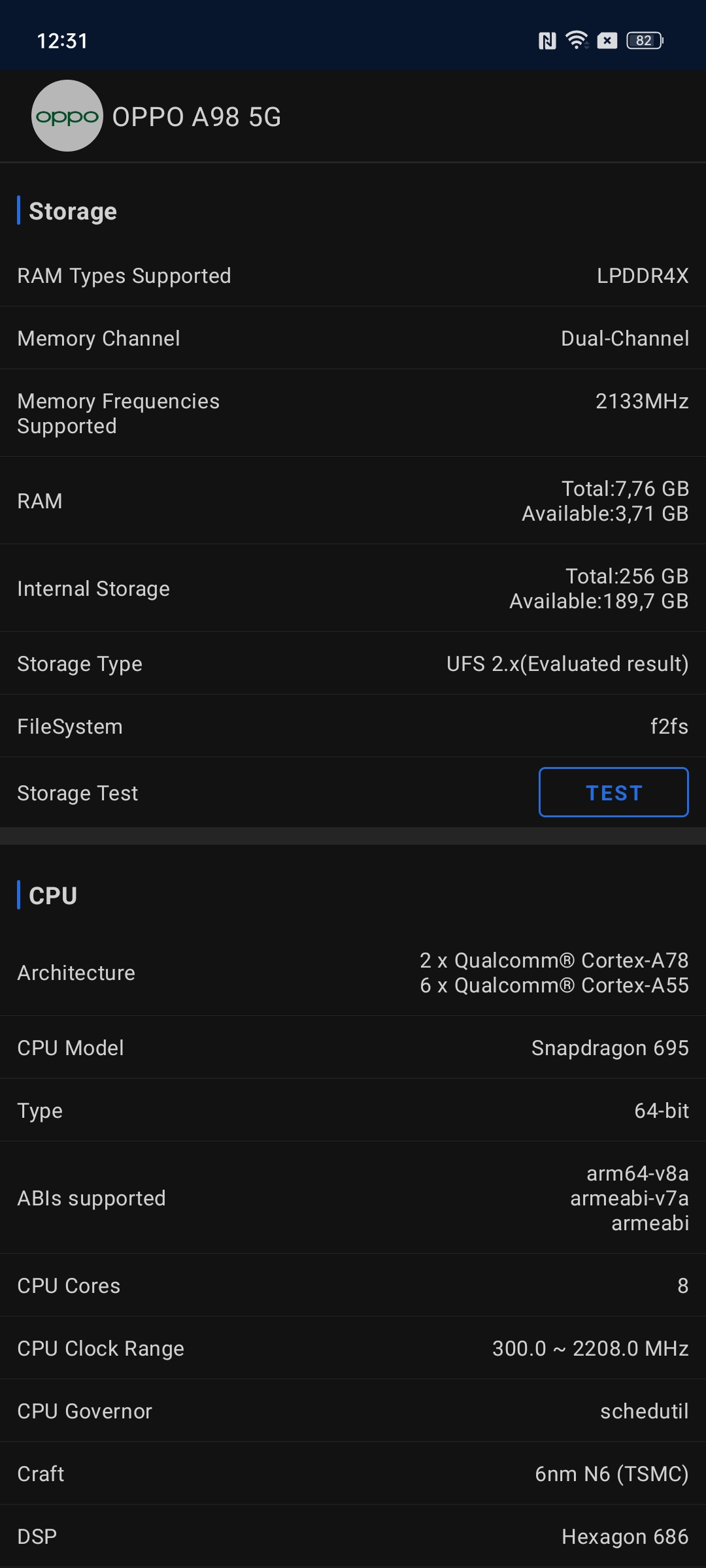
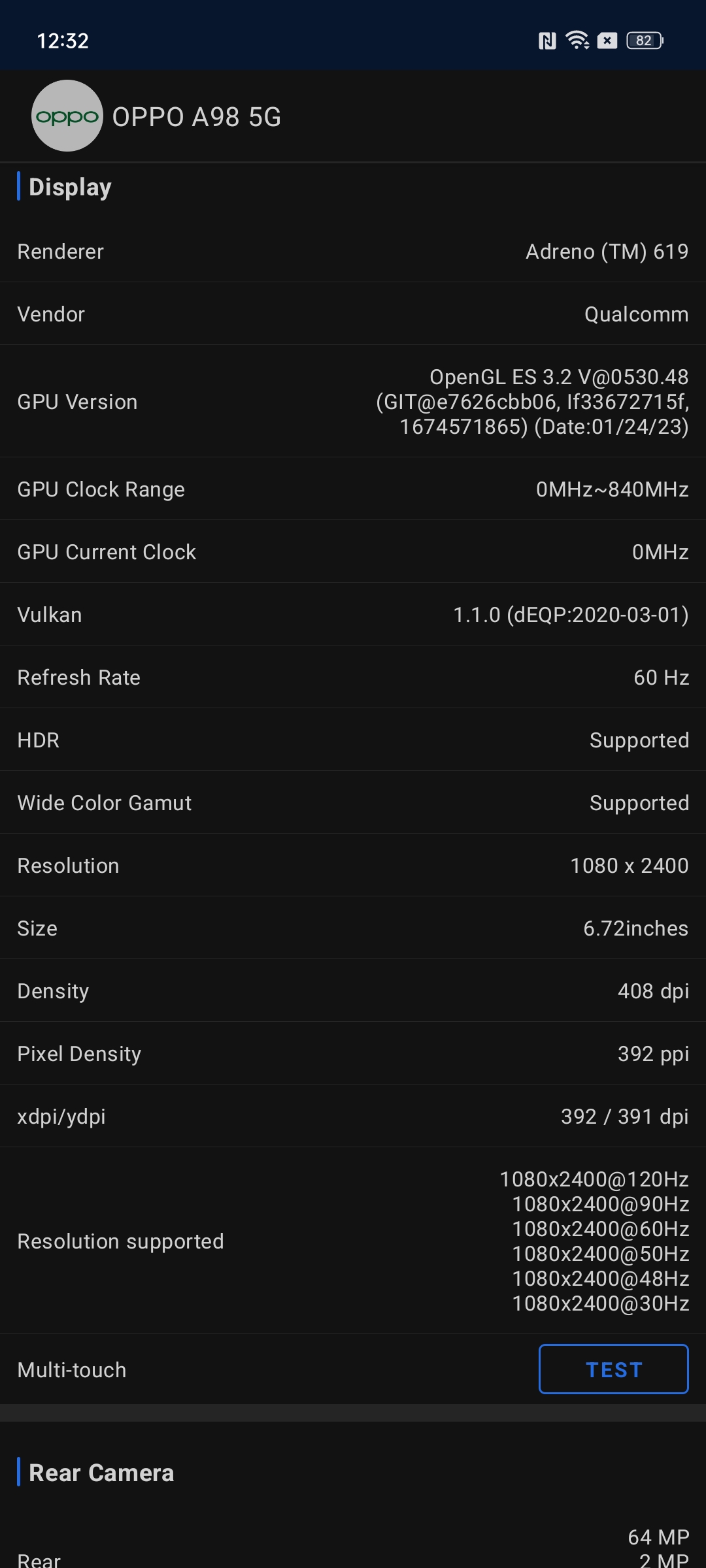
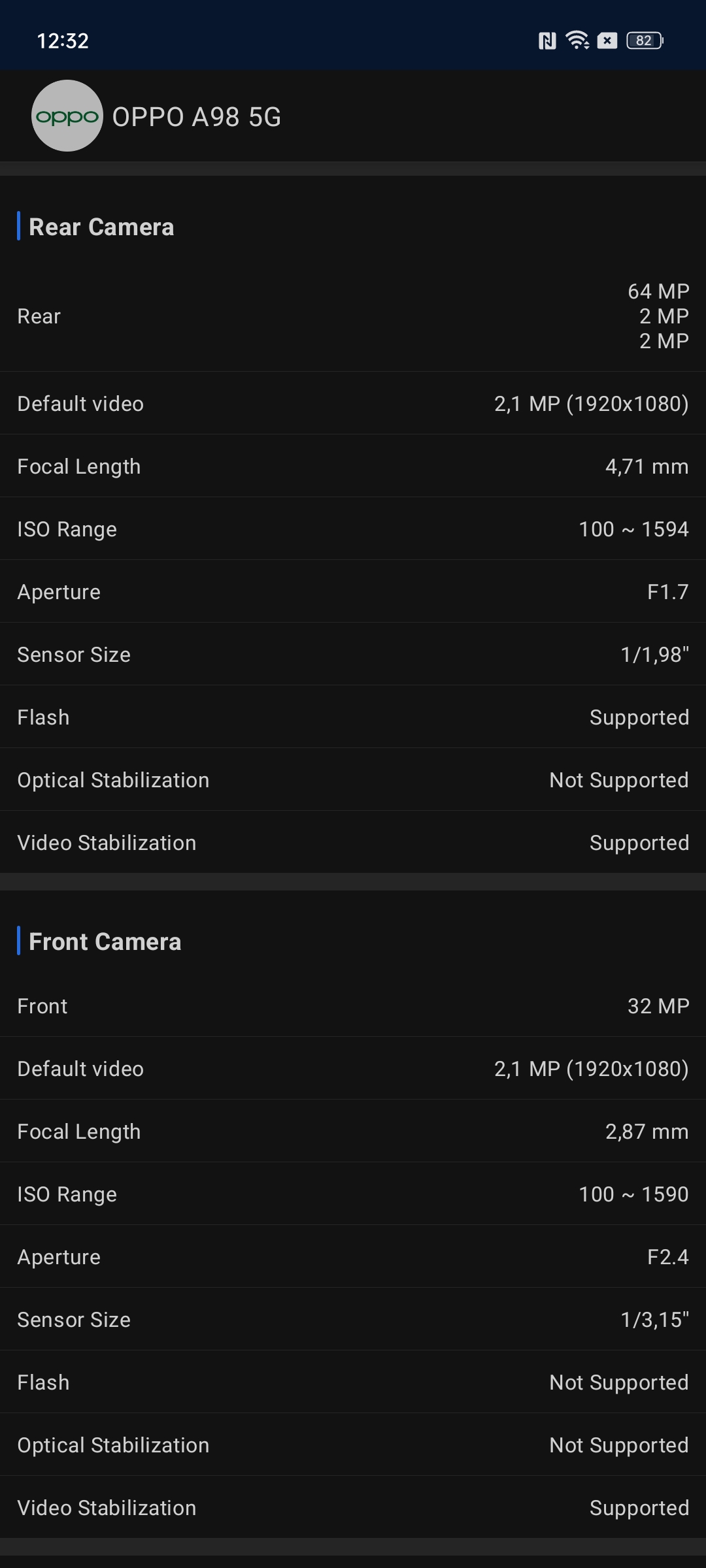
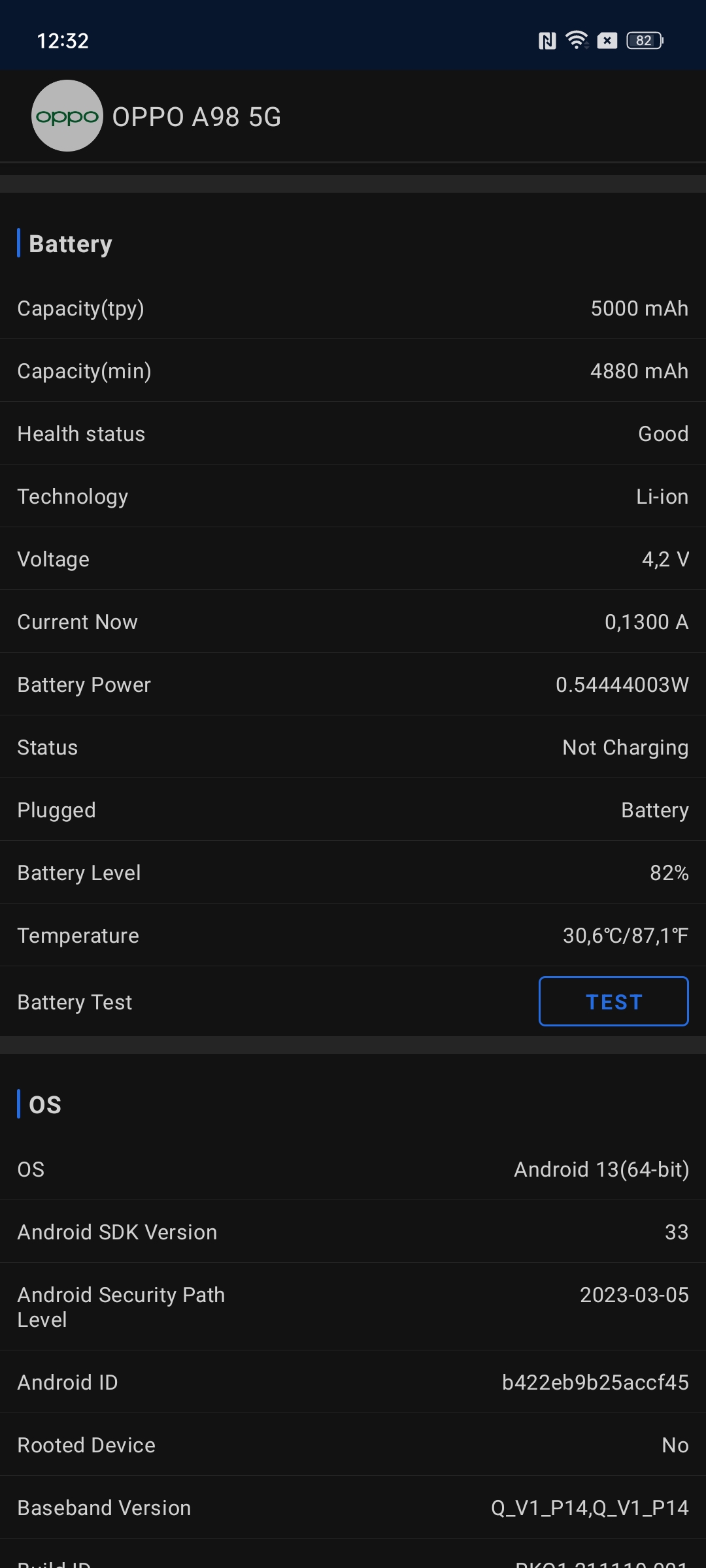
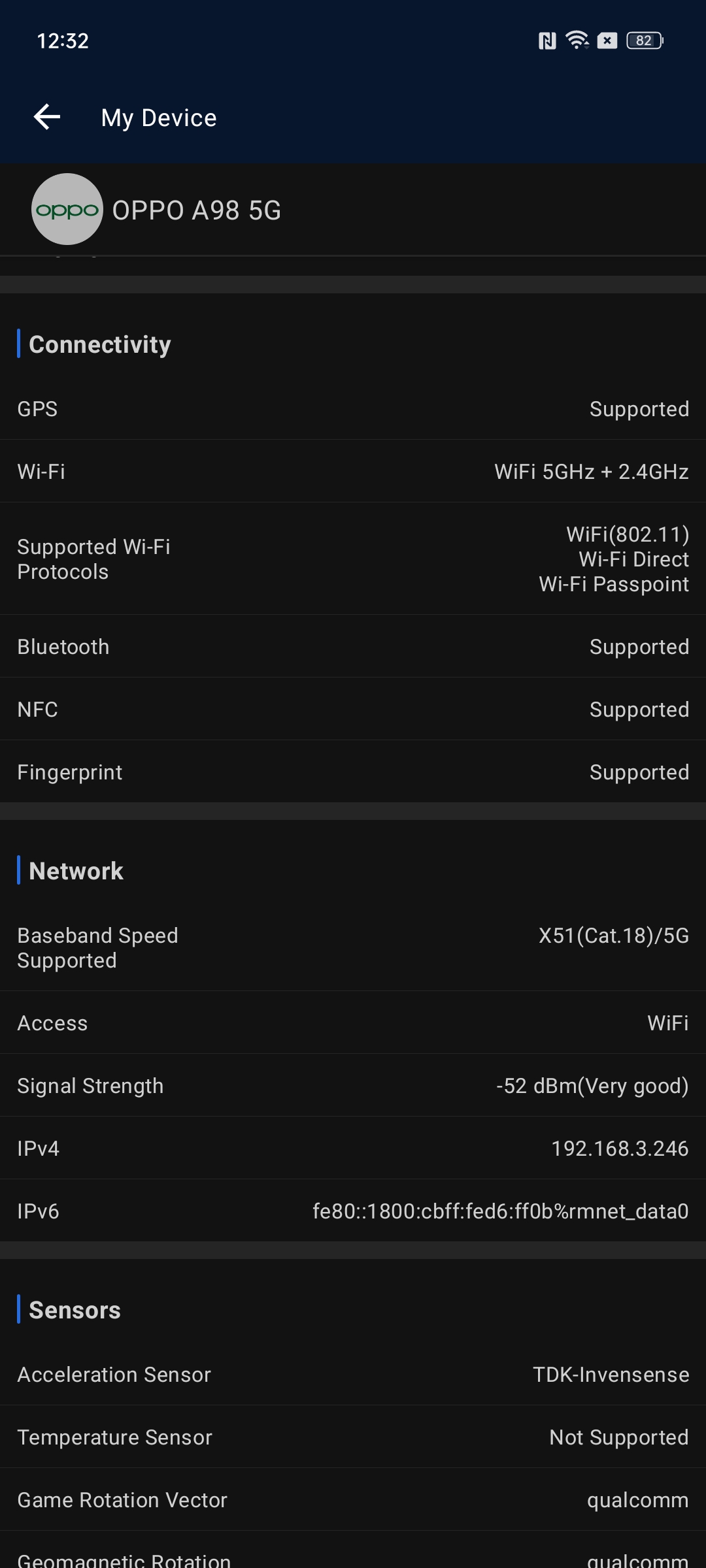
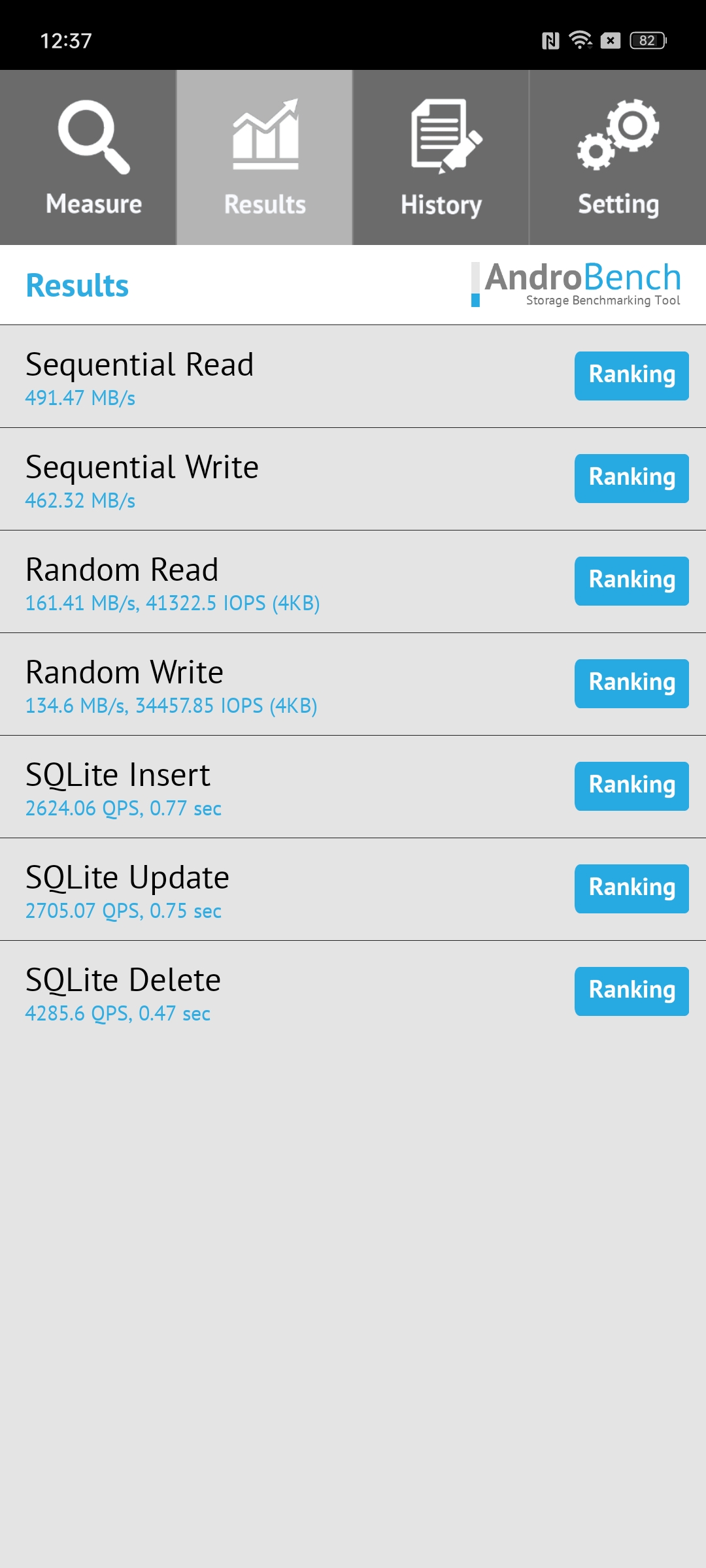

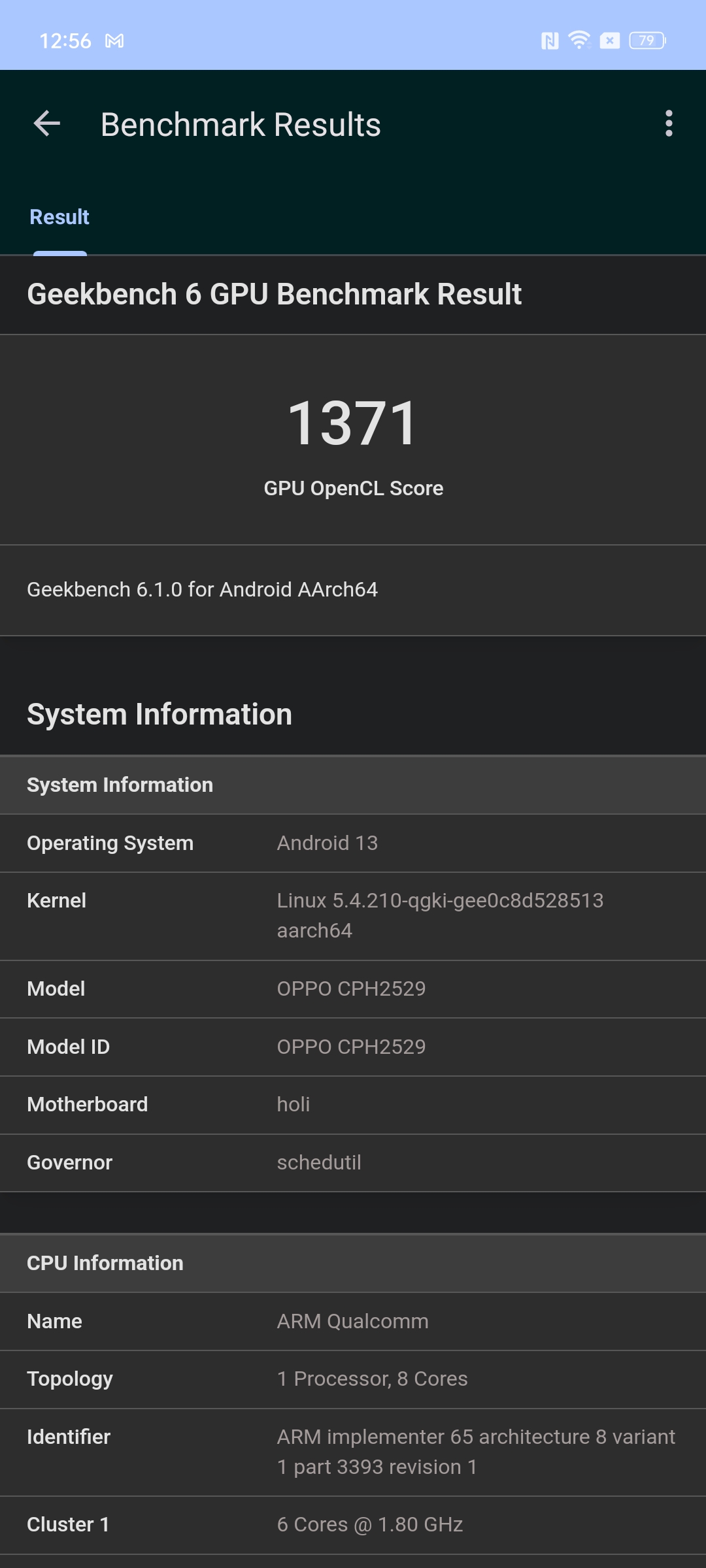
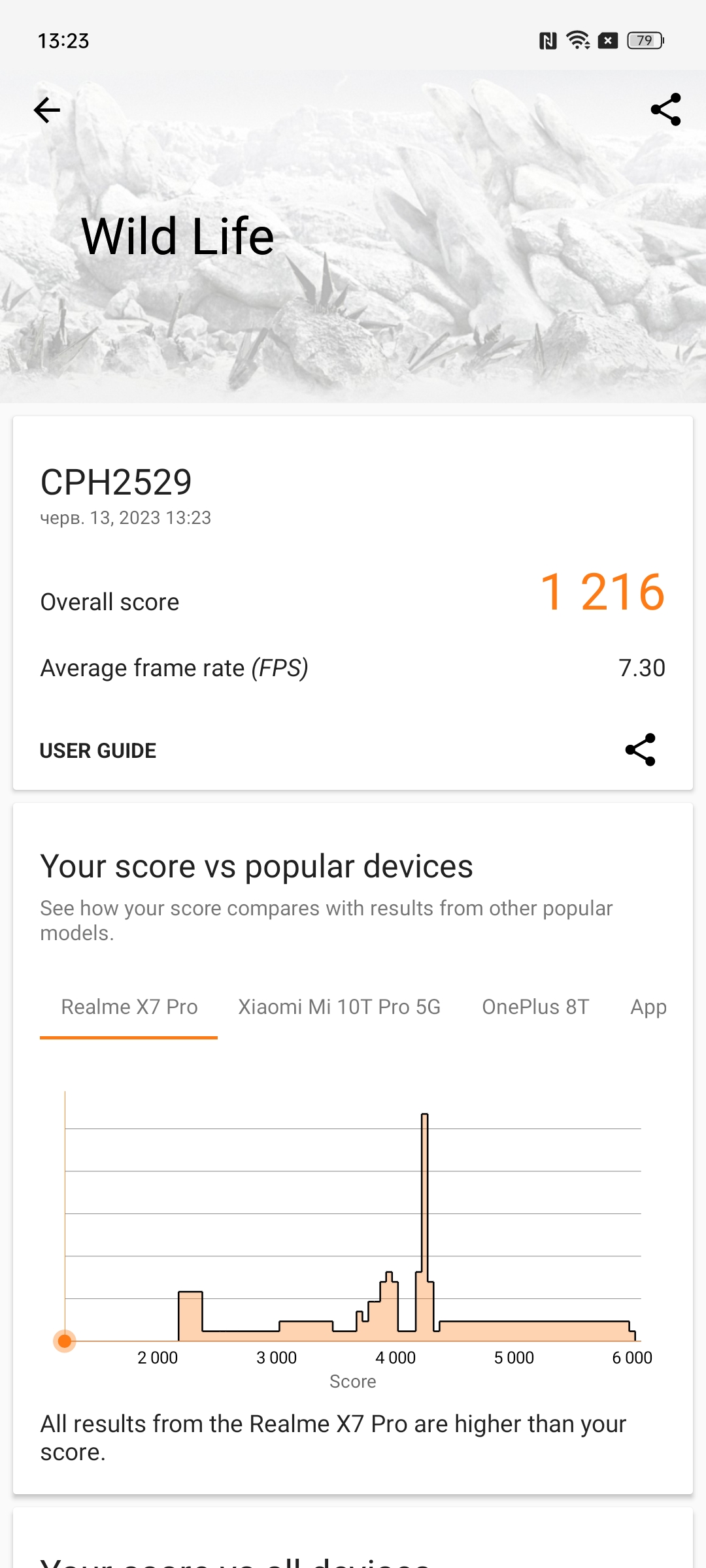

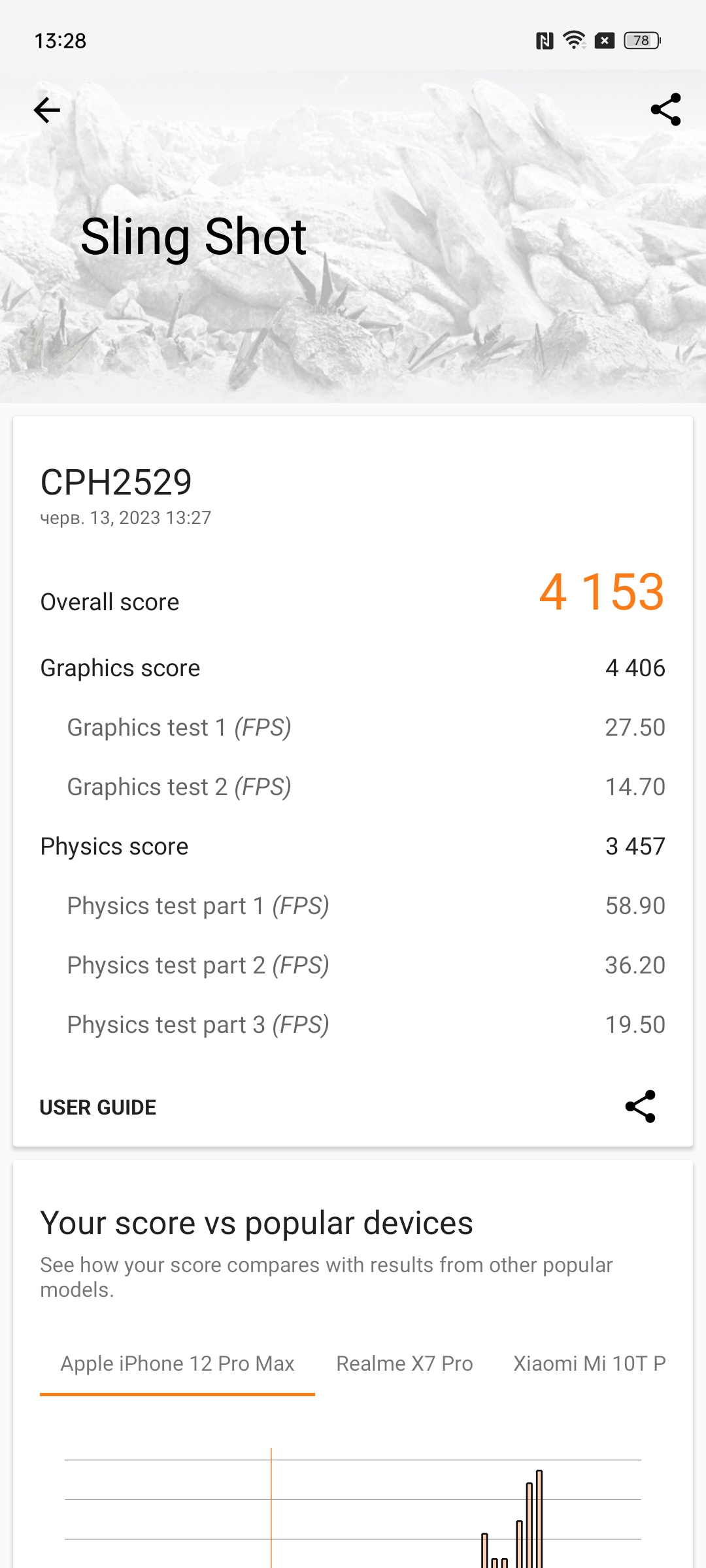
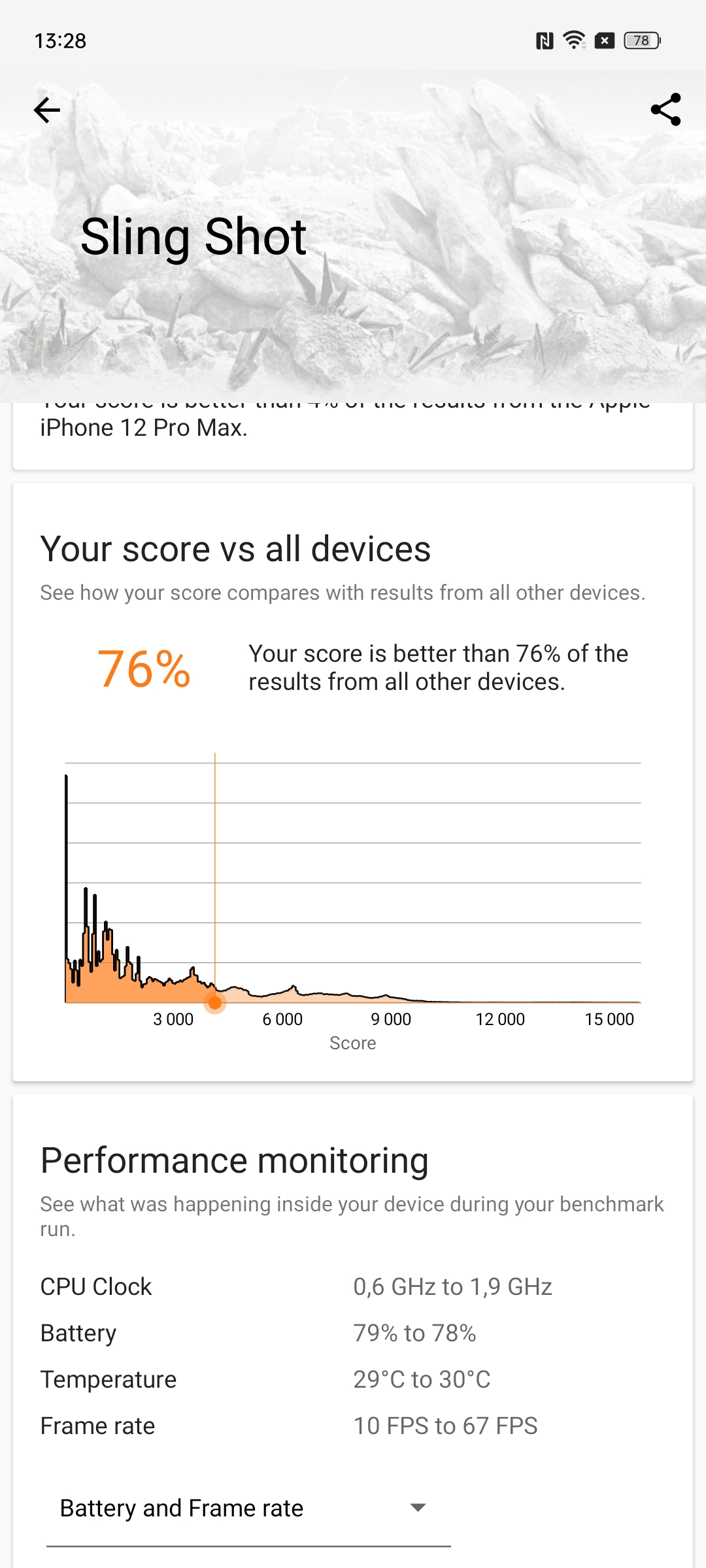
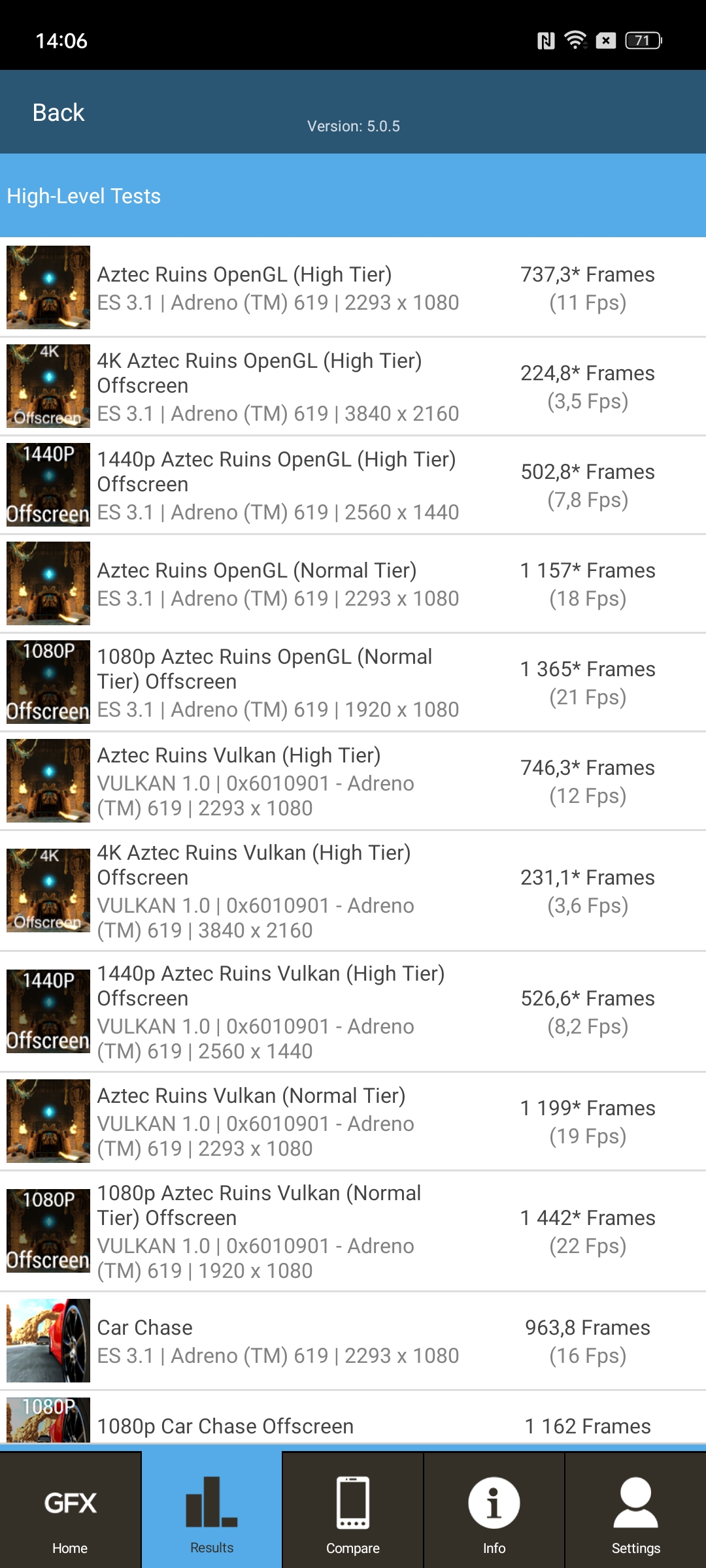
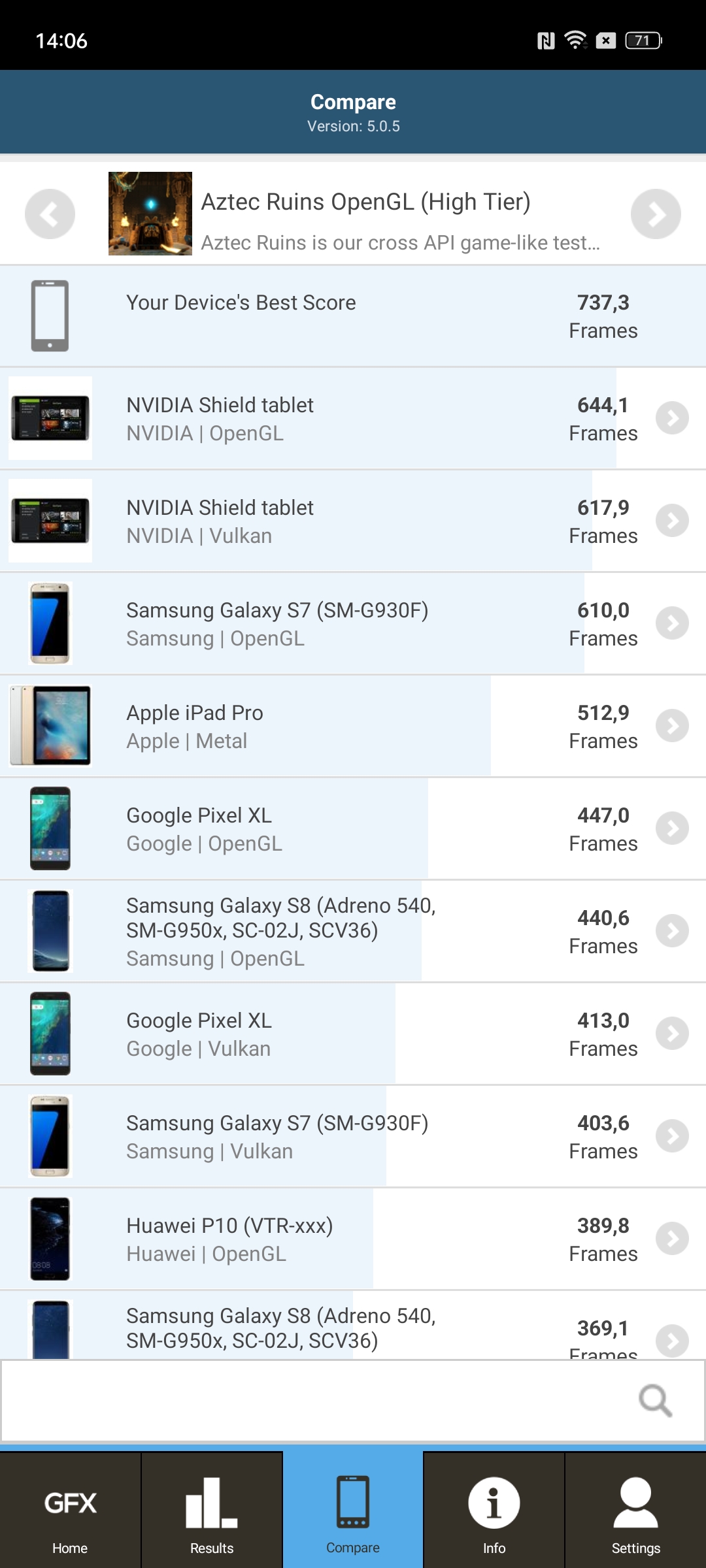

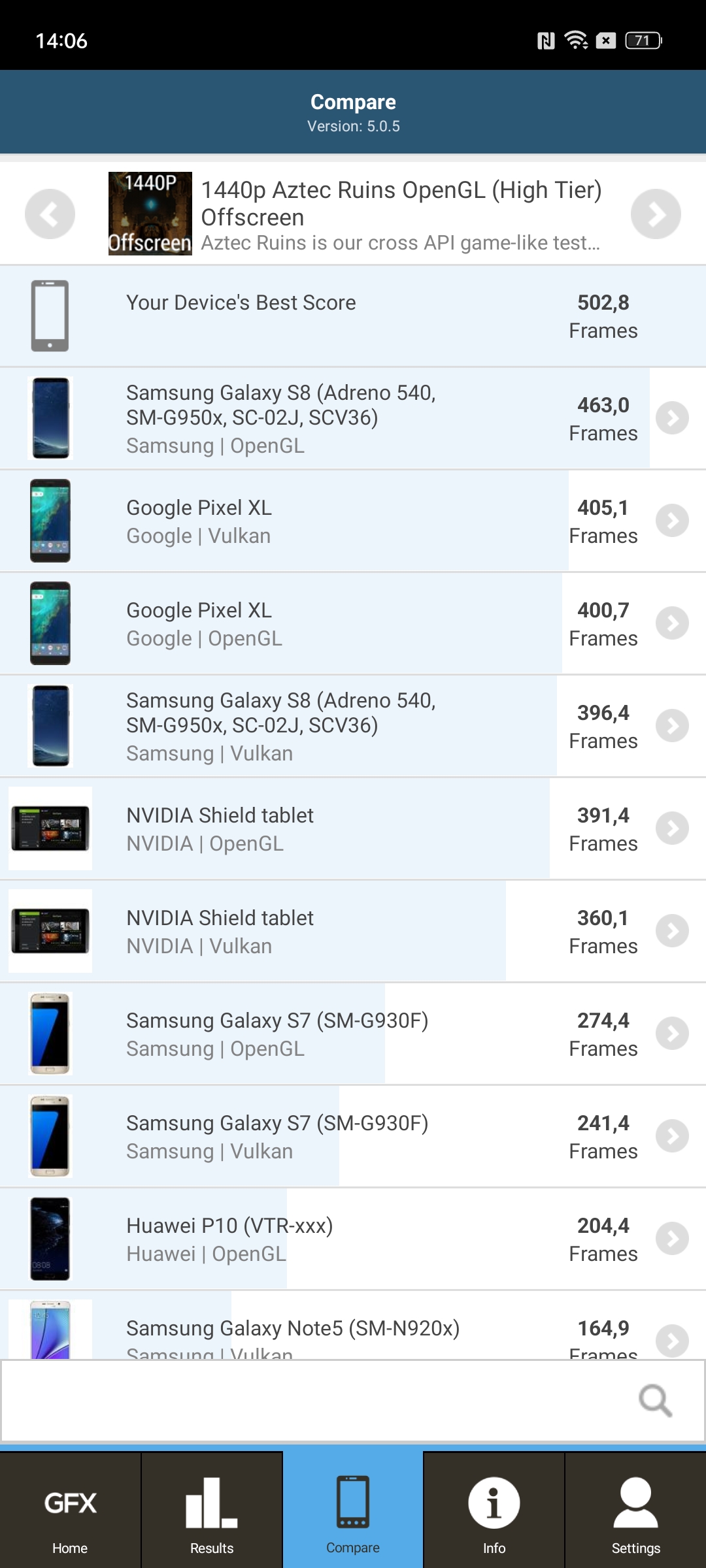
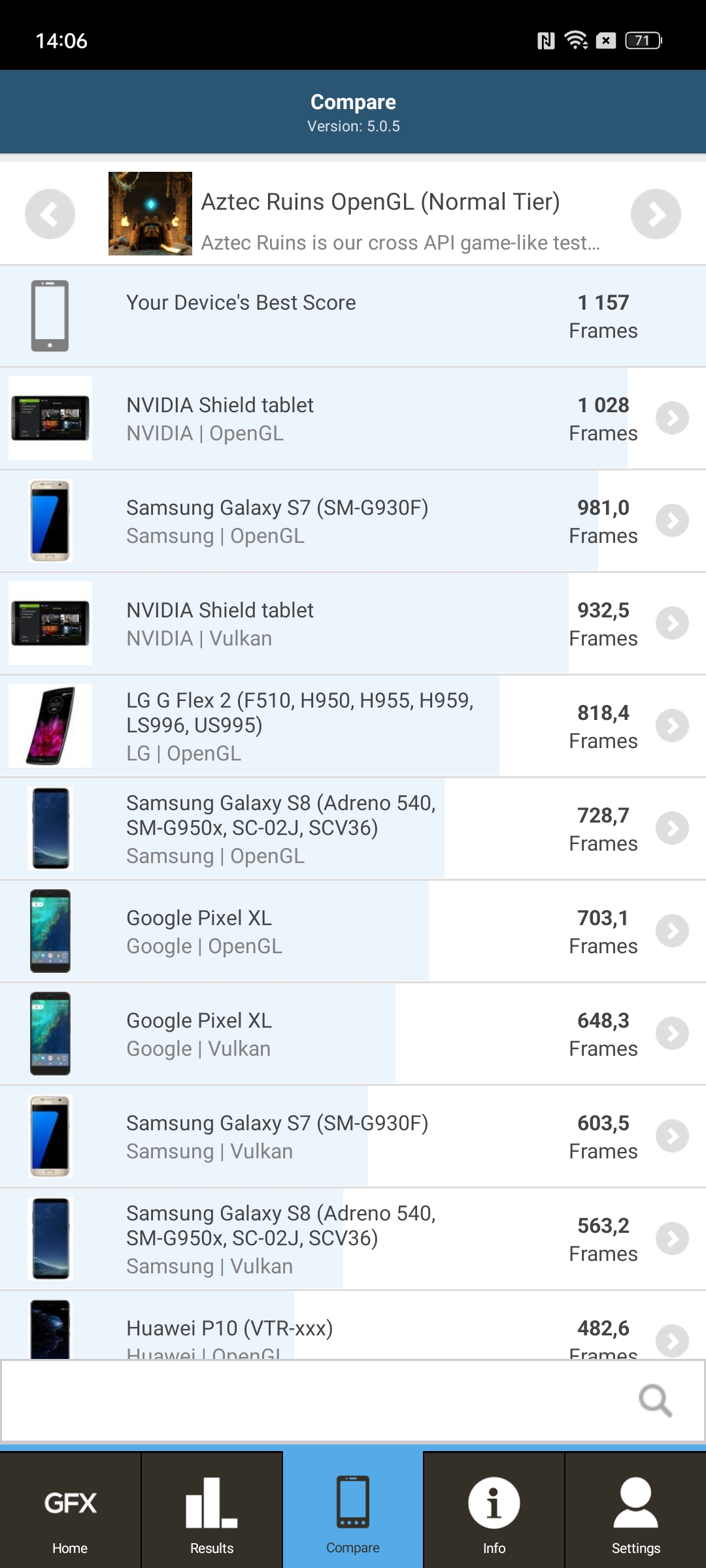

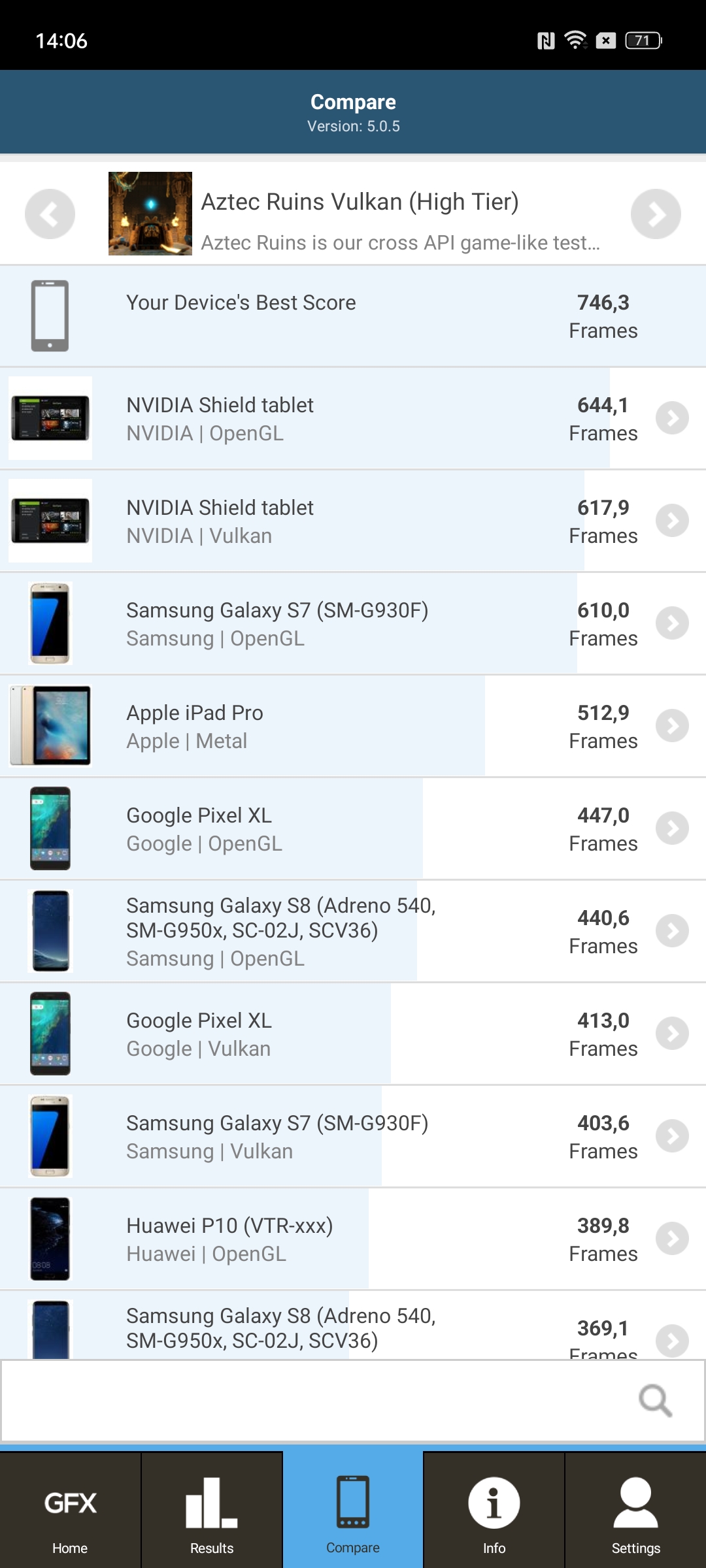

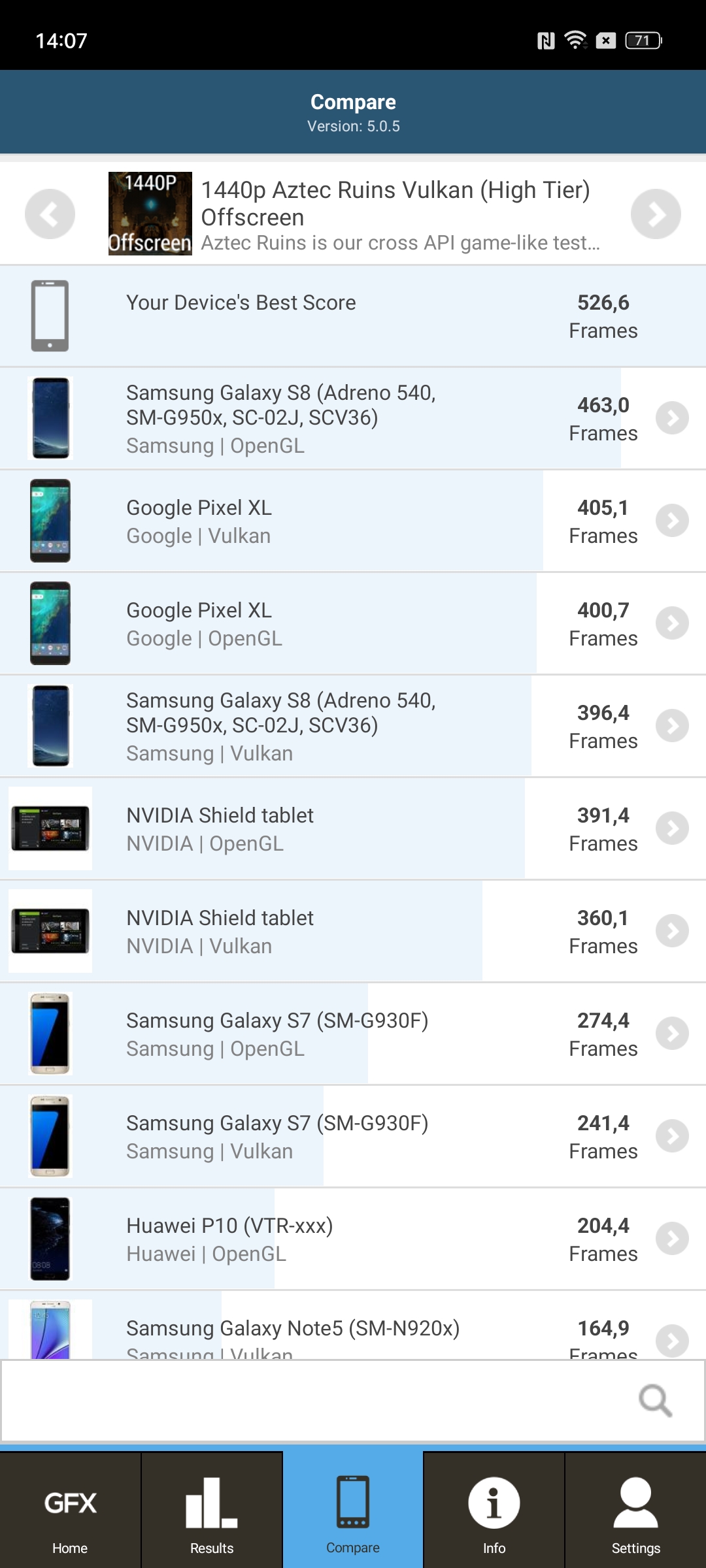
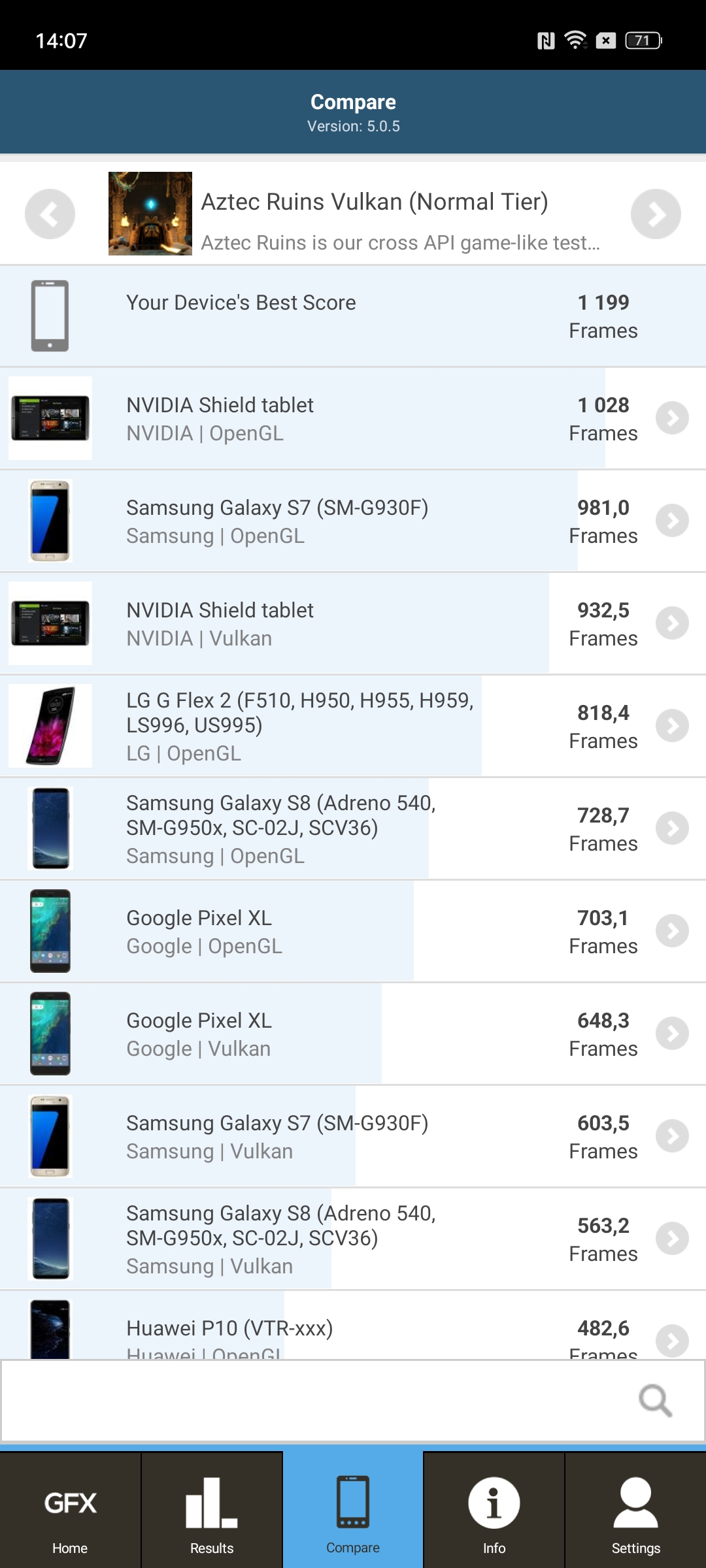
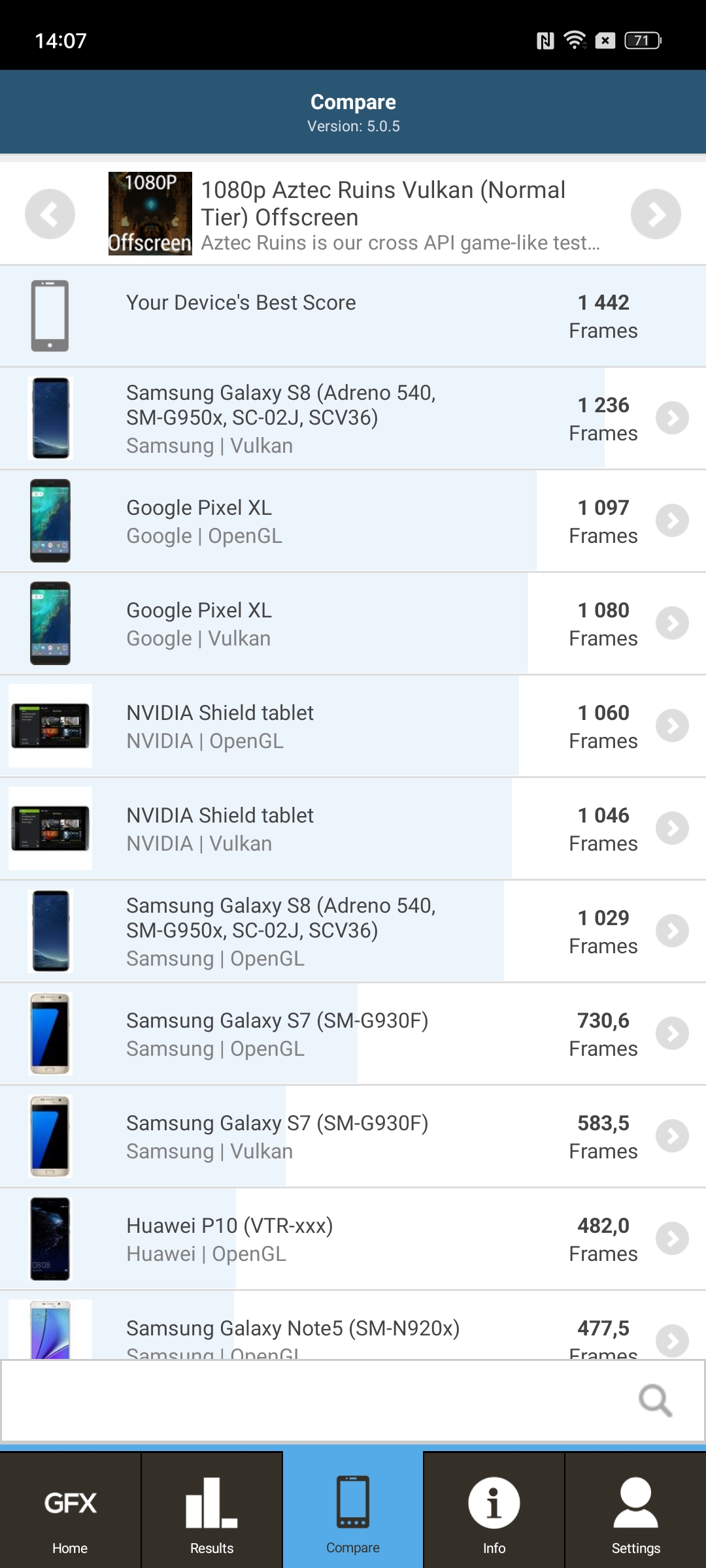
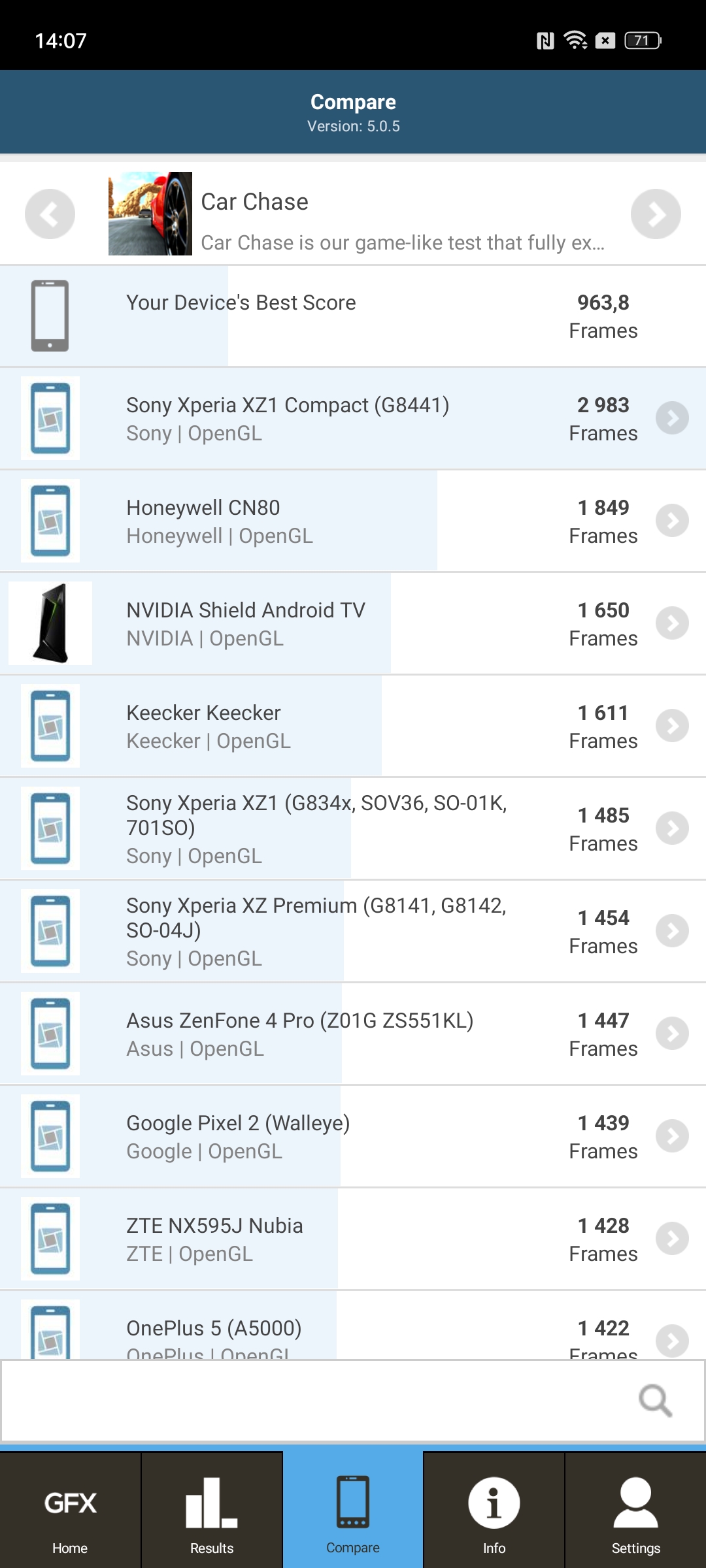
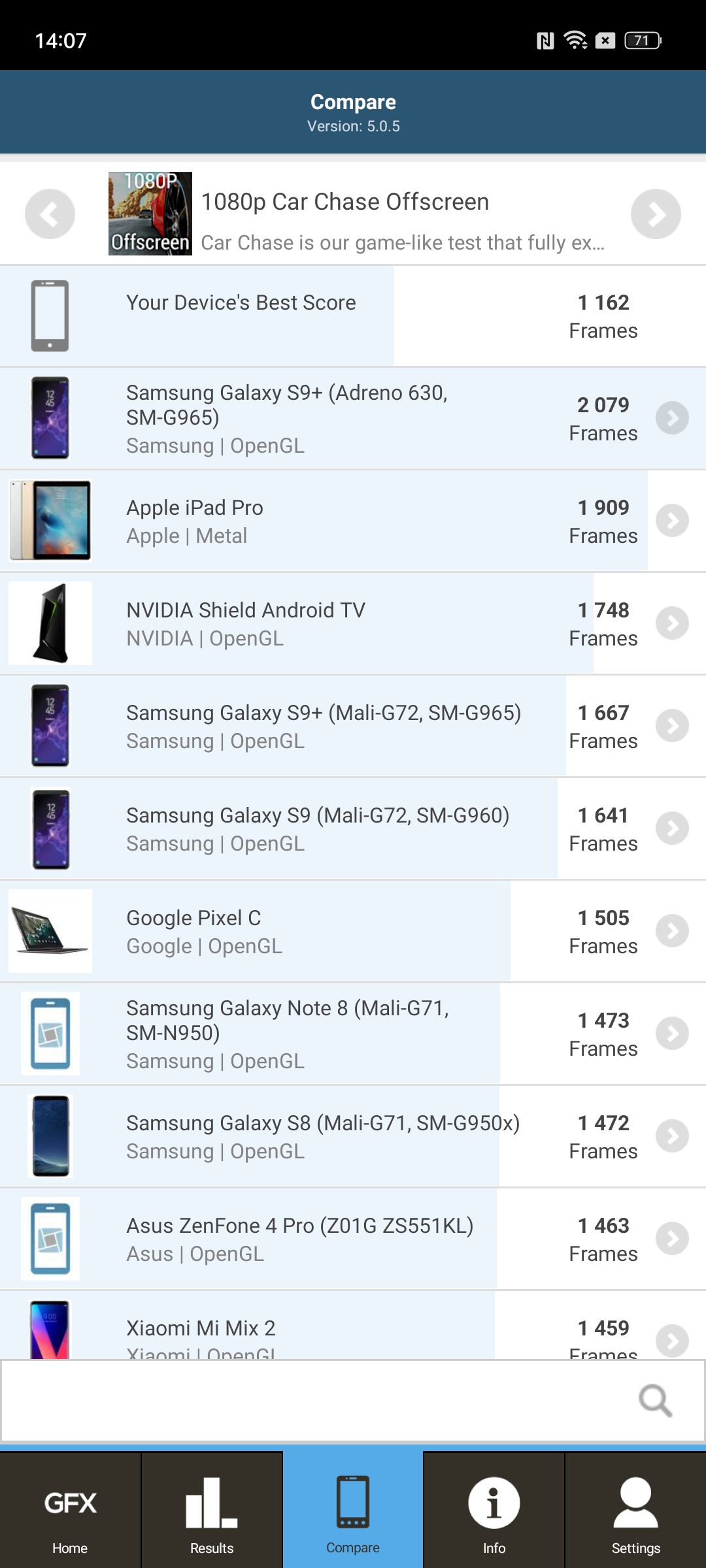
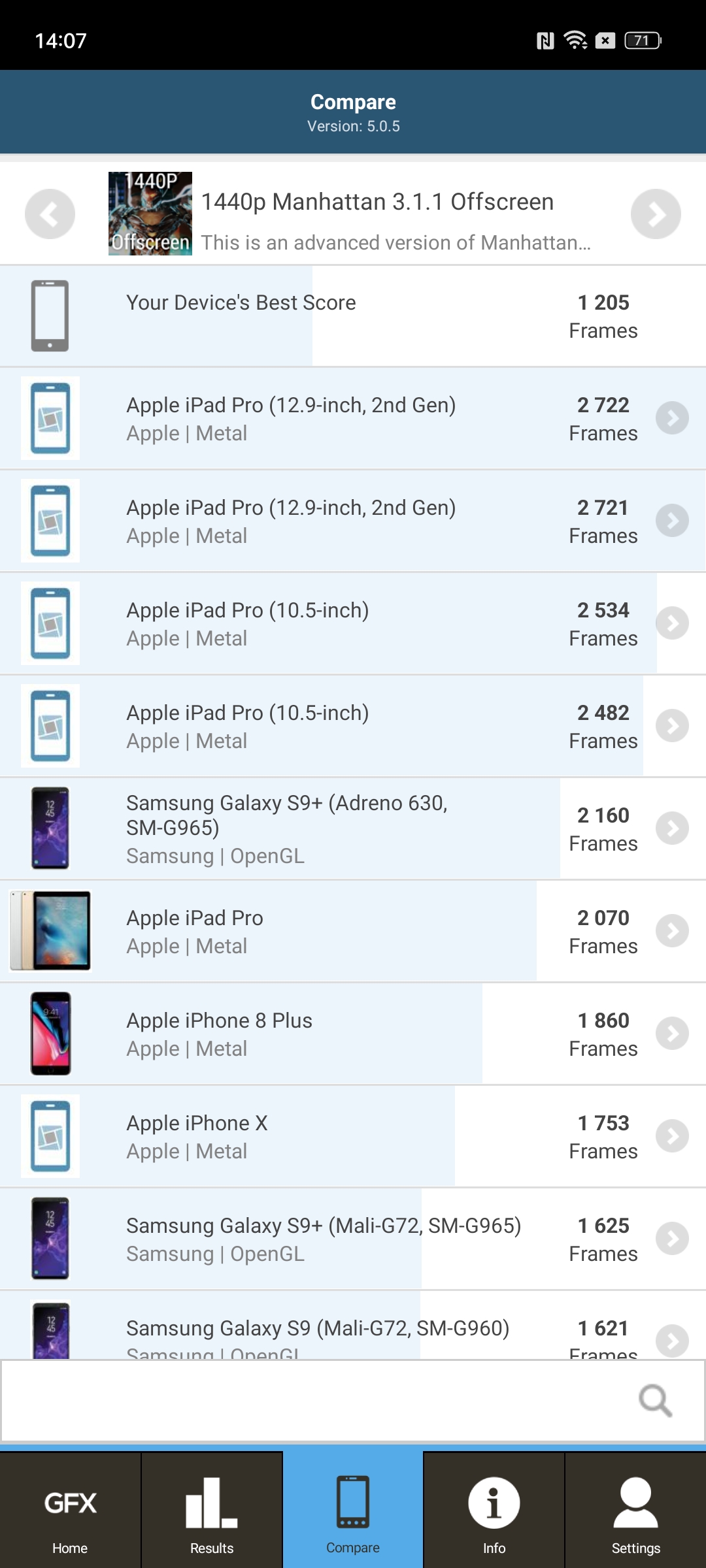

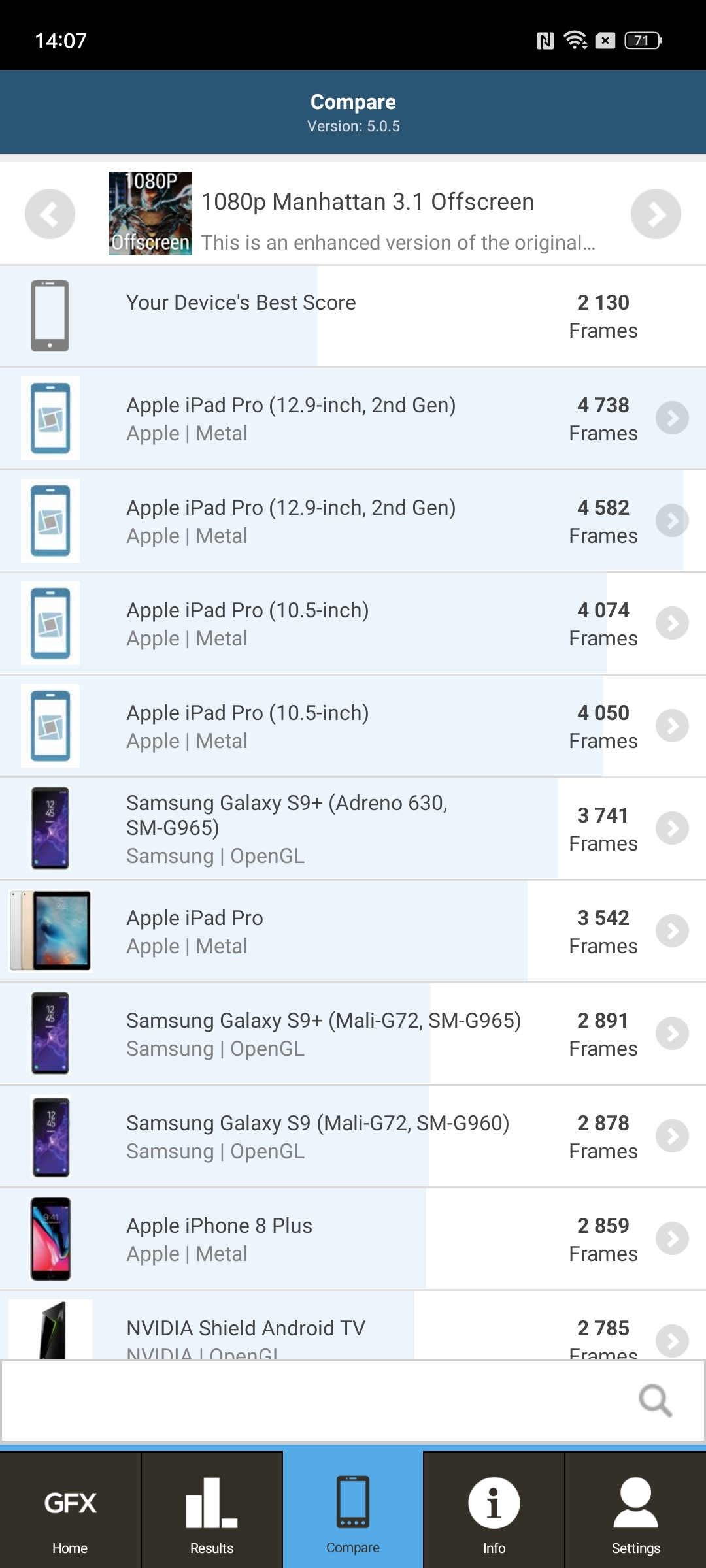
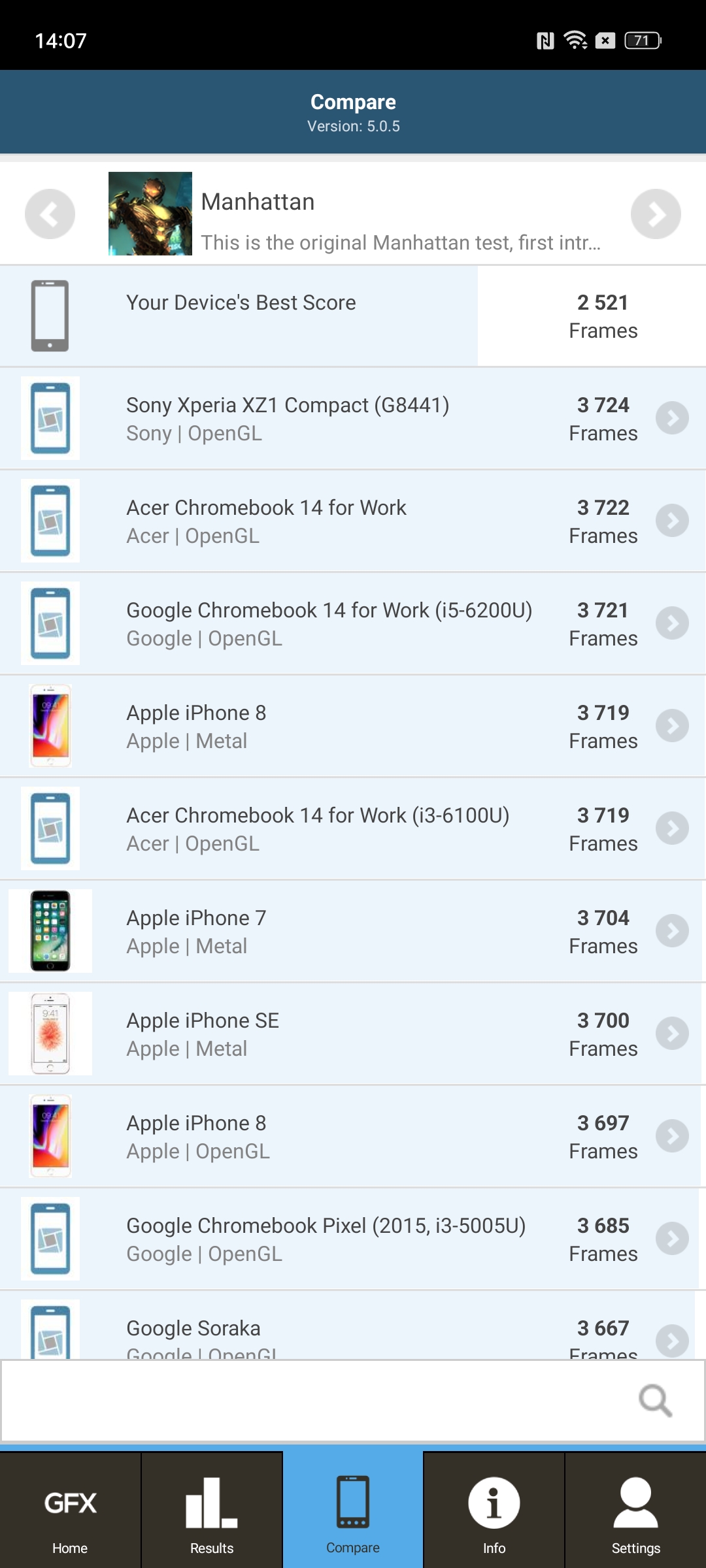
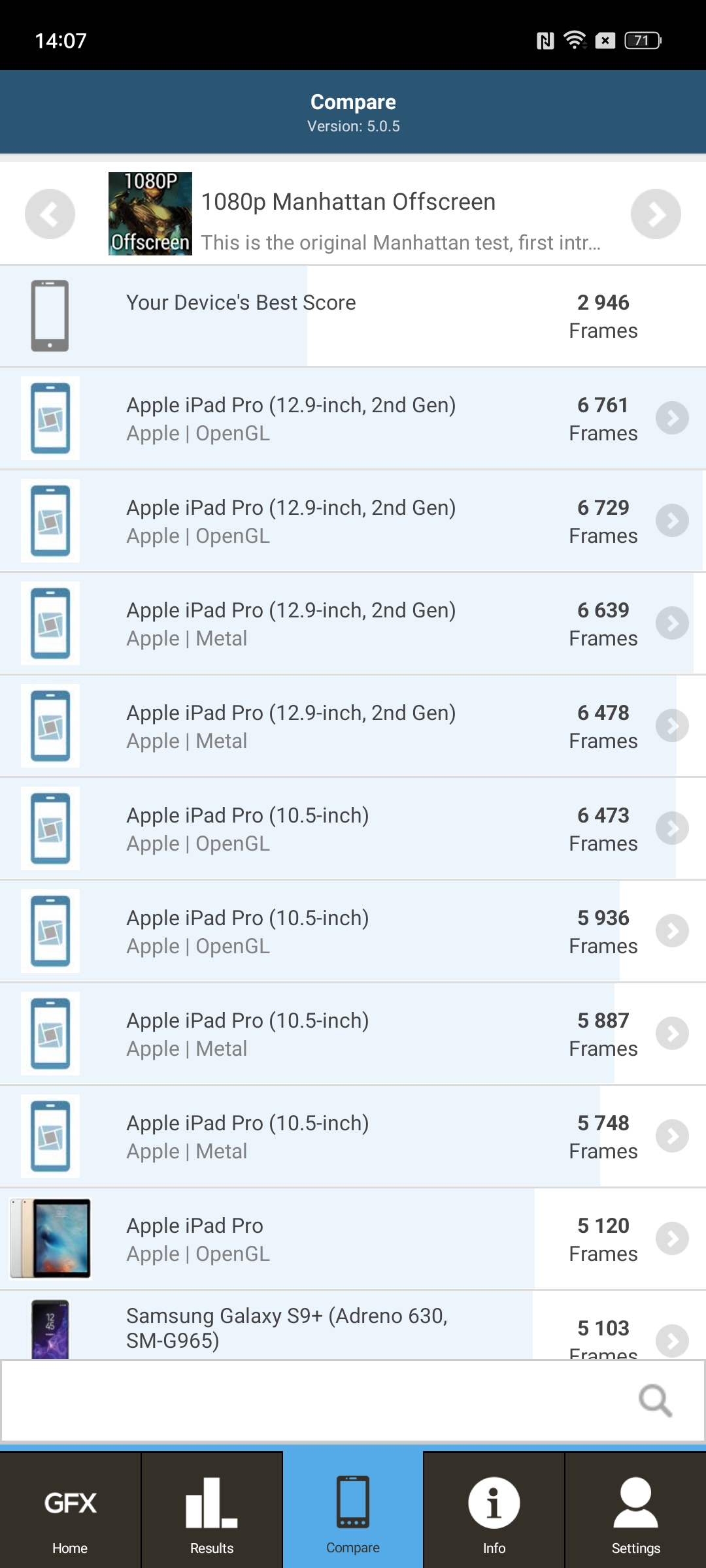
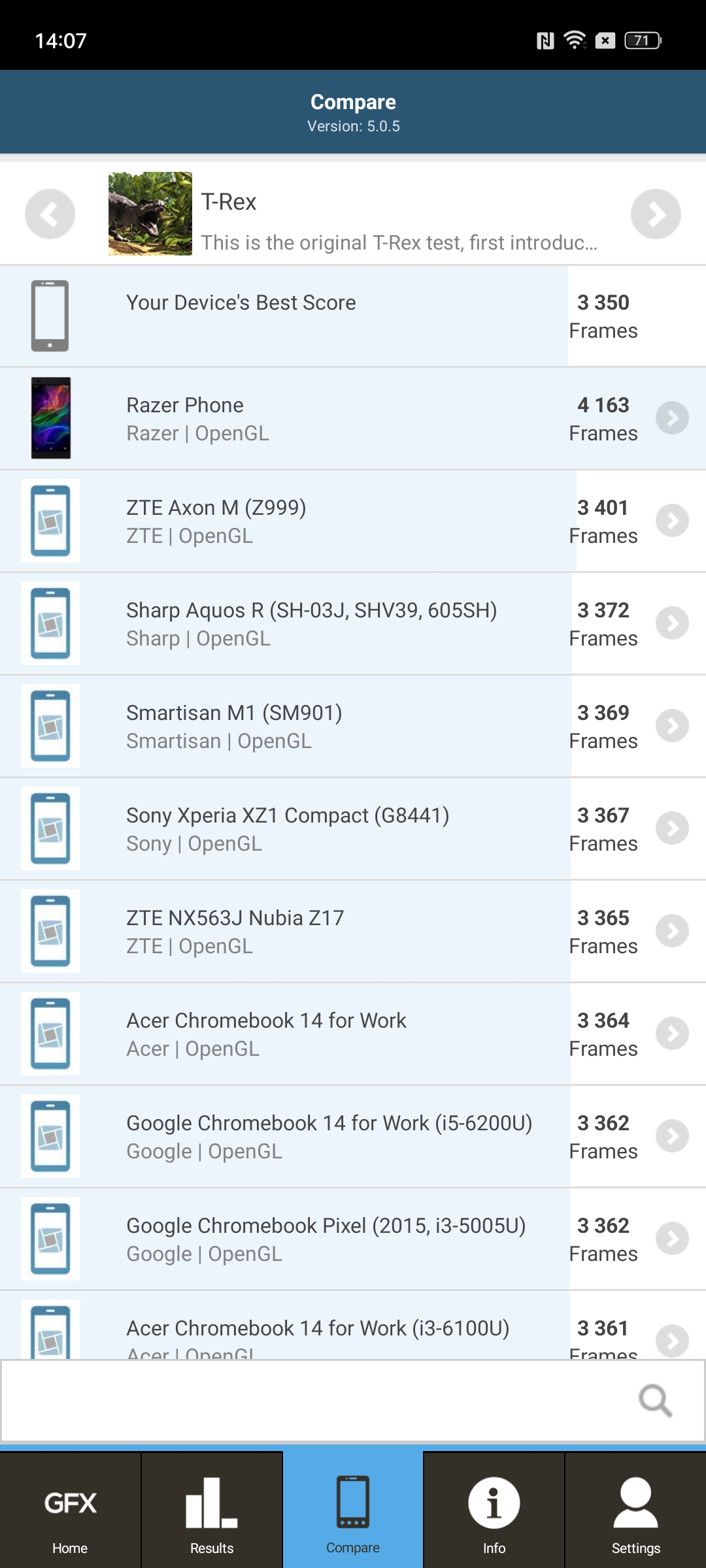
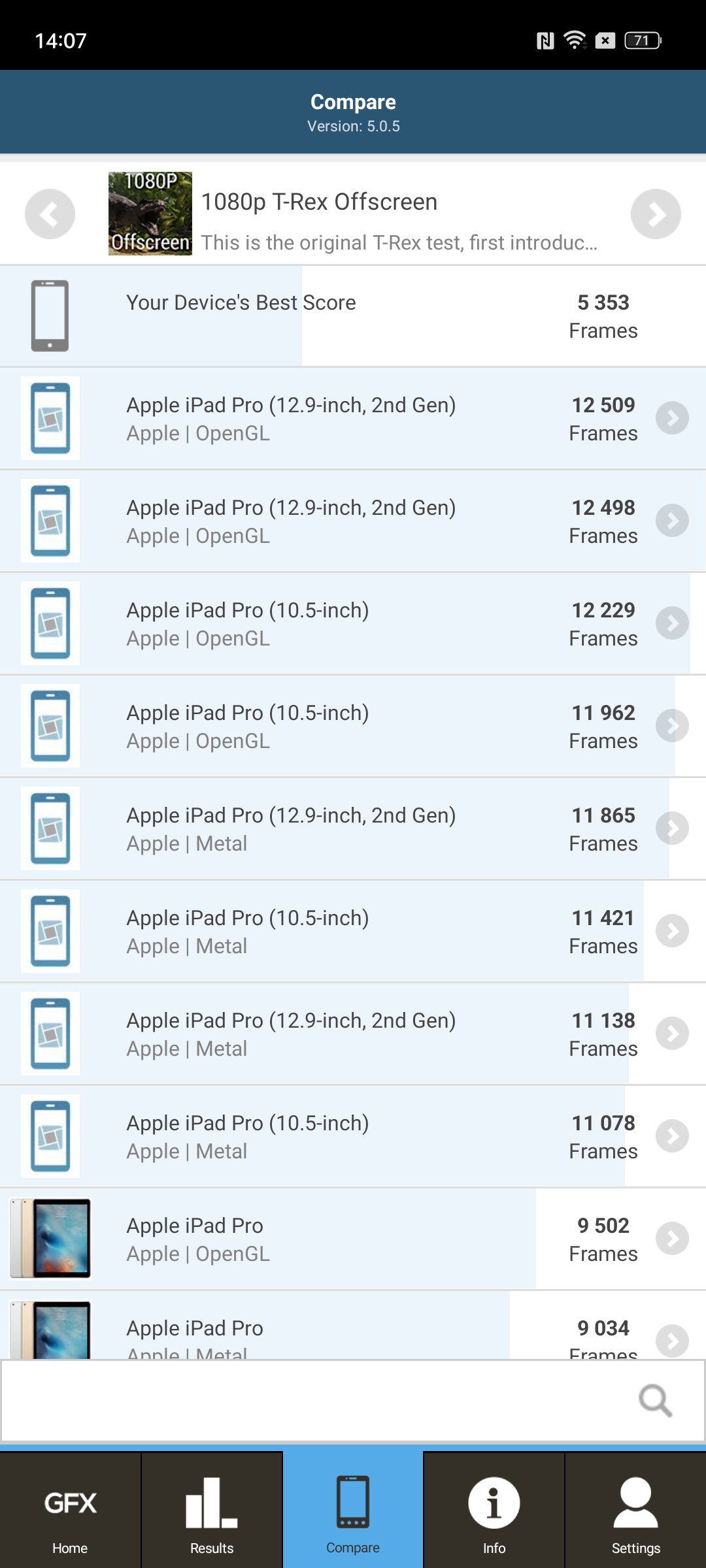


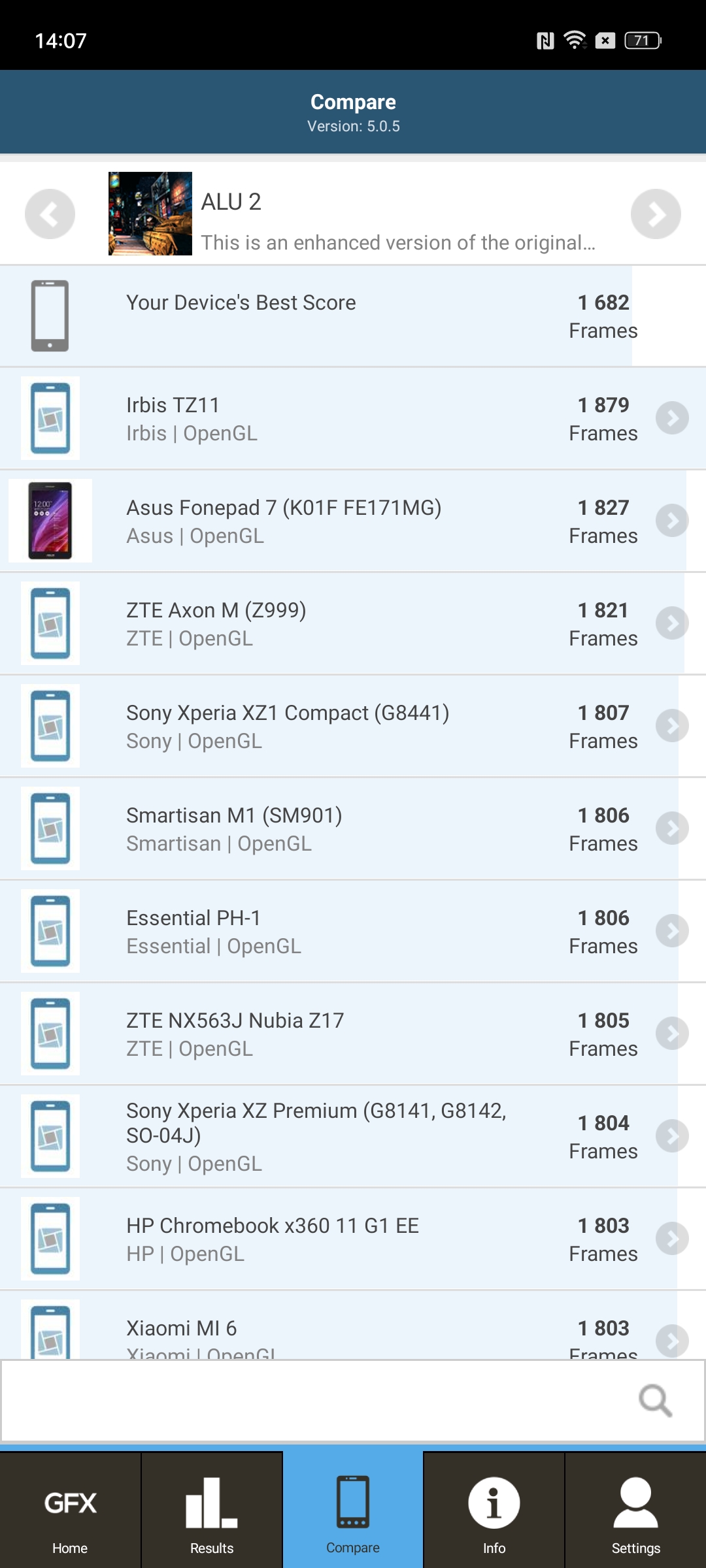
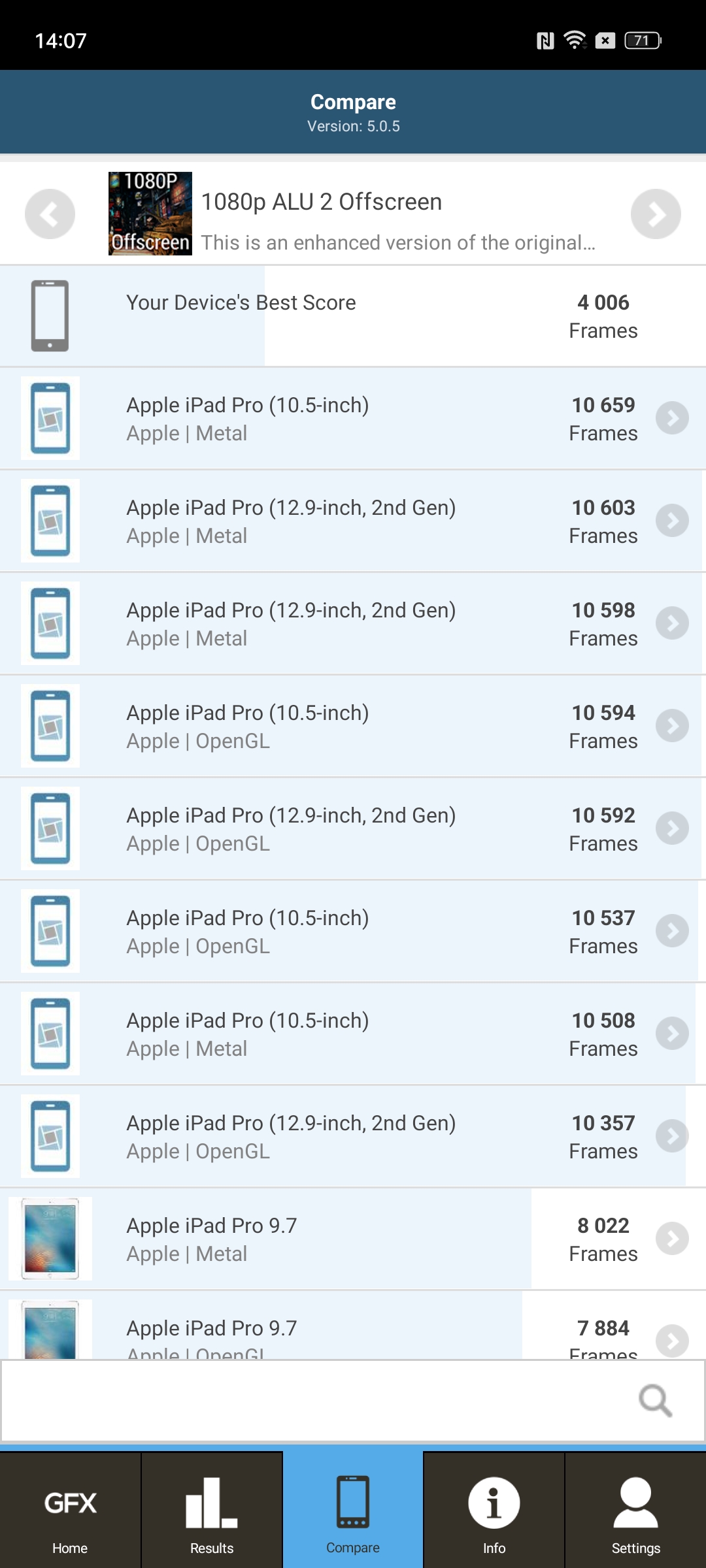
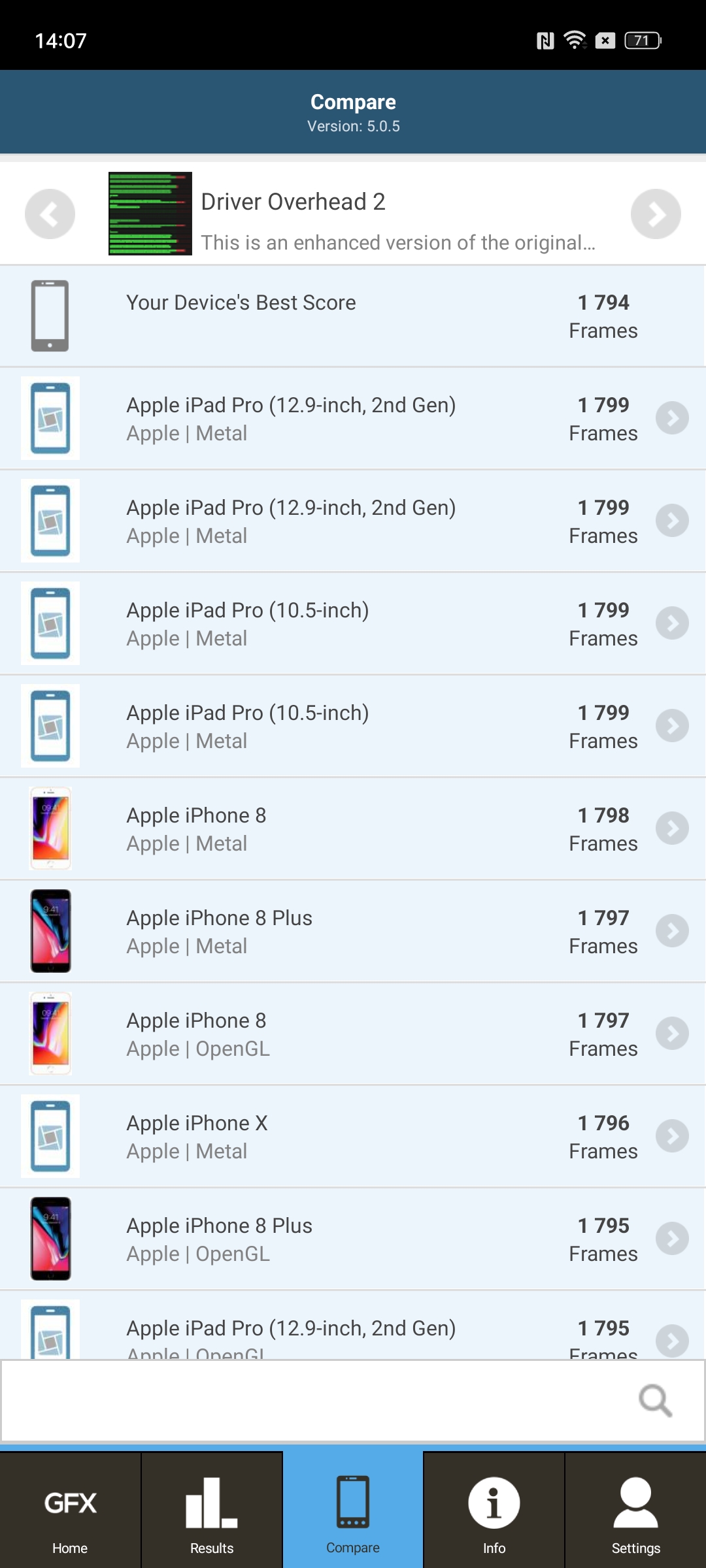



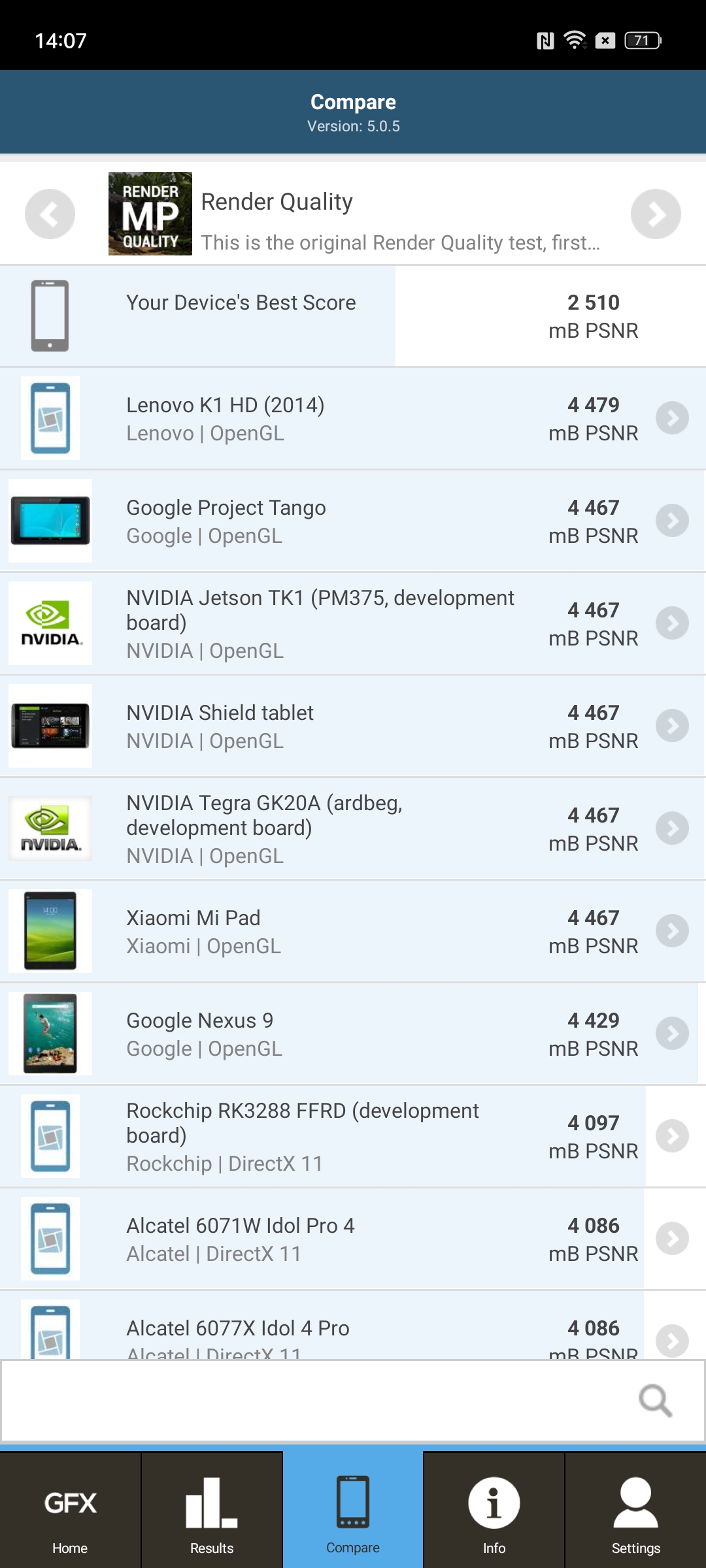













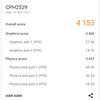





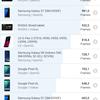

























On the other hand, the smartphone works stably, the case does not get hot during operation. And the CPU Throttling Test showed that under prolonged maximum load, performance can drop by up to 90%, which is a pretty good indicator.

Of course, like all modern smartphones, OPPO A98 has an application for mobile game lovers with a lot of settings. Starting with disabling notifications during the game and ending with a game overlay with system load and FPS indicators. Modern games on a smartphone work, but you should not expect the best graphics. Genshin Impact on the minimum settings runs at a frame rate of about 40 FPS. Call of Duty Mobile - 60 FPS on high settings. Diablo Immortal - about 30 FPS.

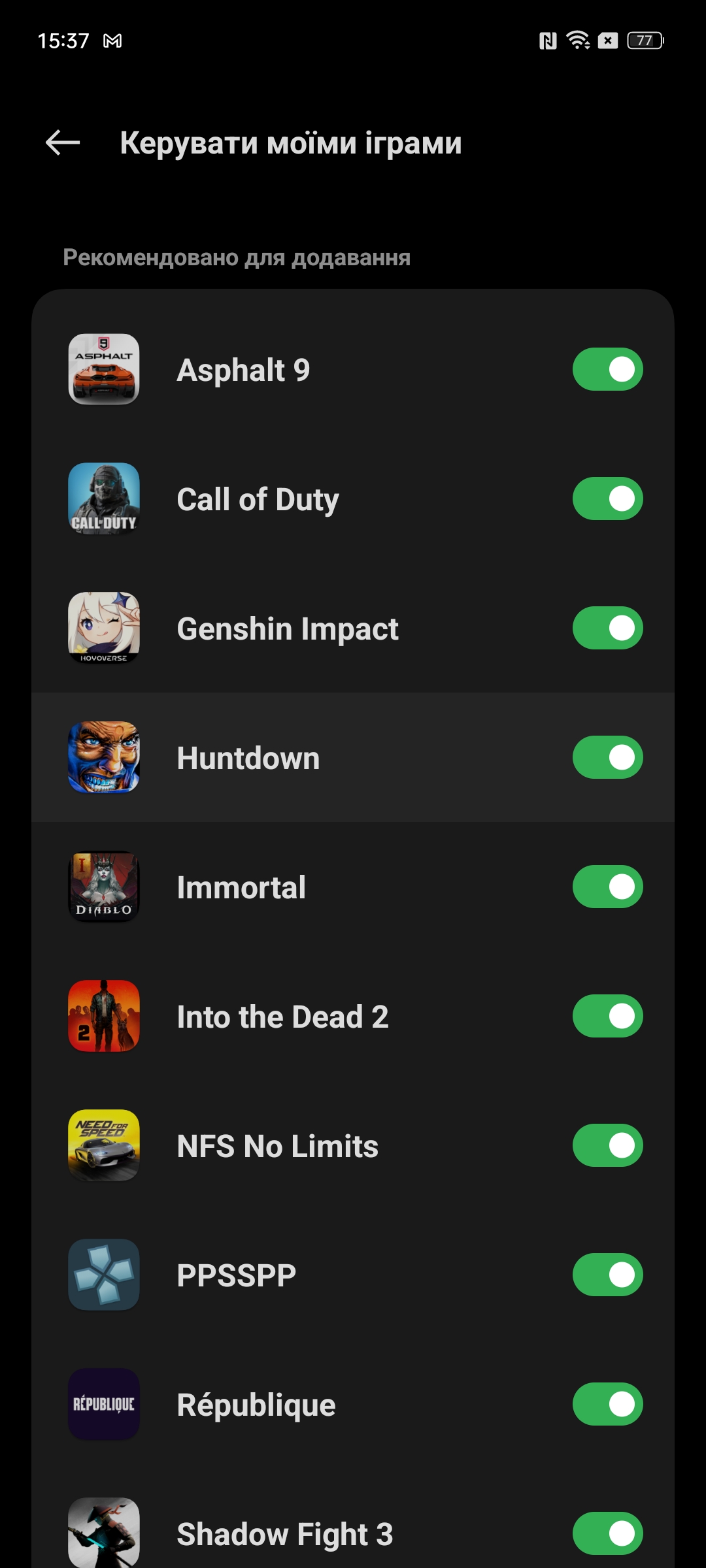







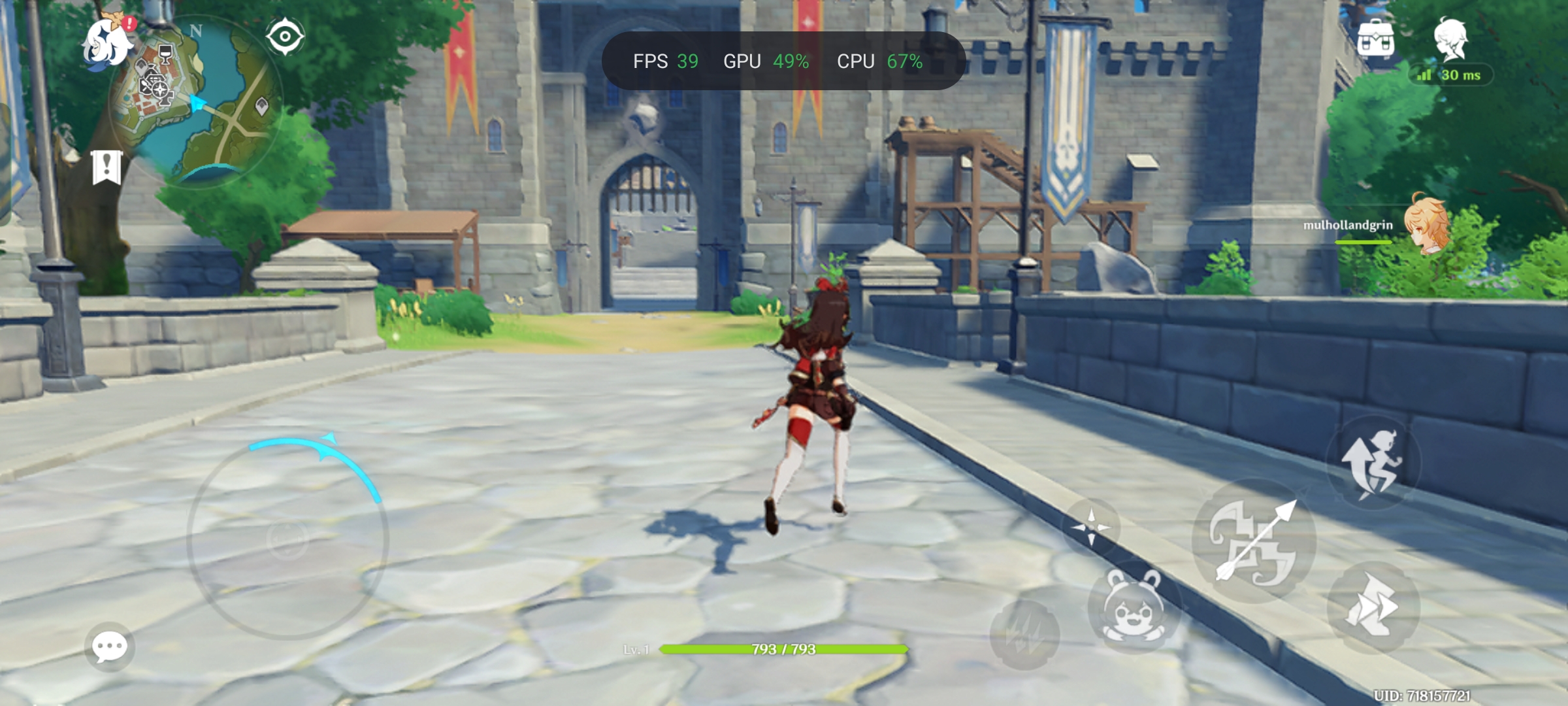
















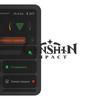

















OPPO A98 is equipped with dual-band 802.11 a/b/g/n/ac Wi-Fi 2.4 GHz and 5 GHz, Bluetooth 5.1 LE with support for SBC, AAC, aptX HD, LDAC audio codecs, as well as NFC module for contactless payment. The smartphone supports A-GPS, GLONASS, BDS, GALILEO and QZSS global positioning systems. In terms of music features, everything is quite typical. The player has standard functionality. And among the interesting things is the presence of a 3.5 mm headphone jack, which is becoming increasingly rare in modern smartphones. And also stereo sound. The smartphone really sounds quite loud and has a volume boost function. The quality is mediocre.

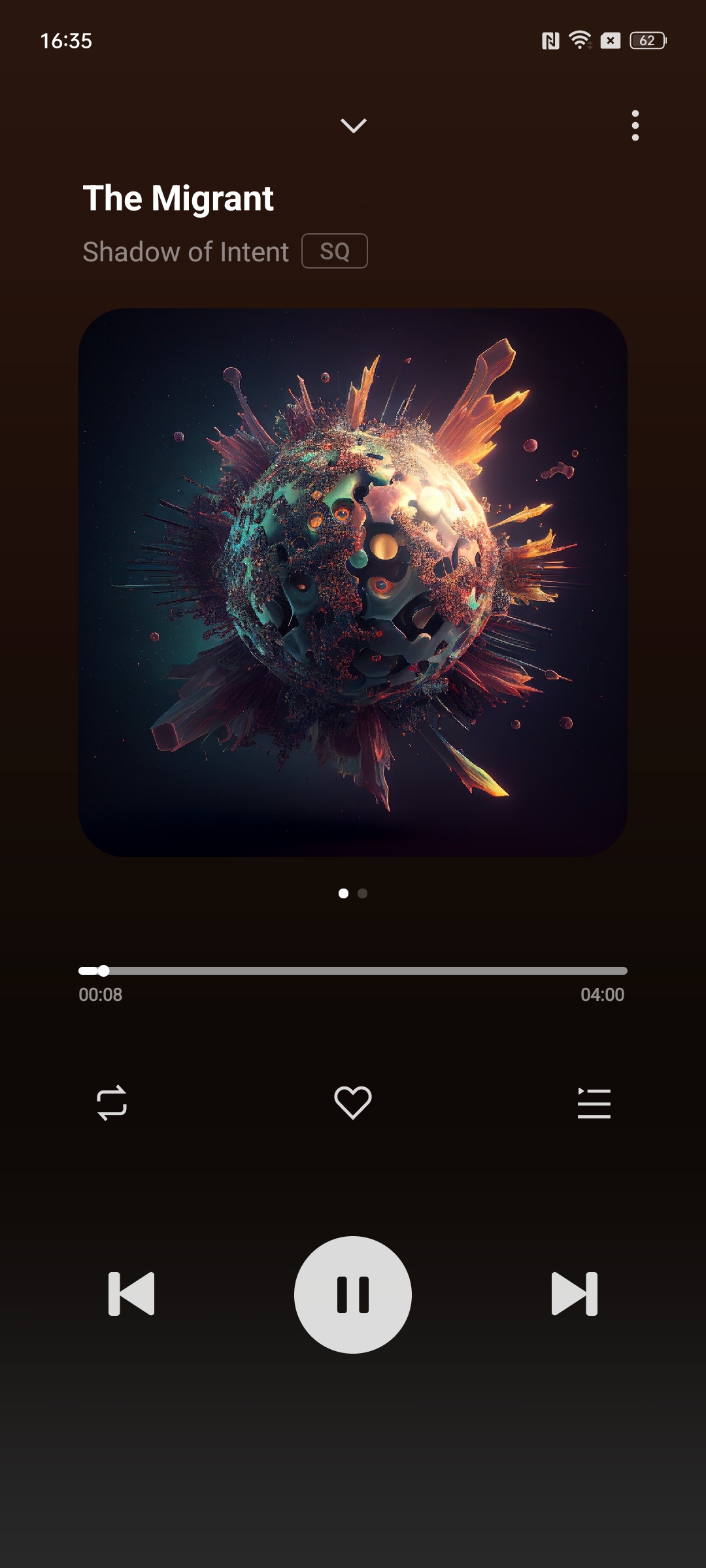






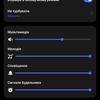

The battery in the smartphone is 5000 mAh, which is quite normal for modern smartphones with large screens. OPPO A98 supports 67W SUPERVOOC fast charging. They promise 50% in 18 minutes and a full charge in 44 minutes. This is approximately the case in real life. A full charge takes less than 50 minutes. The Battery Health Engine technology is said to significantly increase battery life. The smartphone turned out to be quite durable. In everyday mode, you can count on a day and a half of operation if you don't play games too actively. This is about 20 minutes of talk time, a couple of hours of music via Bluetooth, social networks, mail, video, browser, etc.
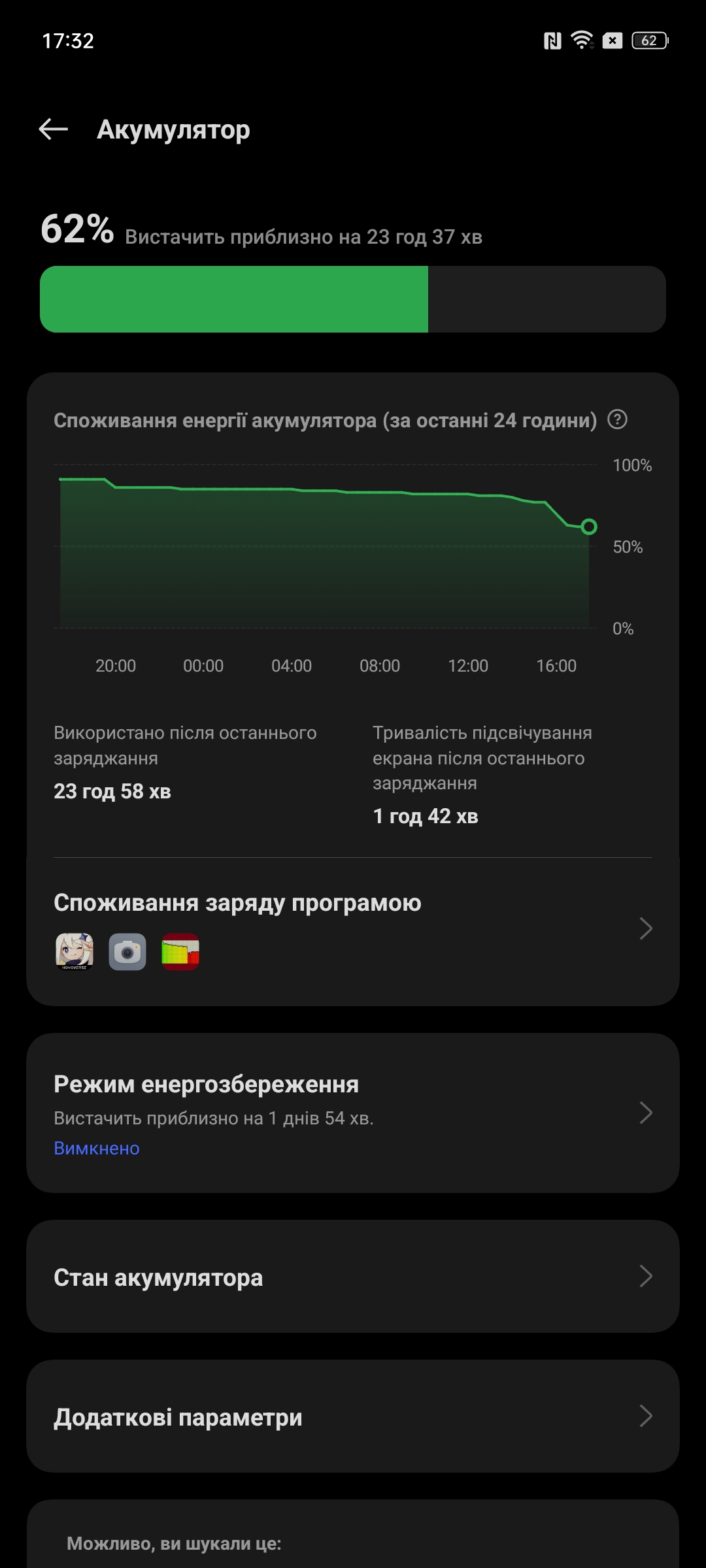







What about the interface?

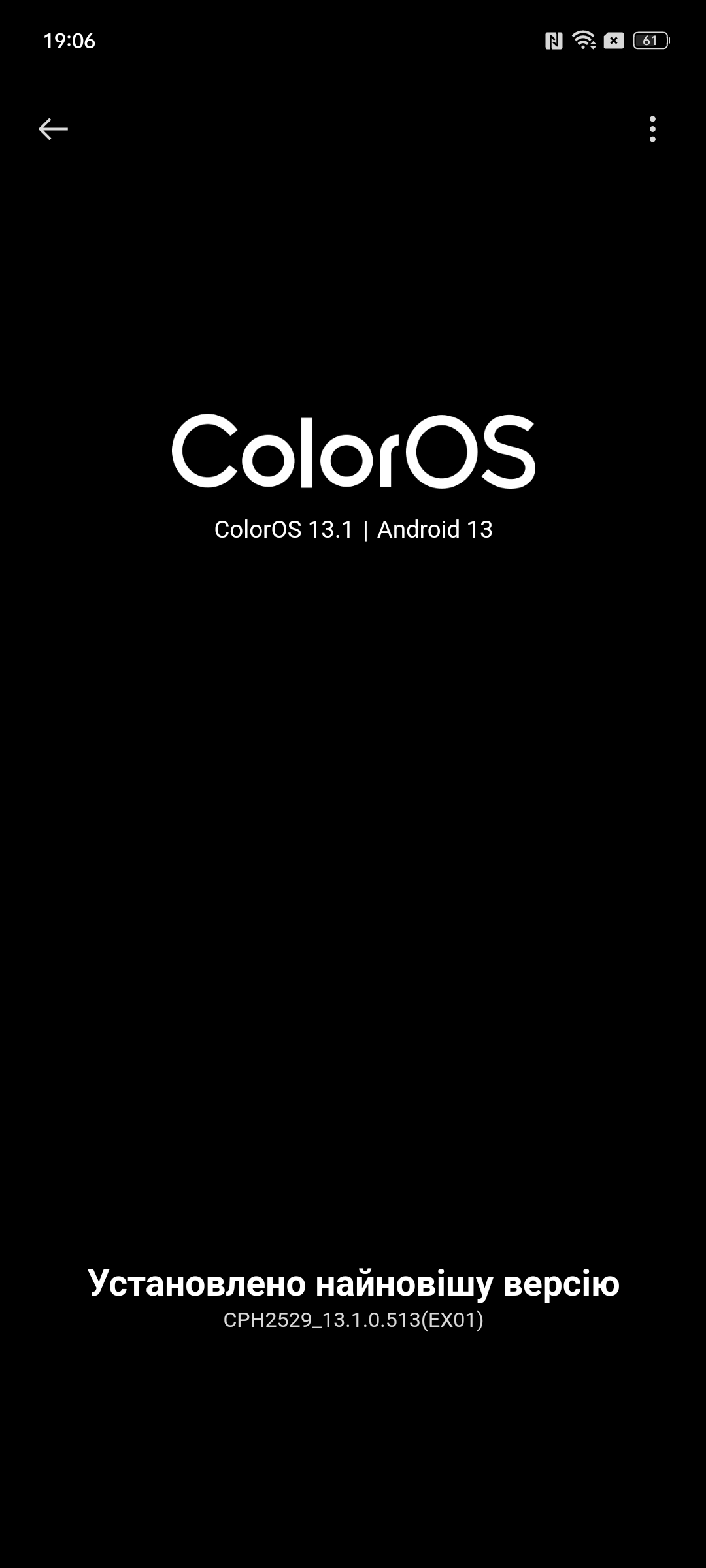


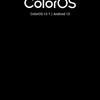

OPPO A98 runs on Android 13 with the proprietary Color OS 13.1 shell. In general, as in the company's previous smartphones, the shell does not bring any major changes to the OS. So it's convenient to use and you don't have to get used to it. It works quite quickly and there are no noticeable bugs or glitches. Only sometimes there are localisation inaccuracies. The changes are mostly visual. So everything is as usual. There are two options: desktops and a separate menu with all applications, which can be disabled. It is possible to customise the grid, widgets, the appearance of icons, animations, etc. The navigation options are standard: buttons or gestures.

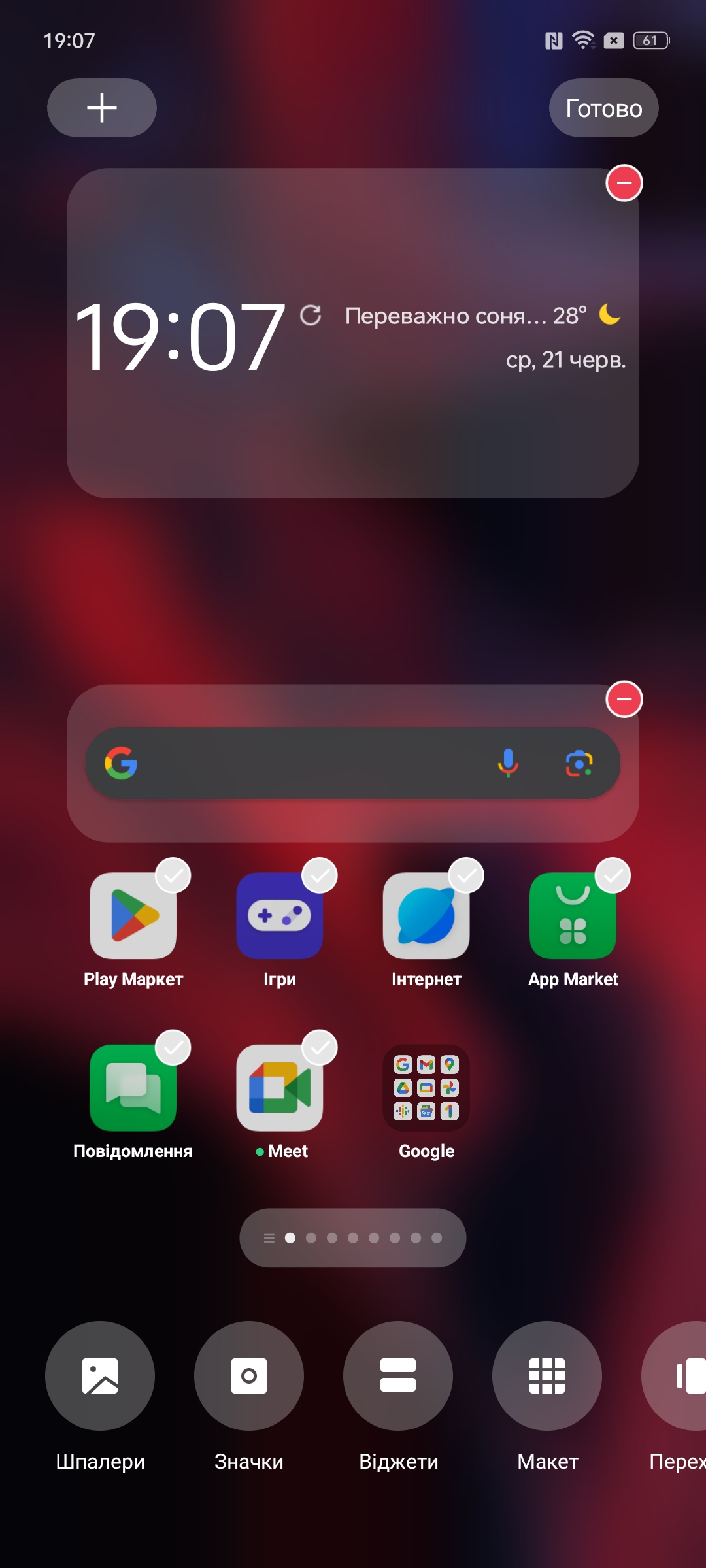

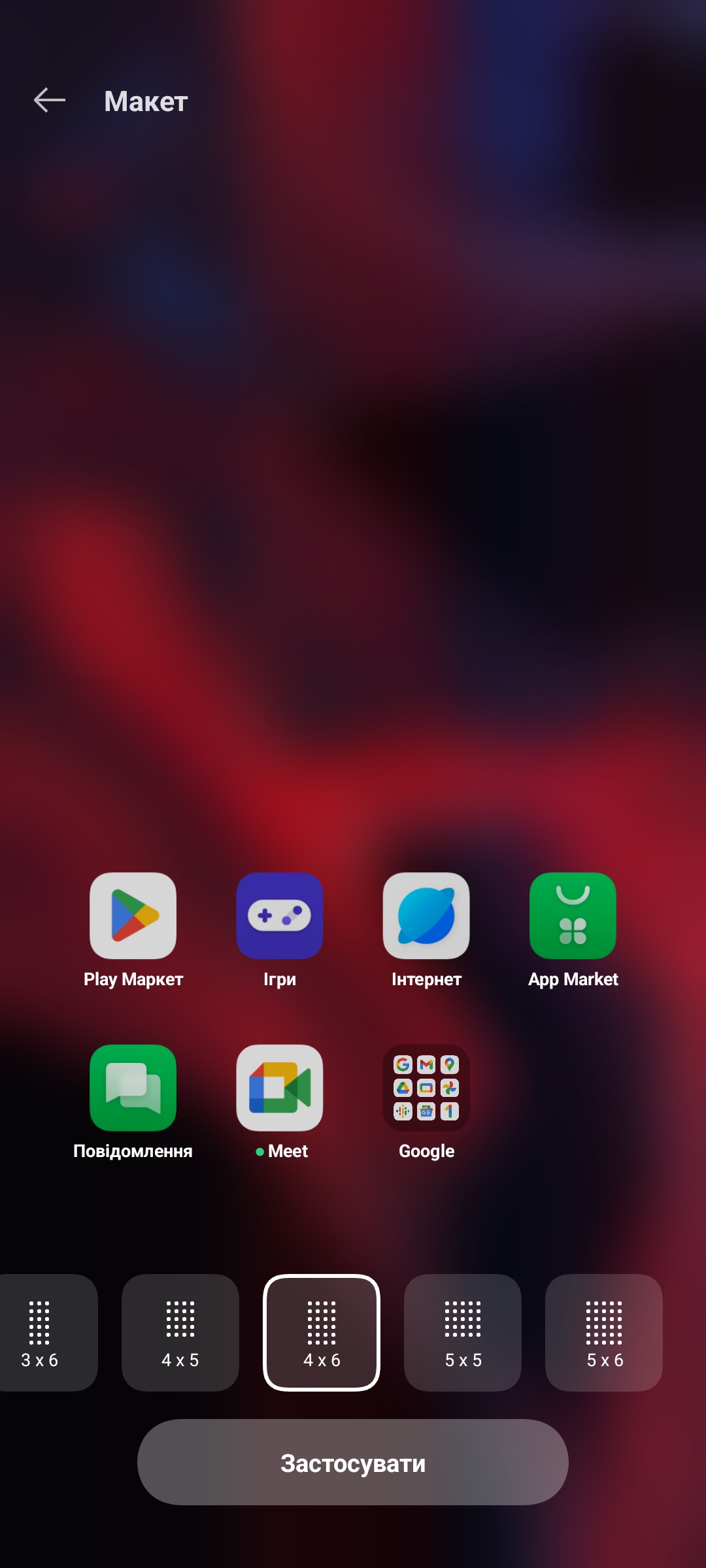

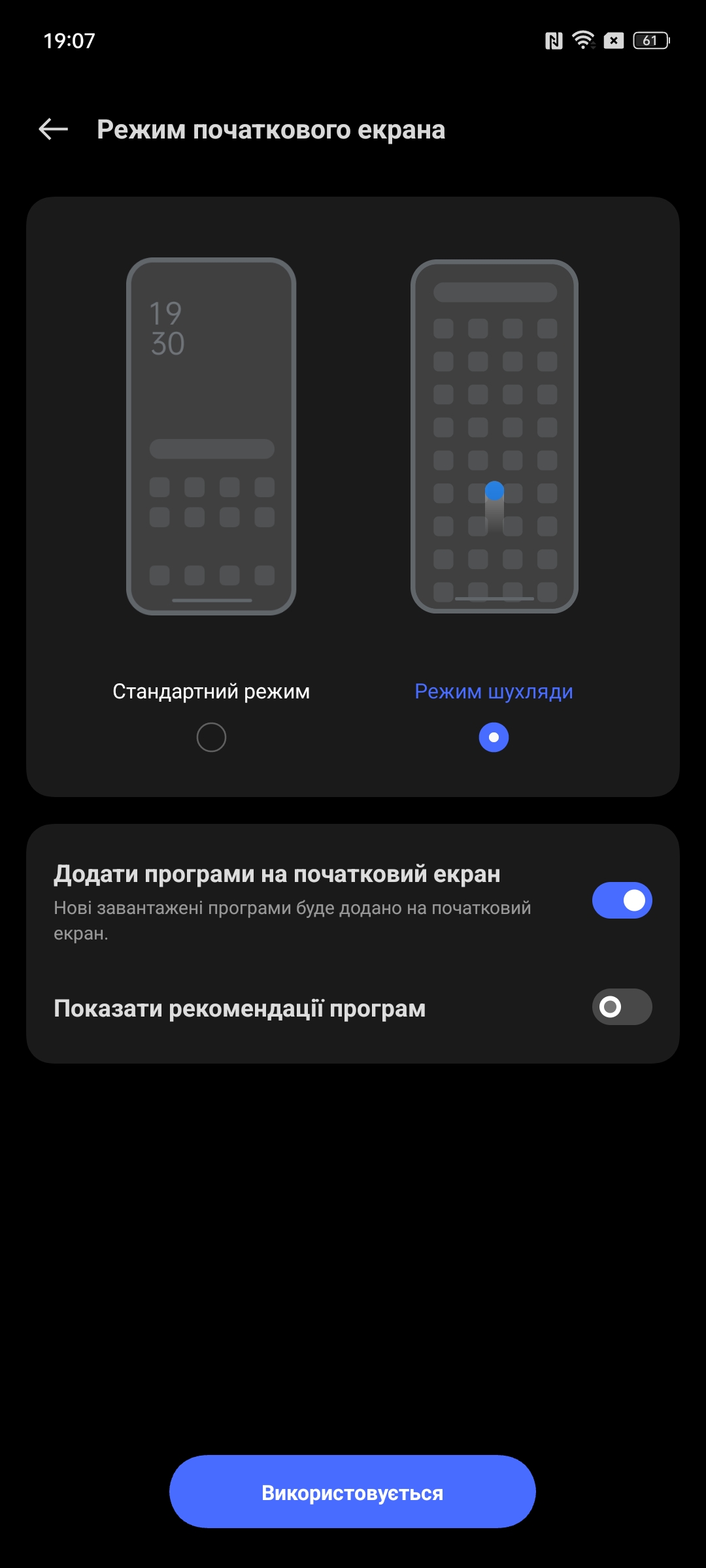

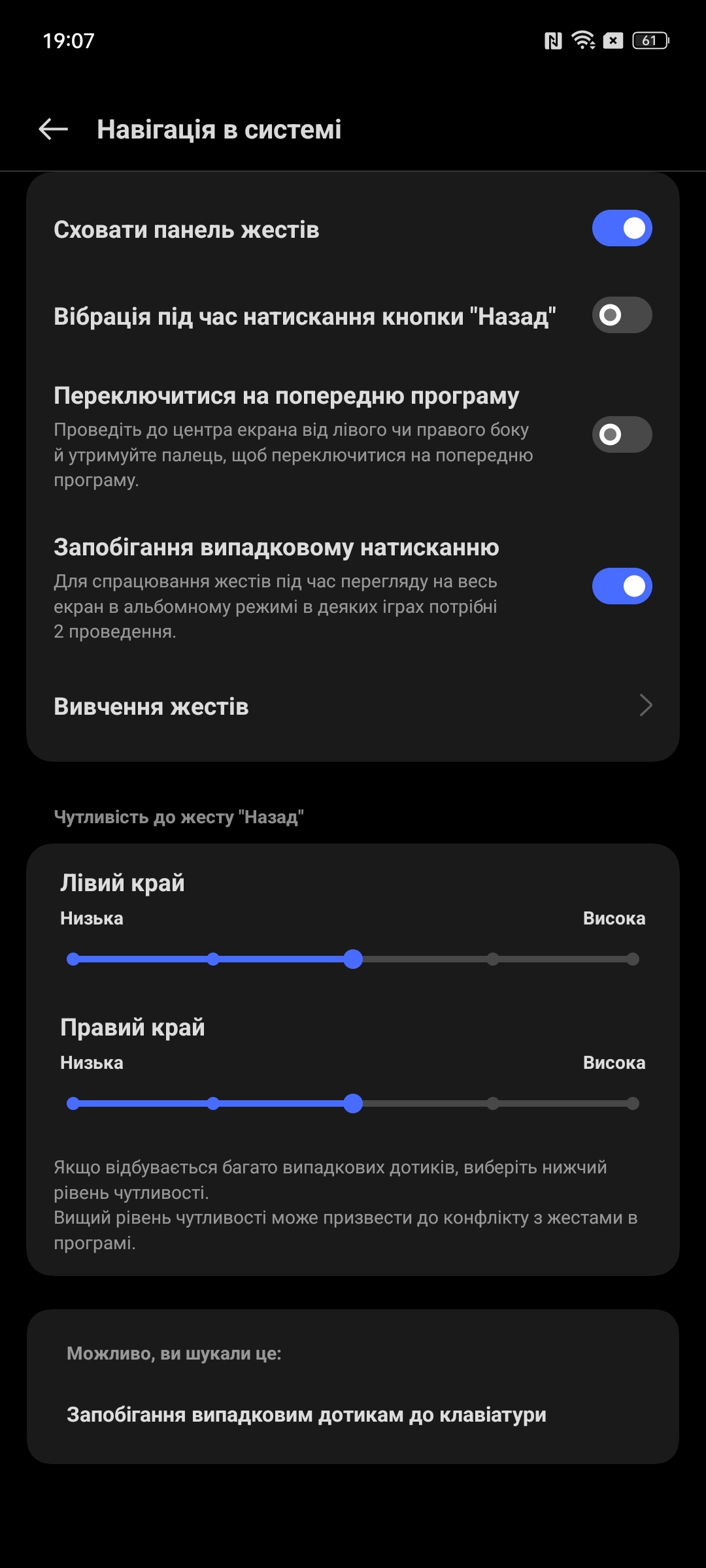
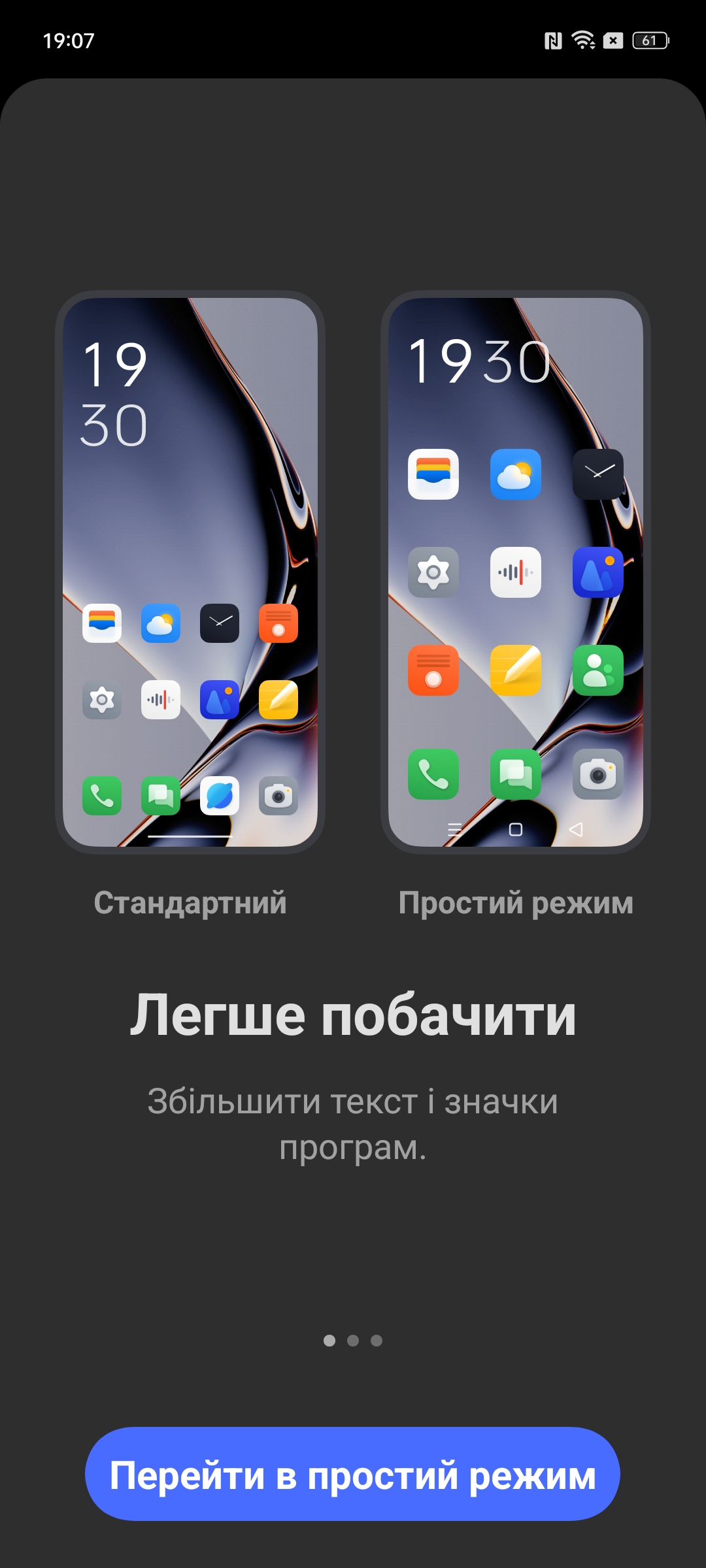
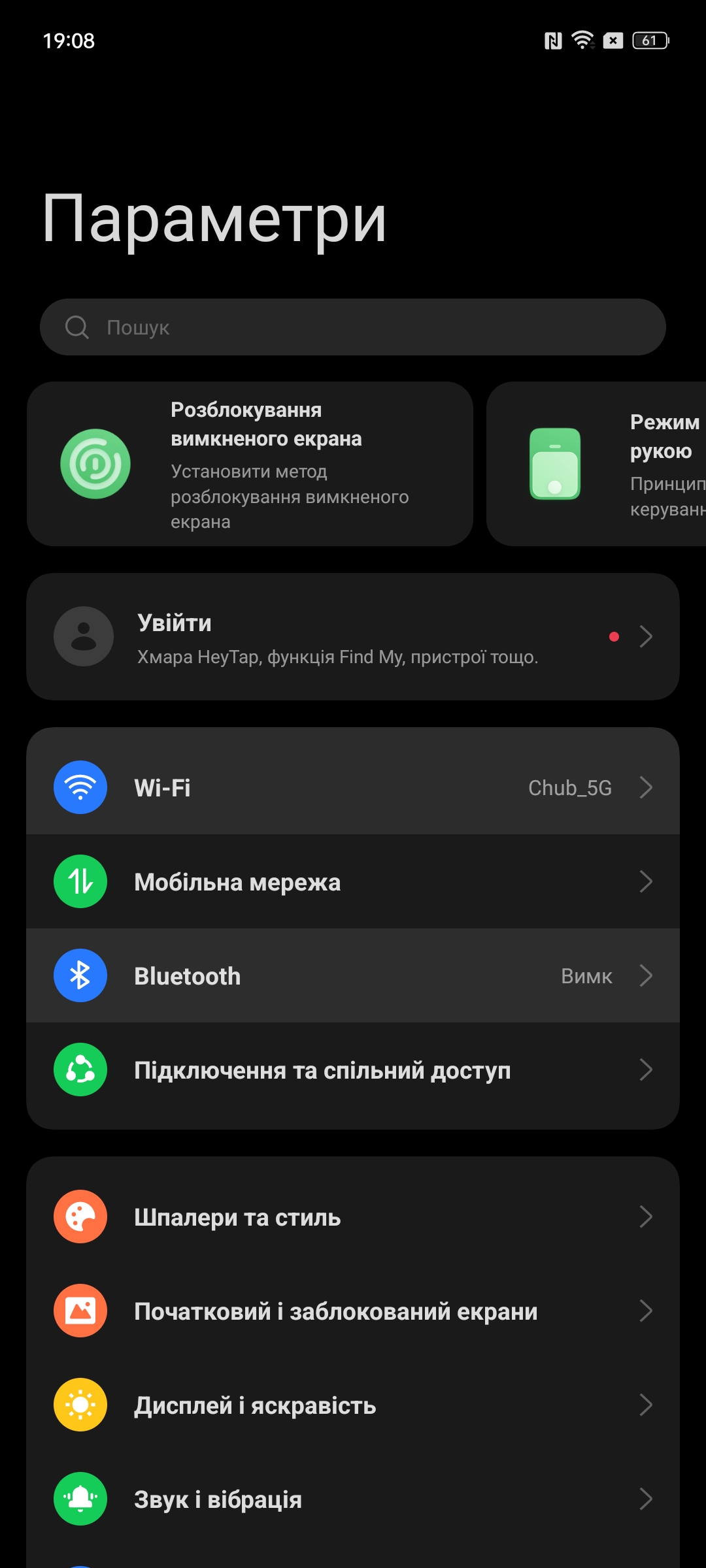

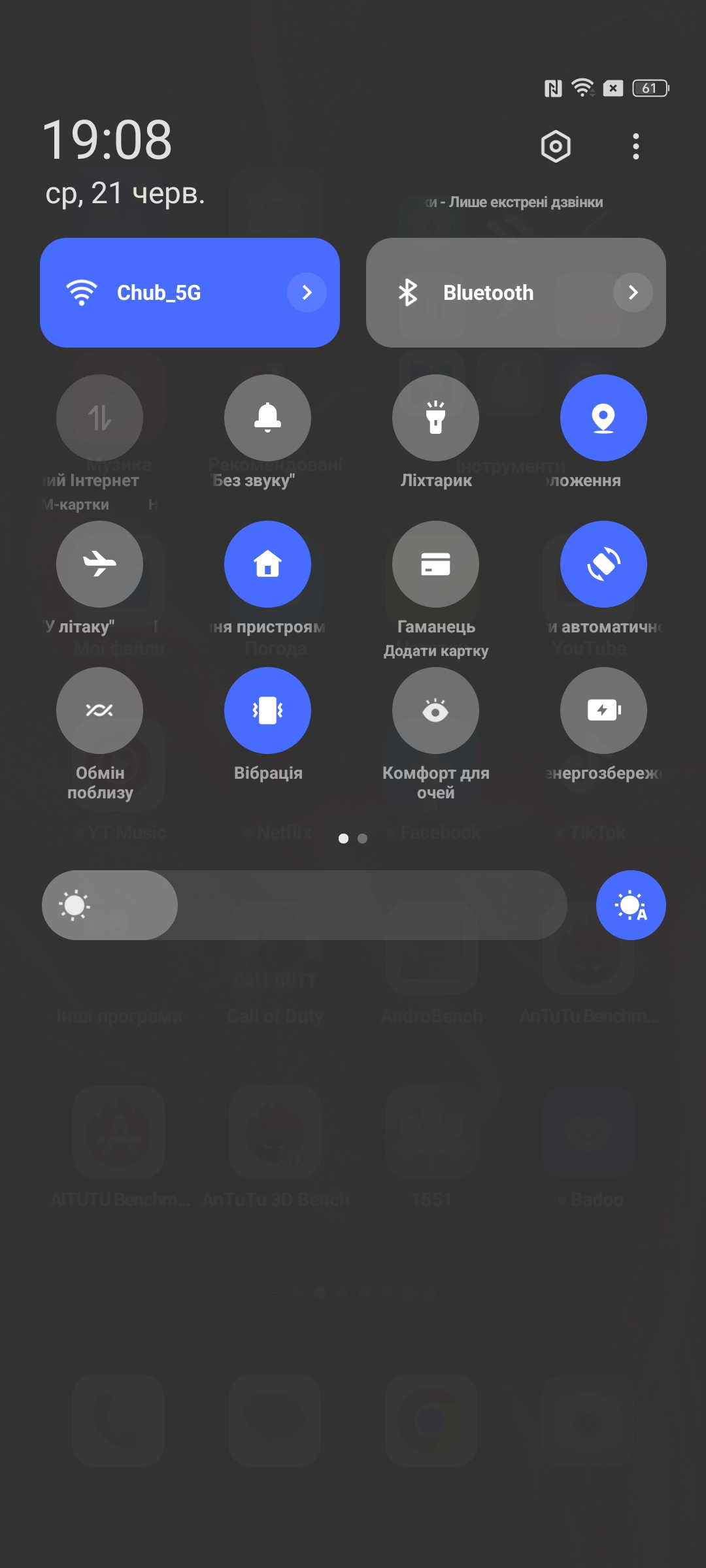












The application manager looks like a familiar horizontal carousel. In addition to the split-screen mode, it is possible to open applications in a window that can be resized and positioned.
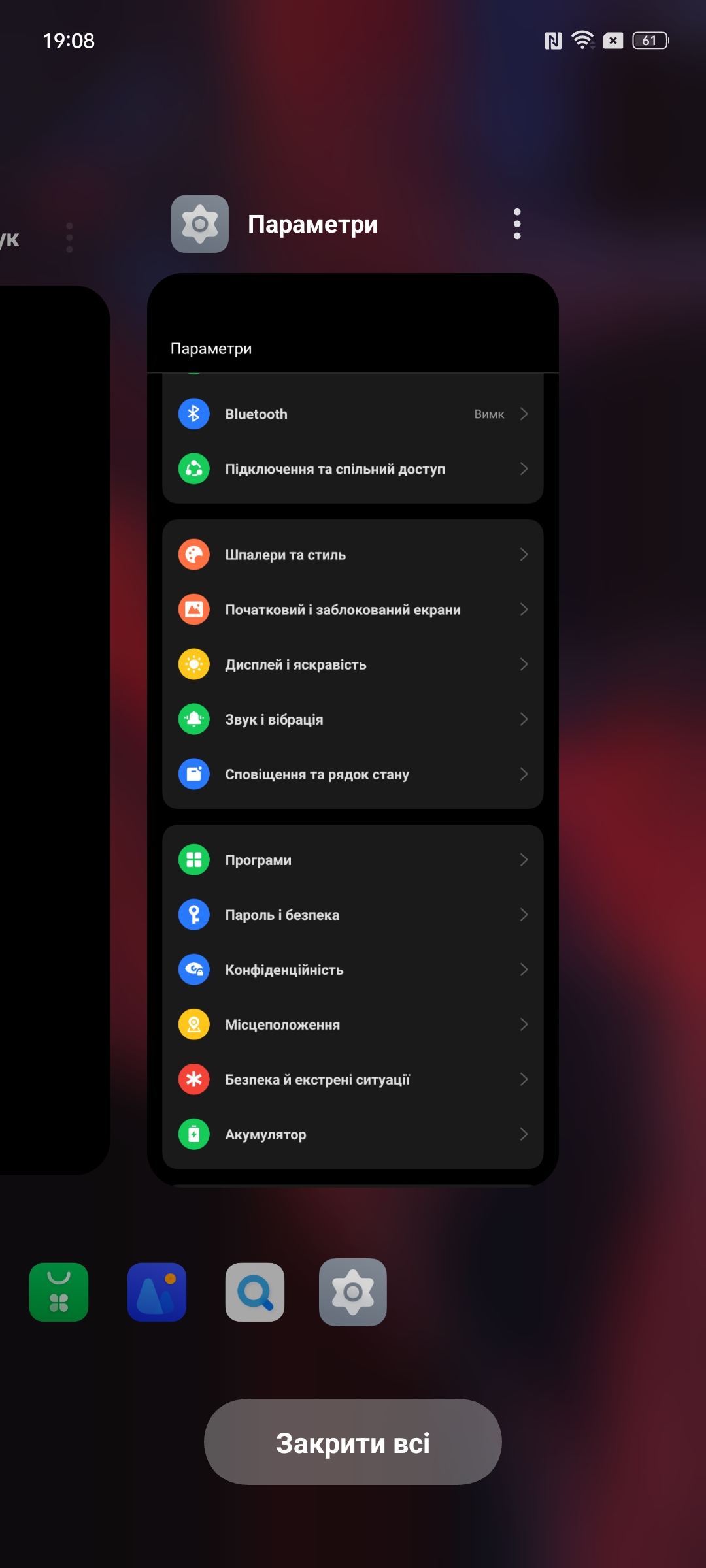
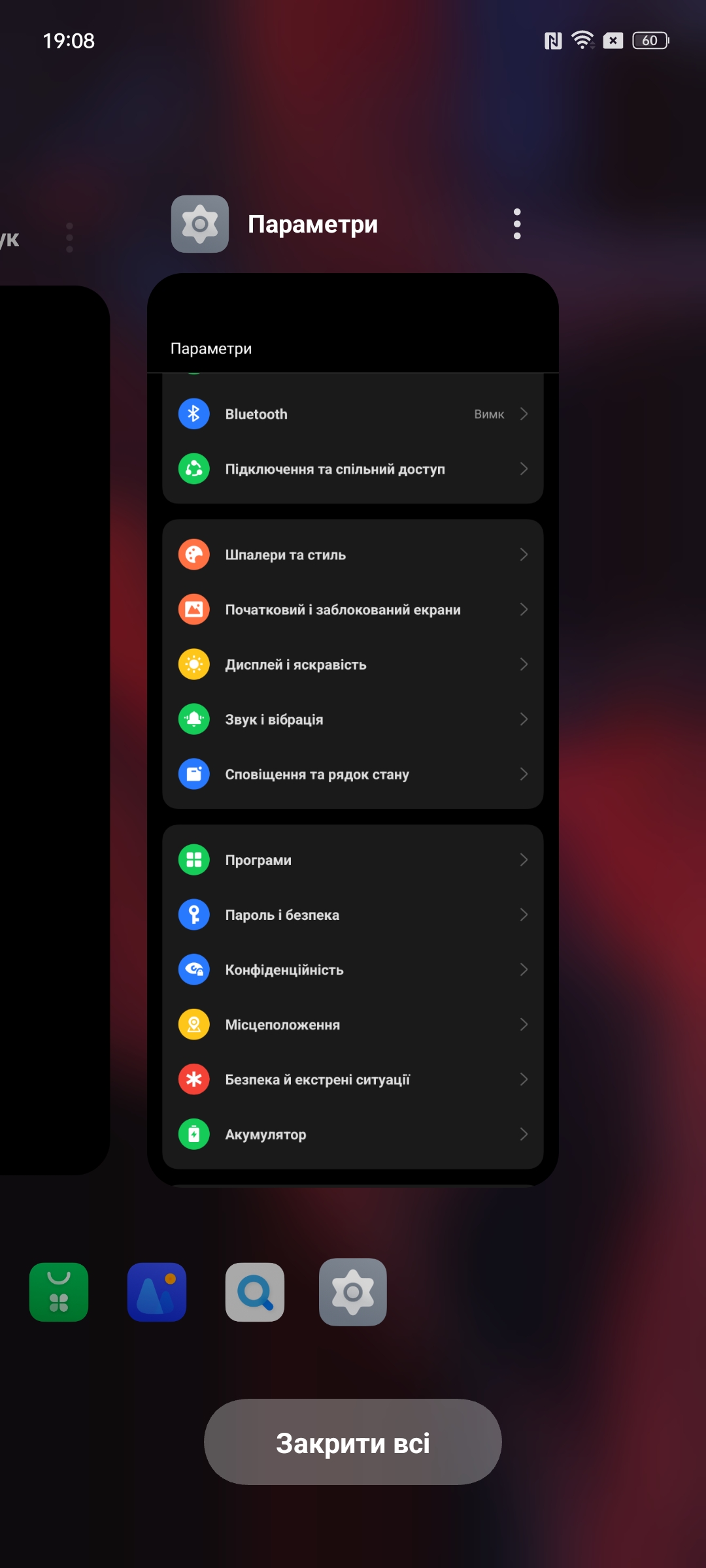
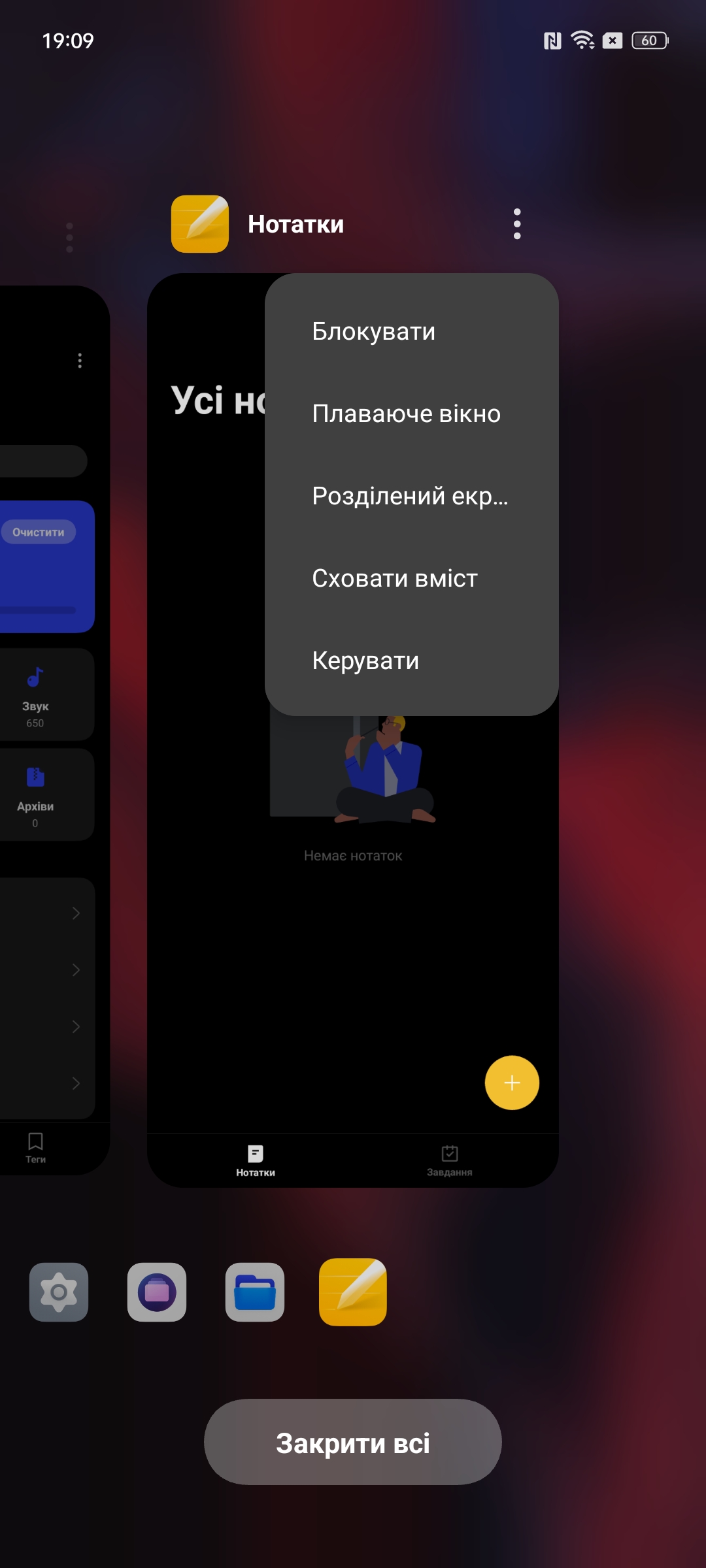
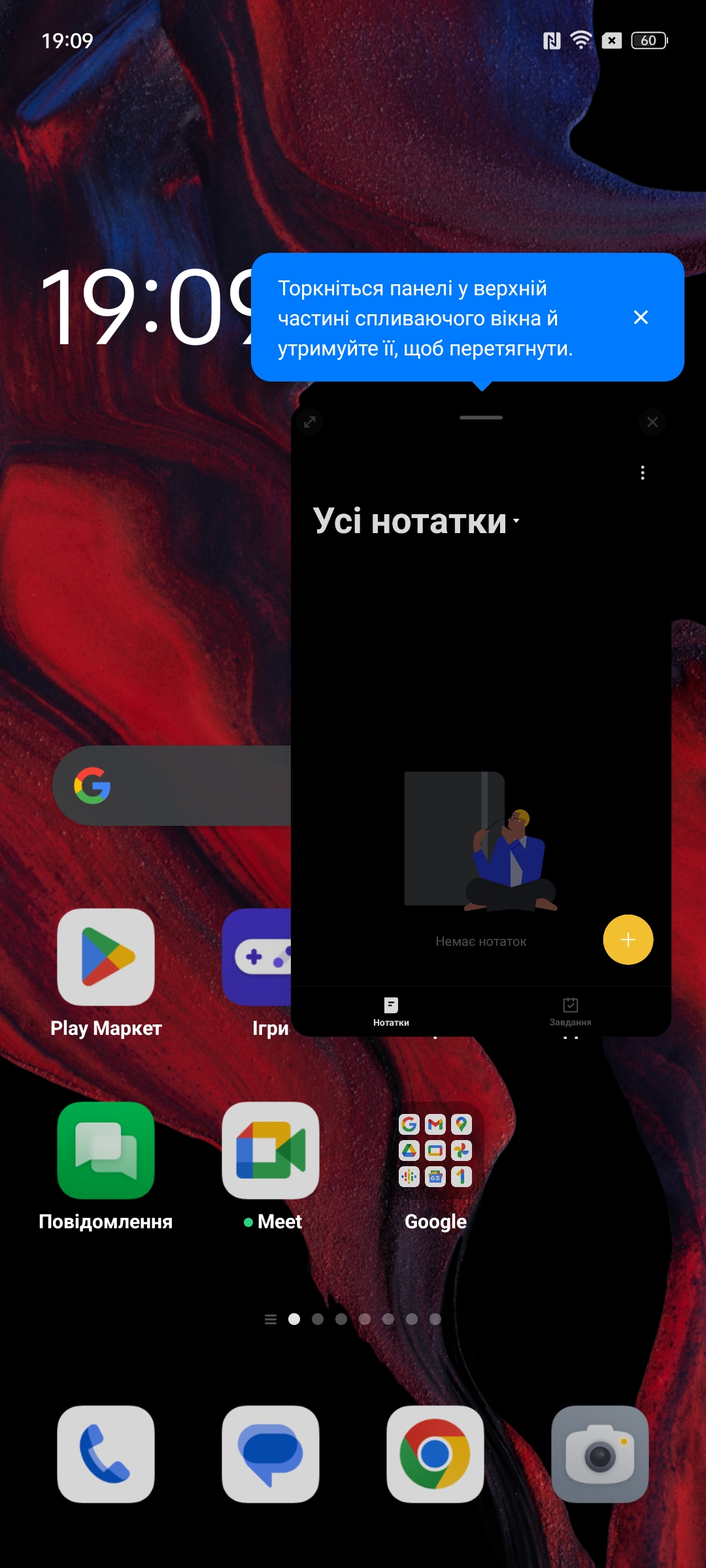
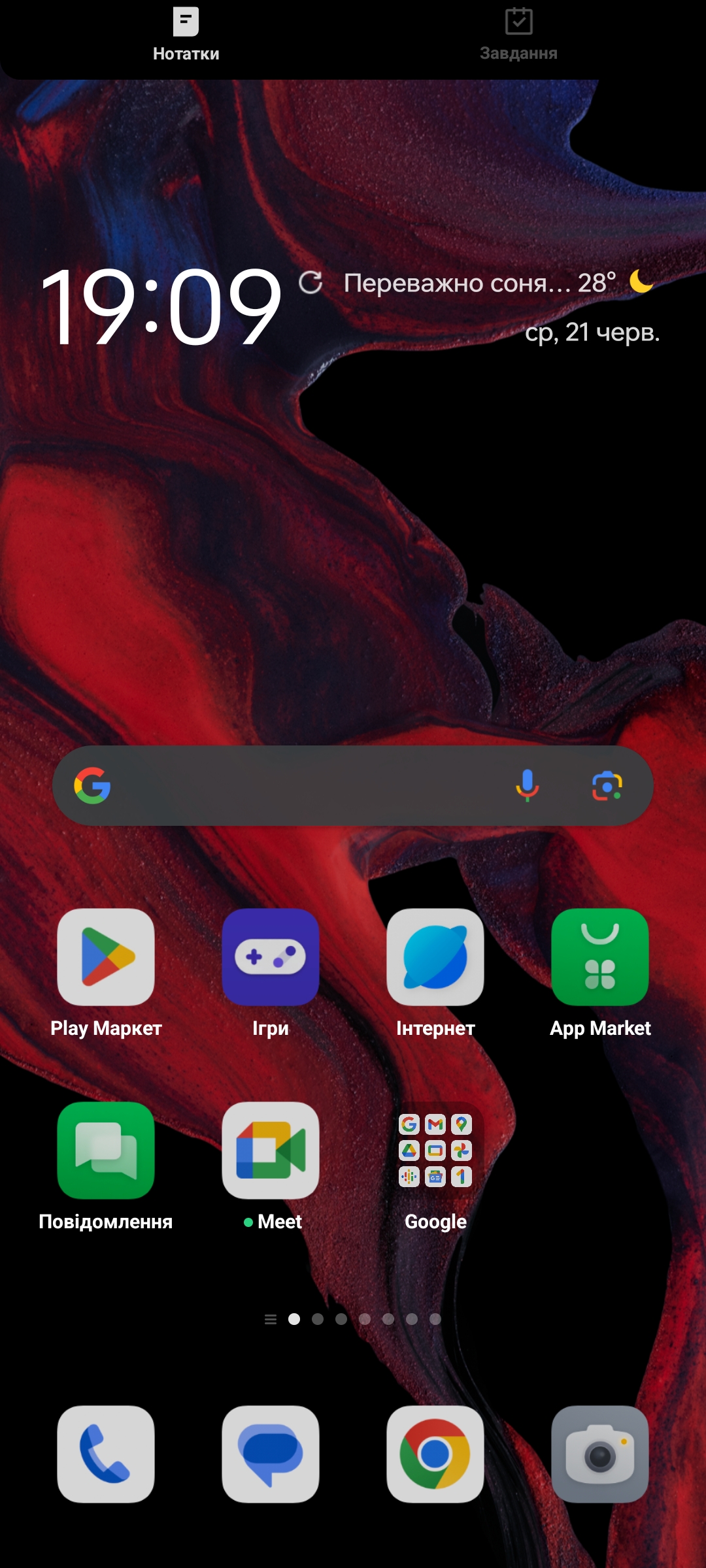









There is also a so-called Smart Sidebar, which contains the most frequently used applications and can be configured manually.

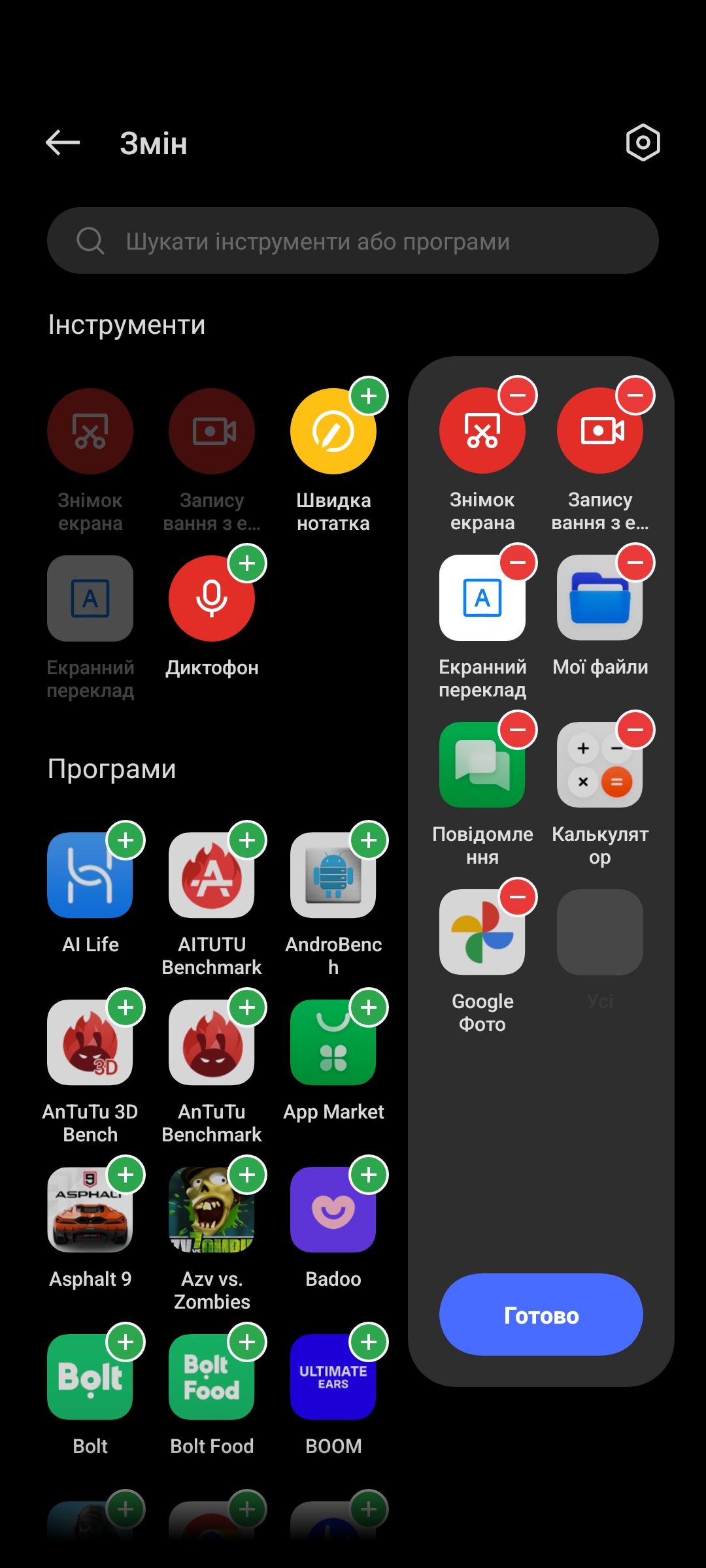
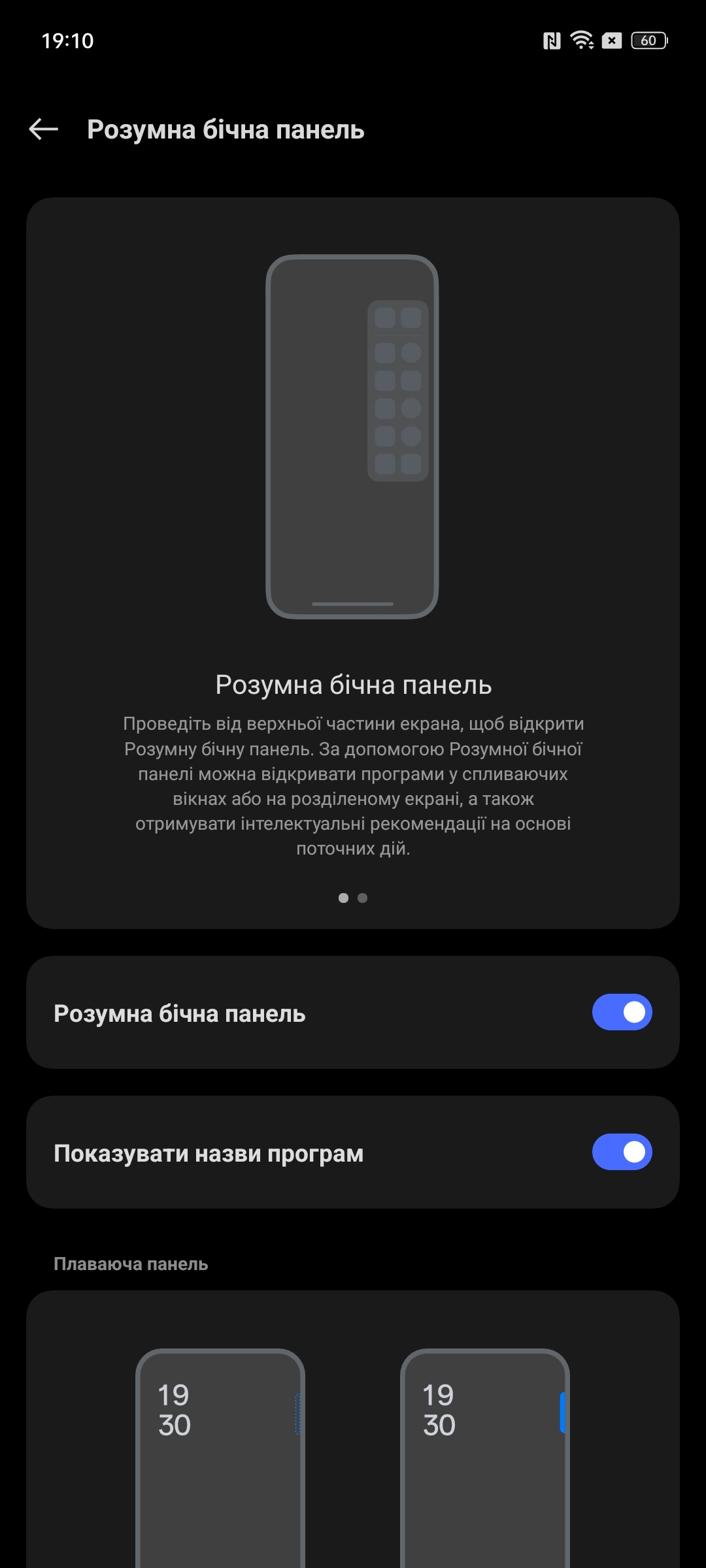



There are not many additional applications. In addition to the standard calculator, file manager, smartphone manager, voice recorder and notes, there is a not very interesting alternative app store, music party (joining other smartphones to play one song), Relax (playing soothing music) and Zen Space (turning off distractions on the smartphone).

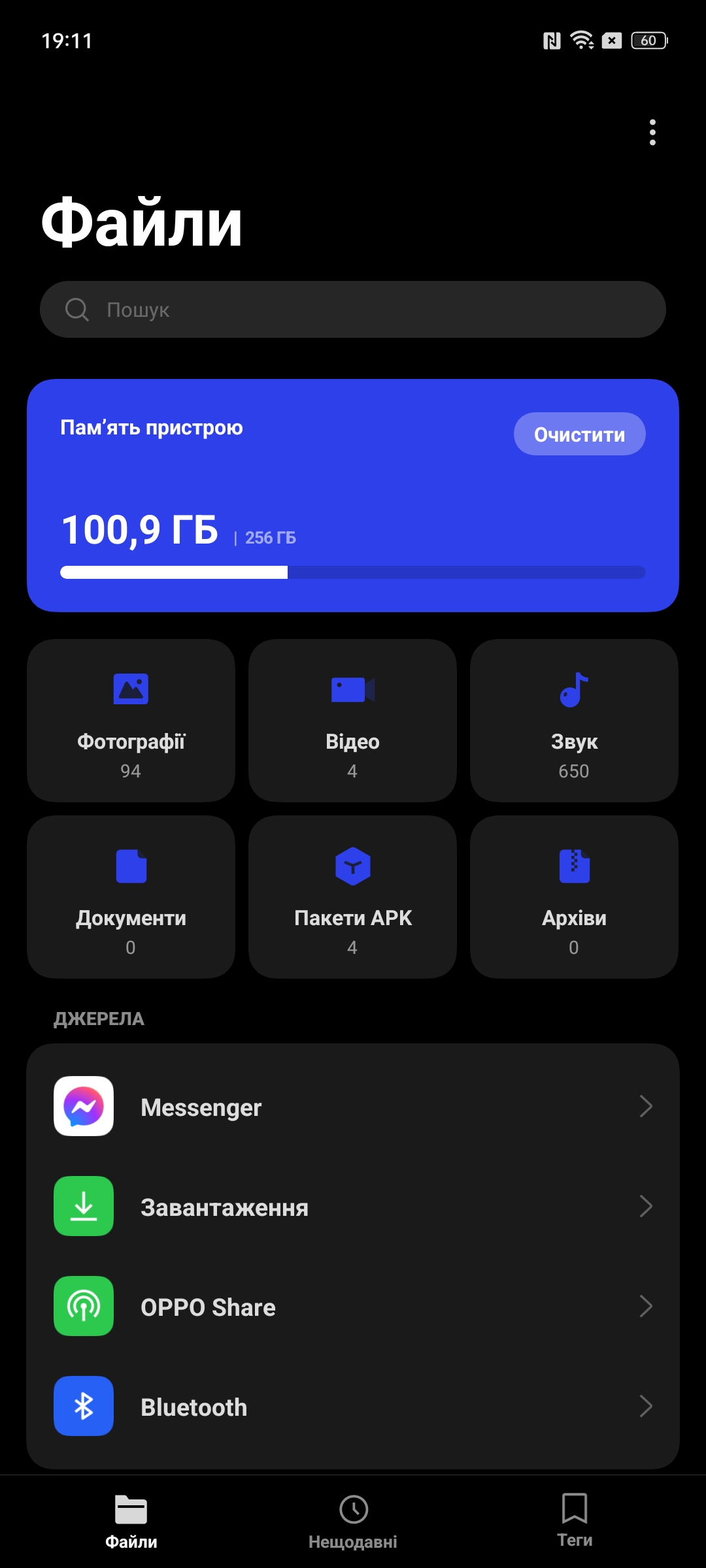


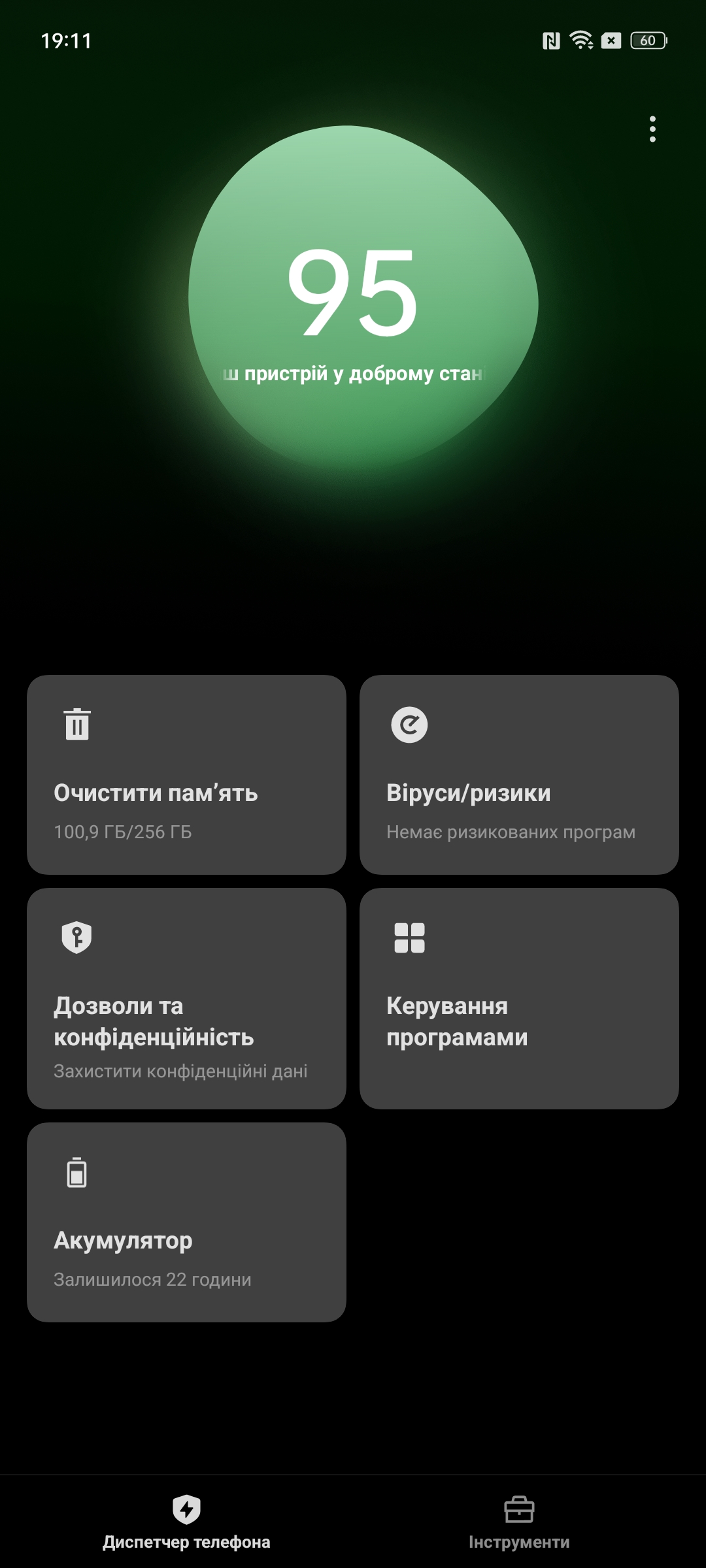
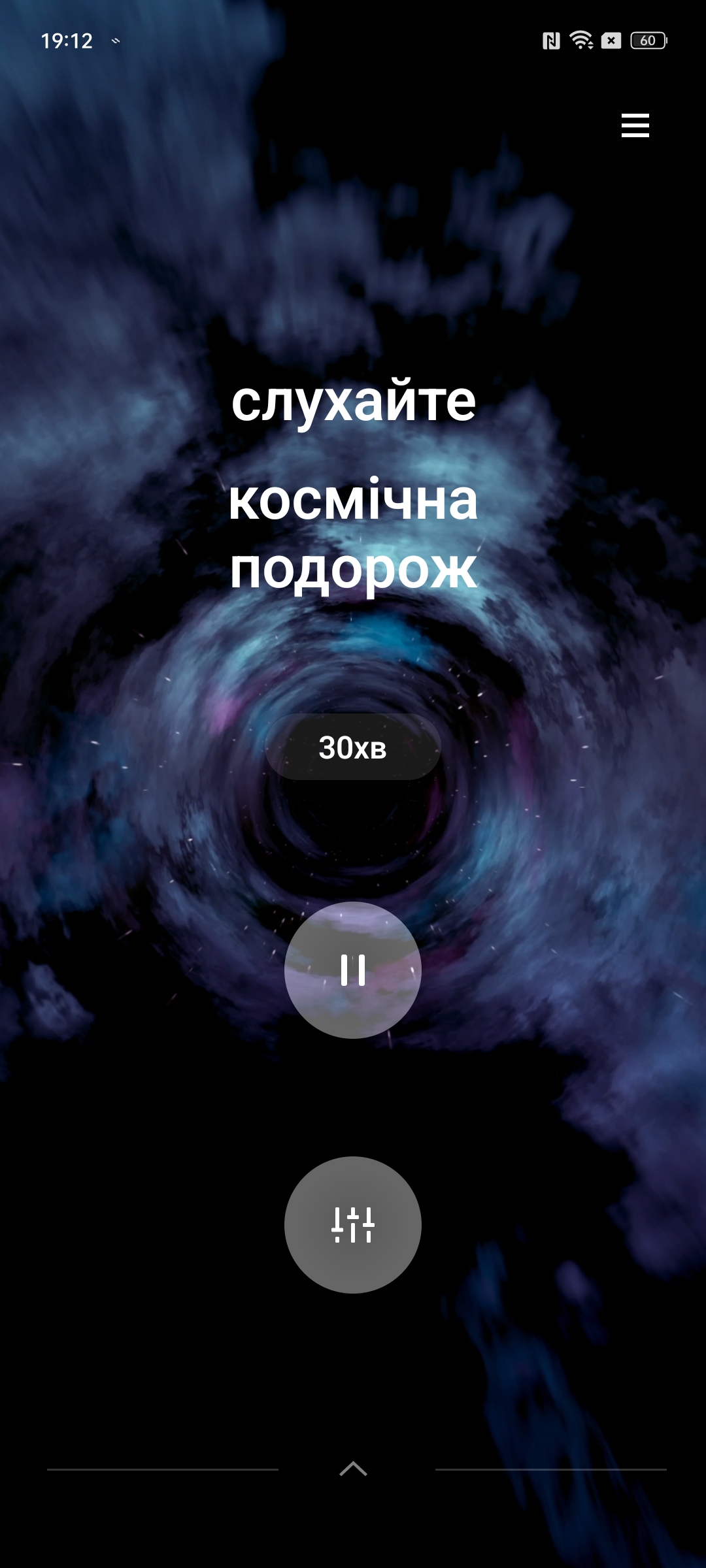

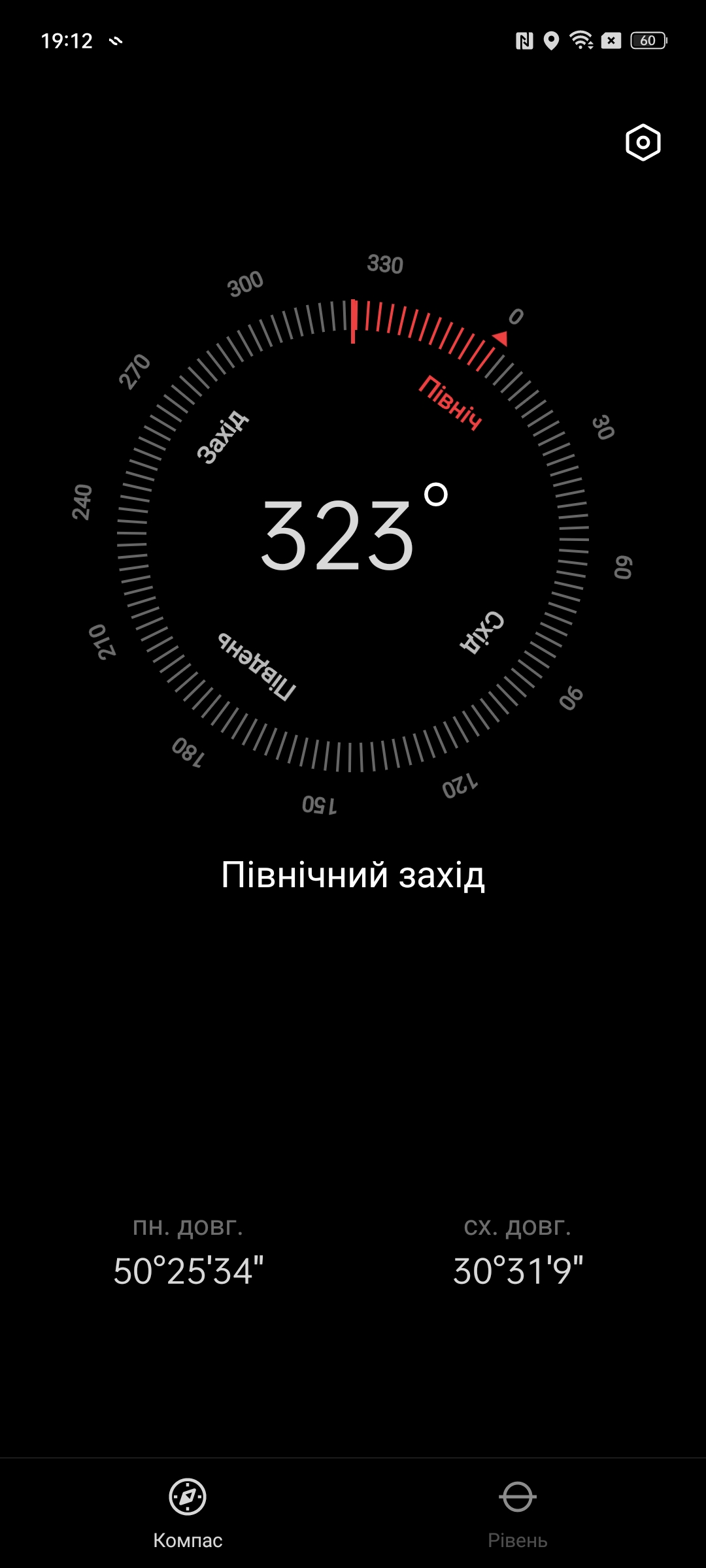



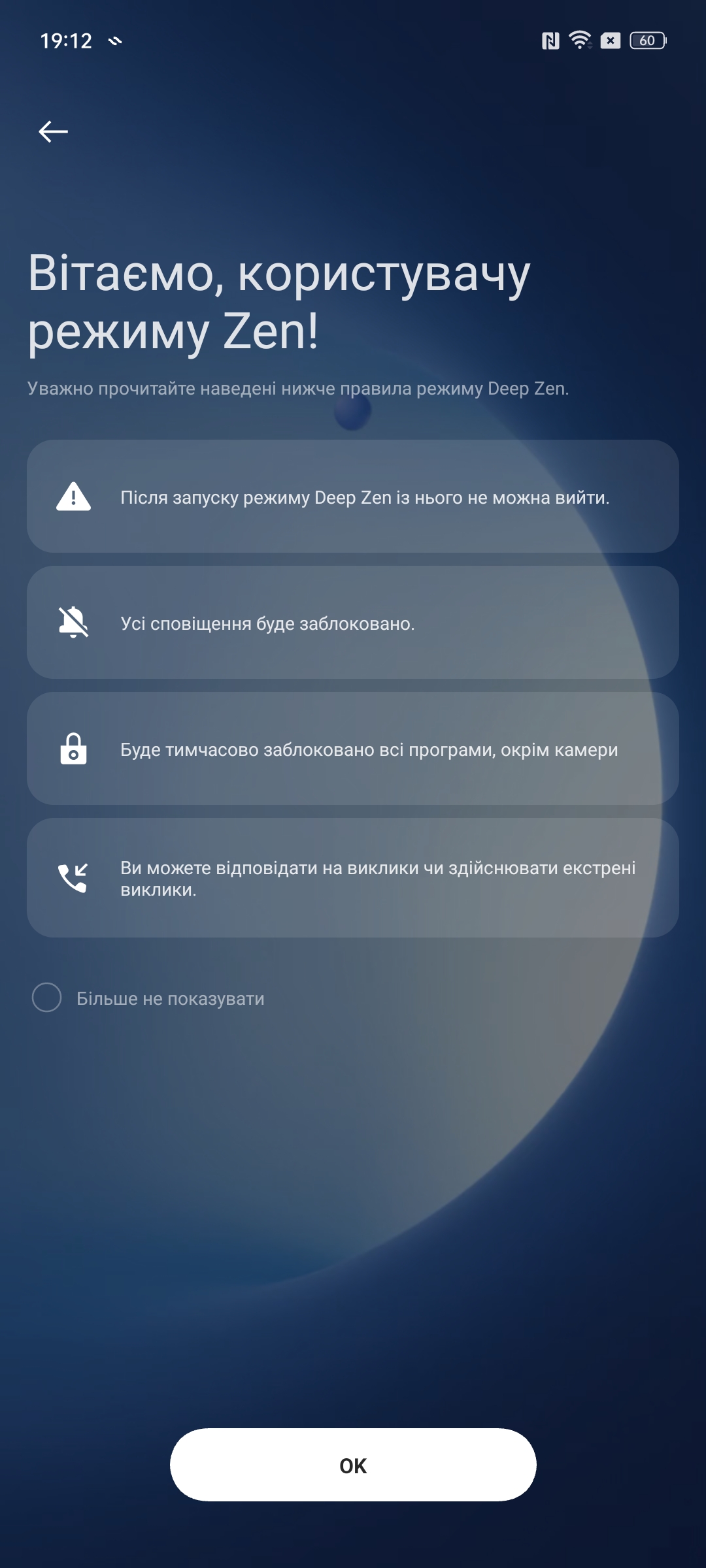












How good are the cameras?
OPPO A98 has a triple rear camera. The main one has a resolution of 64 MP, f/1.7 aperture, 26 mm (EFV) with PDAF phase detection autofocus, without optical stabilisation. The other two cameras are not very interesting. There's a 2MP, f/3.3, 34mm microscope camera with 20x and 40x modes. In general, you can play with it, but there is no autofocus, so it's hard to take a clear photo. And the last is a 2 MP f/2.4 depth sensor. The camera can only shoot video in FullHD at 30 frames per second. The front camera is 32 MP, f/2.4, 22 mm.
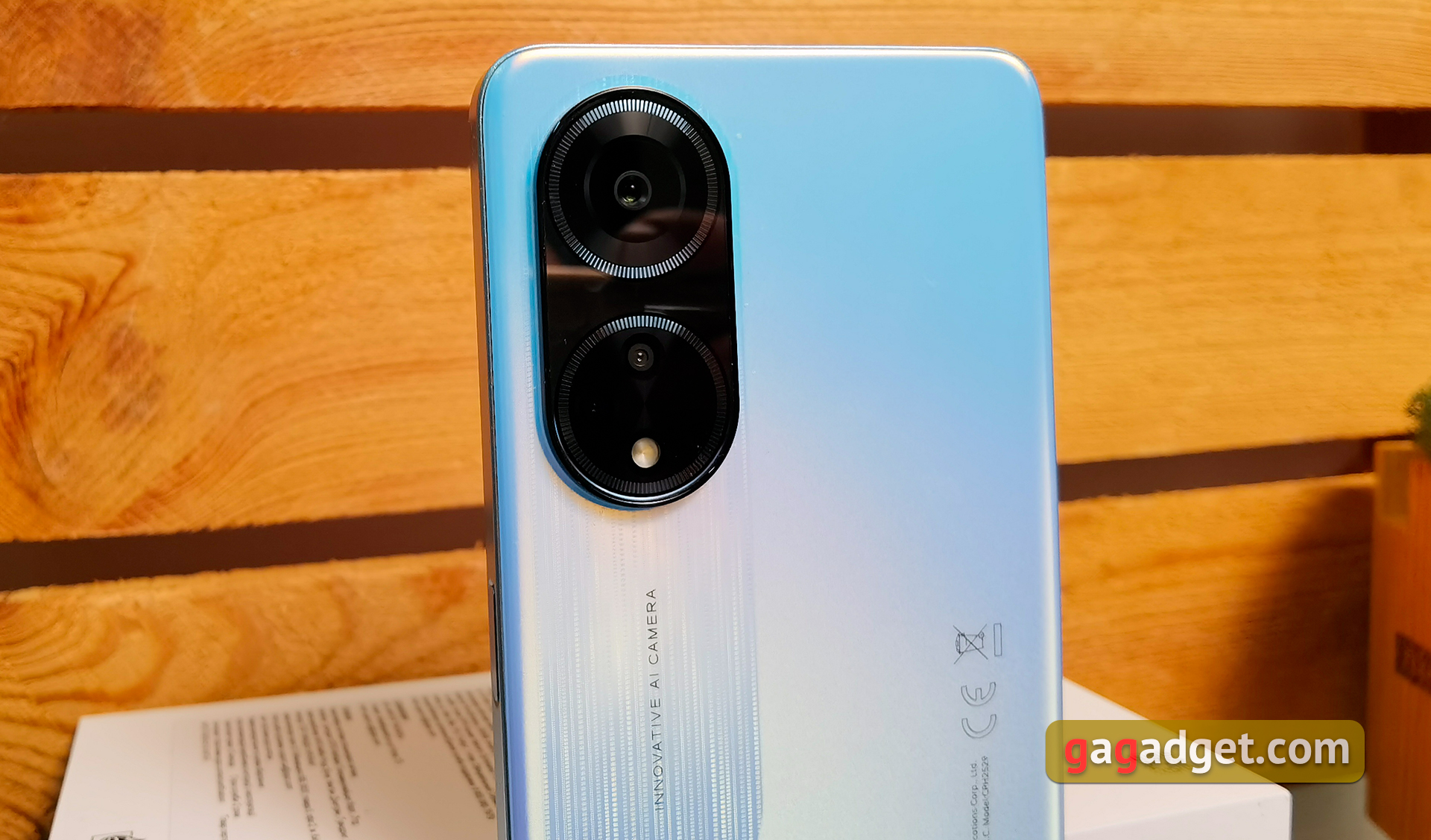
The camera application is quite familiar. A carousel of the main available shooting modes and a separate menu of additional ones, including microscope and manual mode. All the most important settings, including zoom, Ai-flash, frame enhancement, and aspect ratio, are on the main screen. HDR is in the pop-up menu.

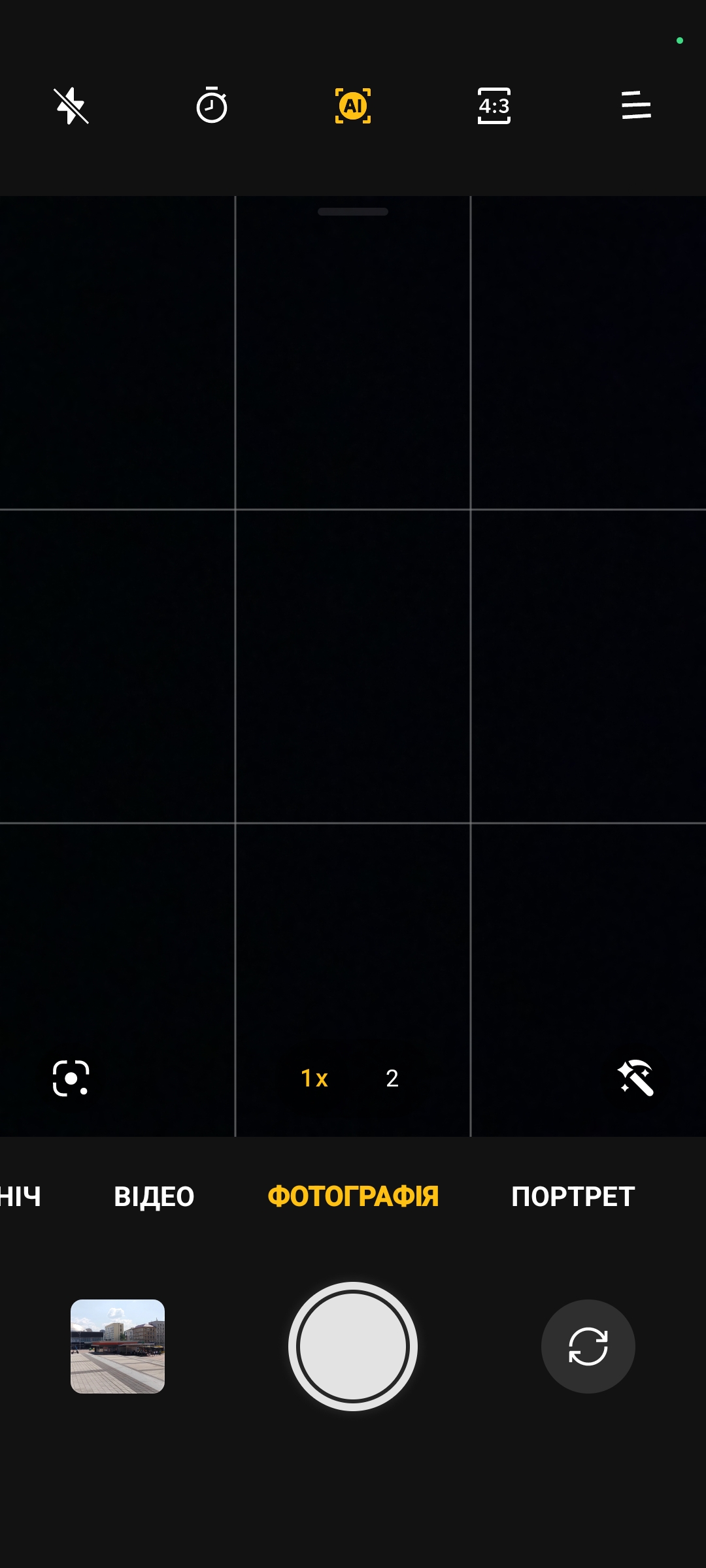

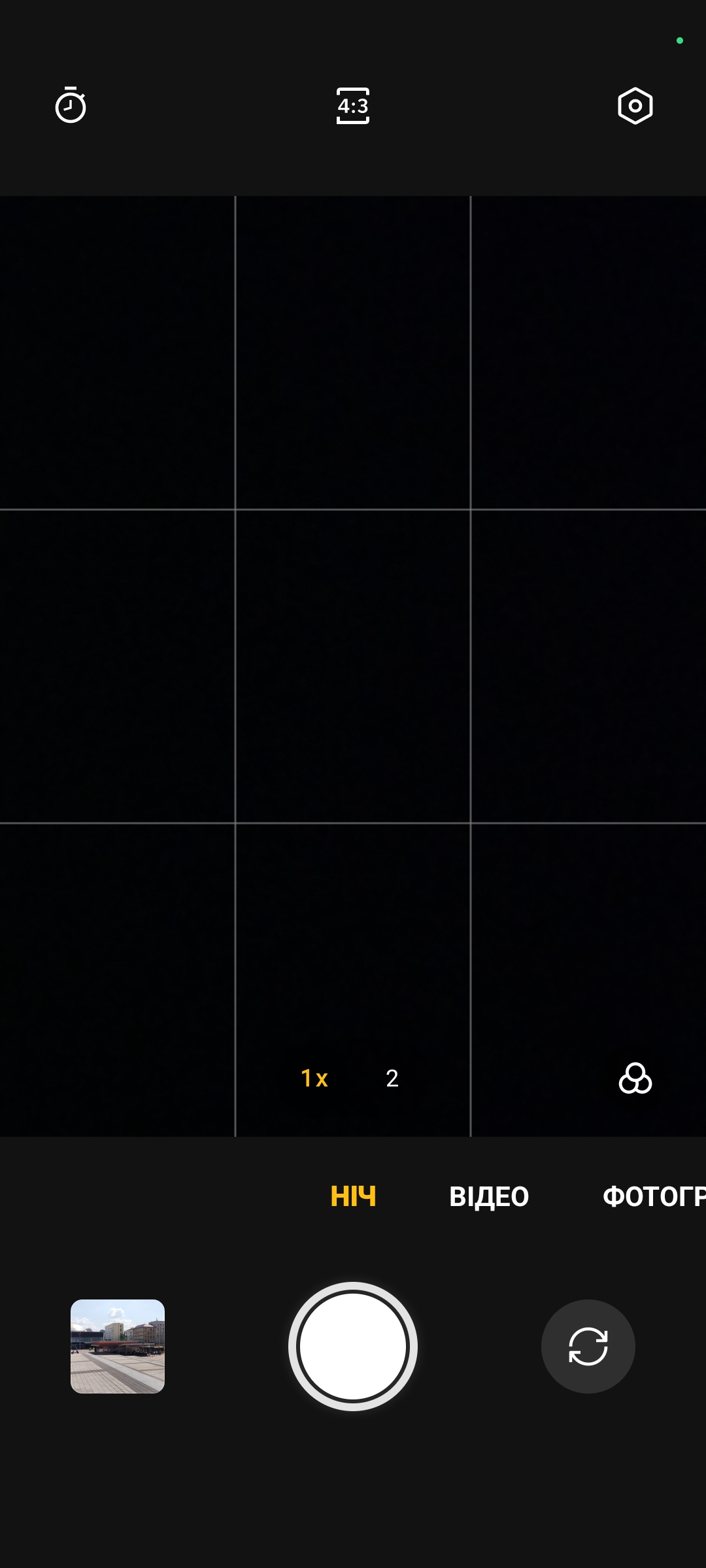


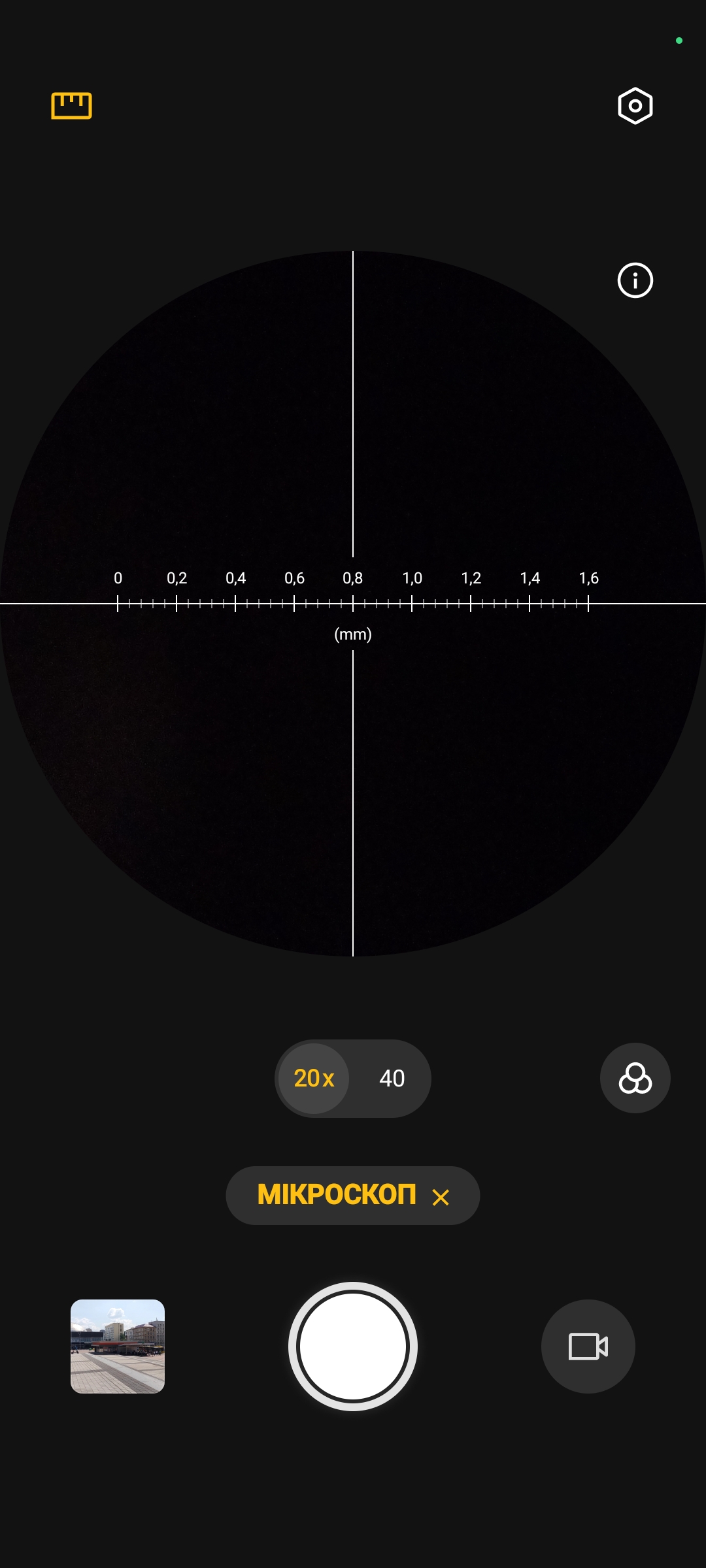







The main camera of the OPPO A98 takes good pictures in adequate light. With a high level of detail, fairly natural saturated colours and a wide dynamic range. The night mode does a good job of extracting the image in light, but the detail drops significantly and the pictures are rather soapy.







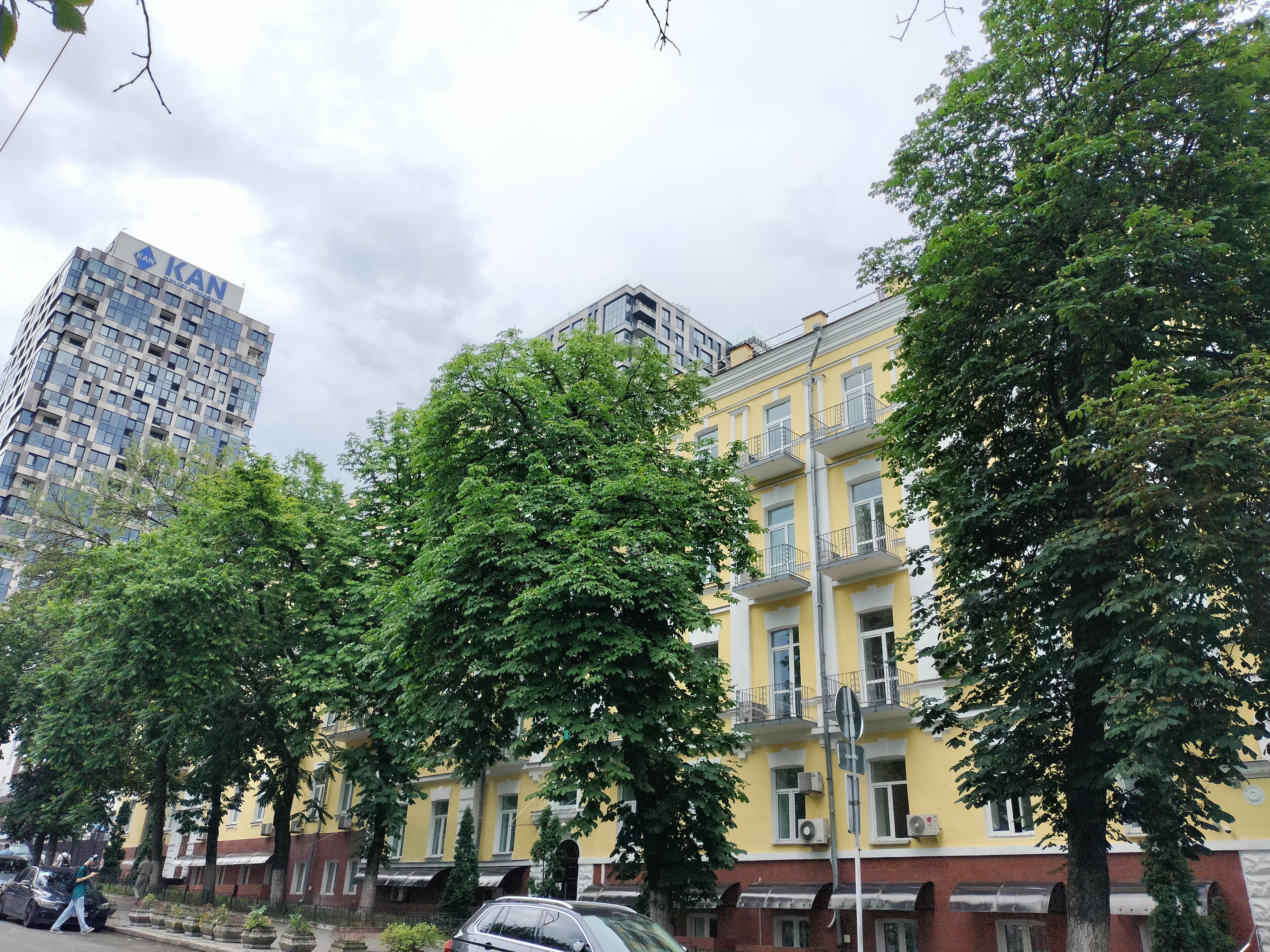
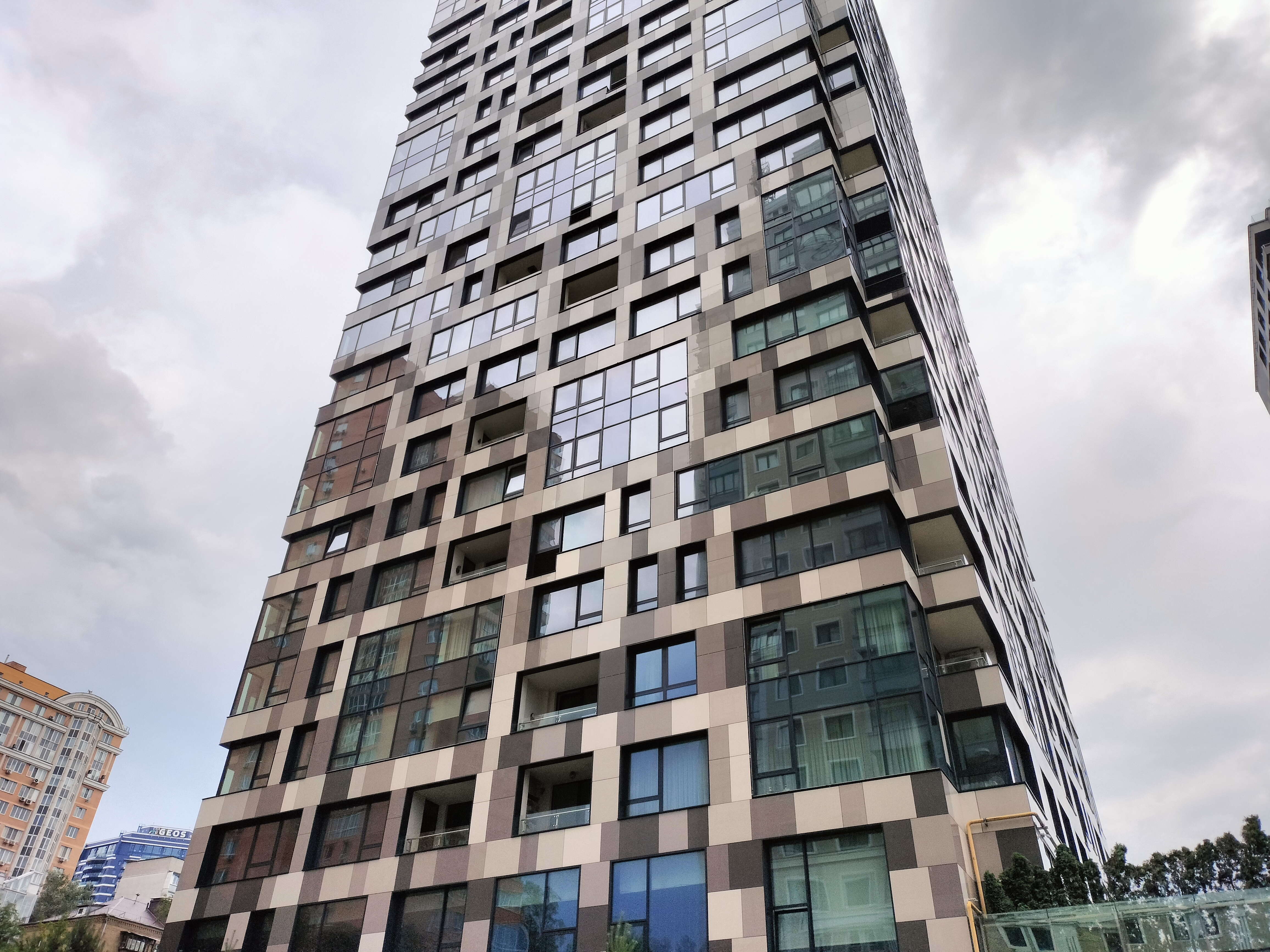






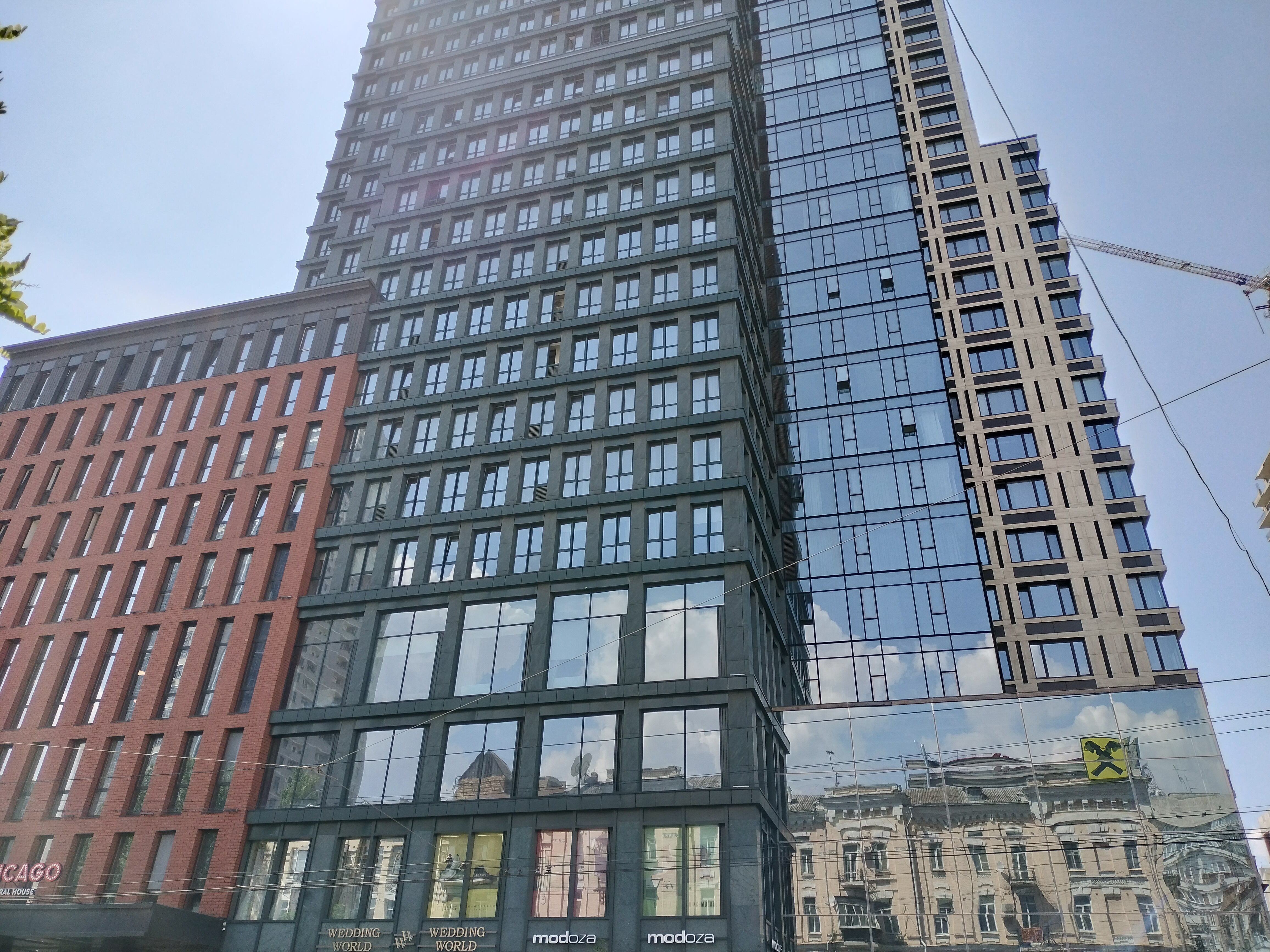


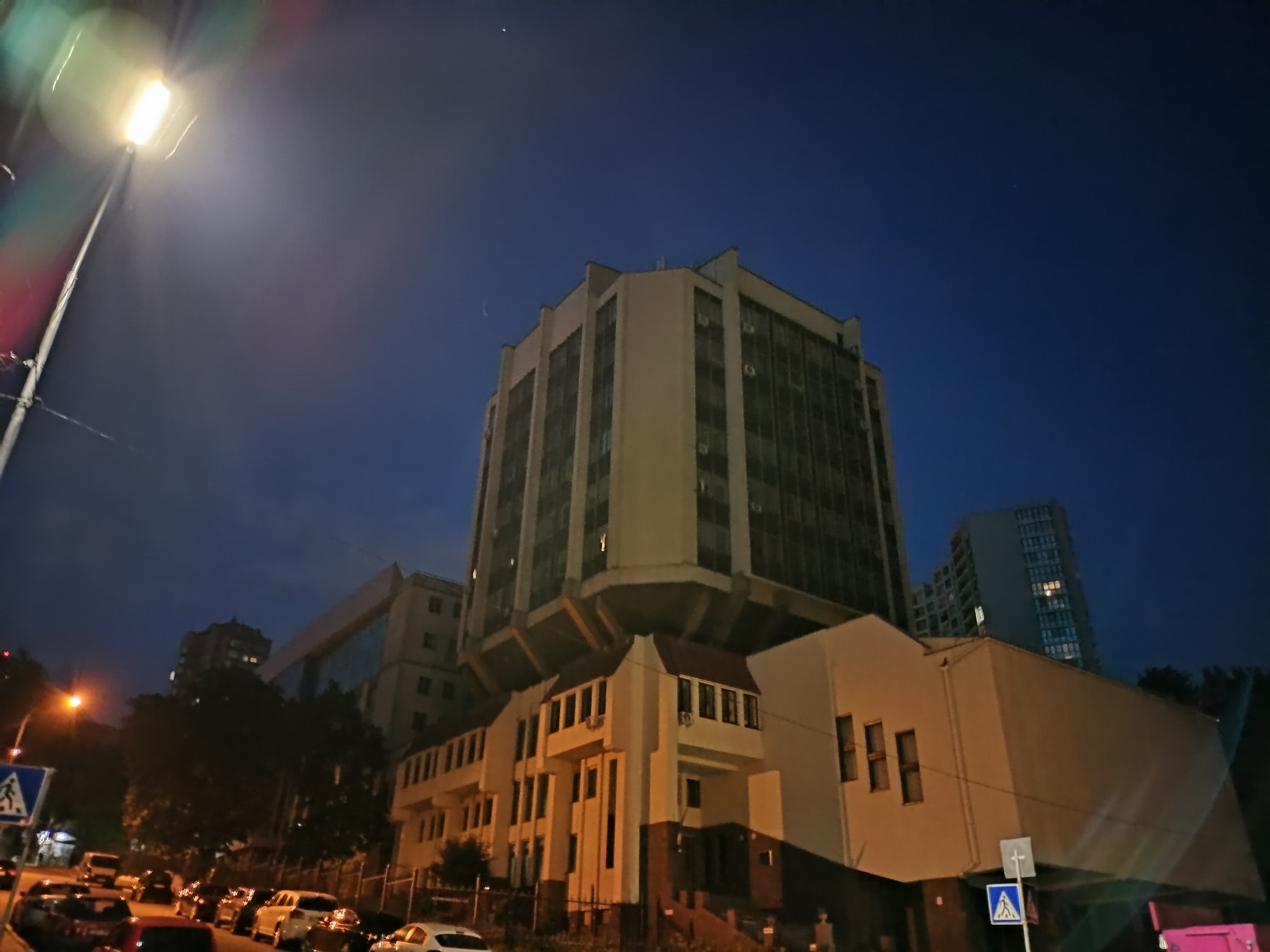



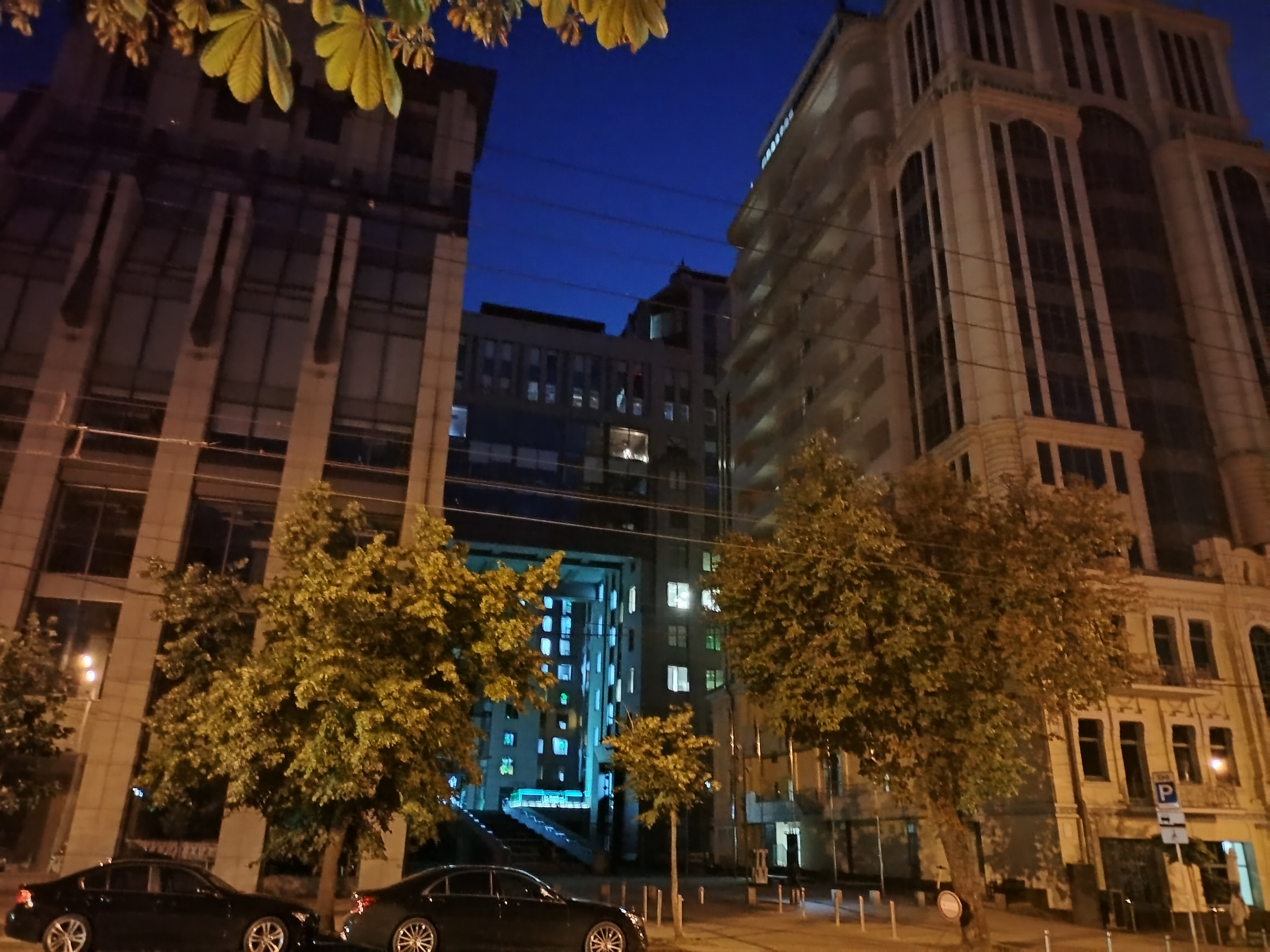

























The zoom in the smartphone is exclusively digital (crop from the main camera):







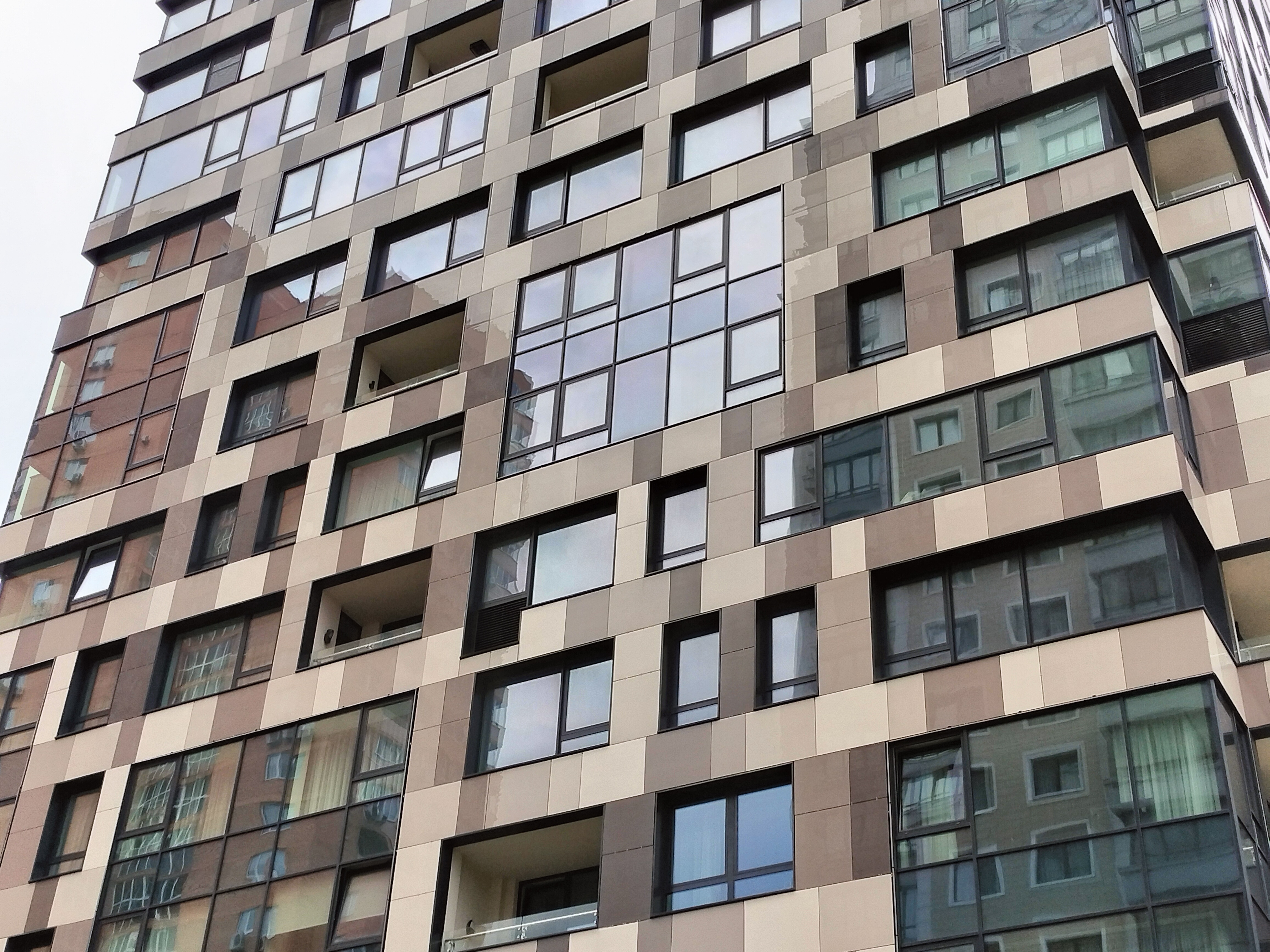






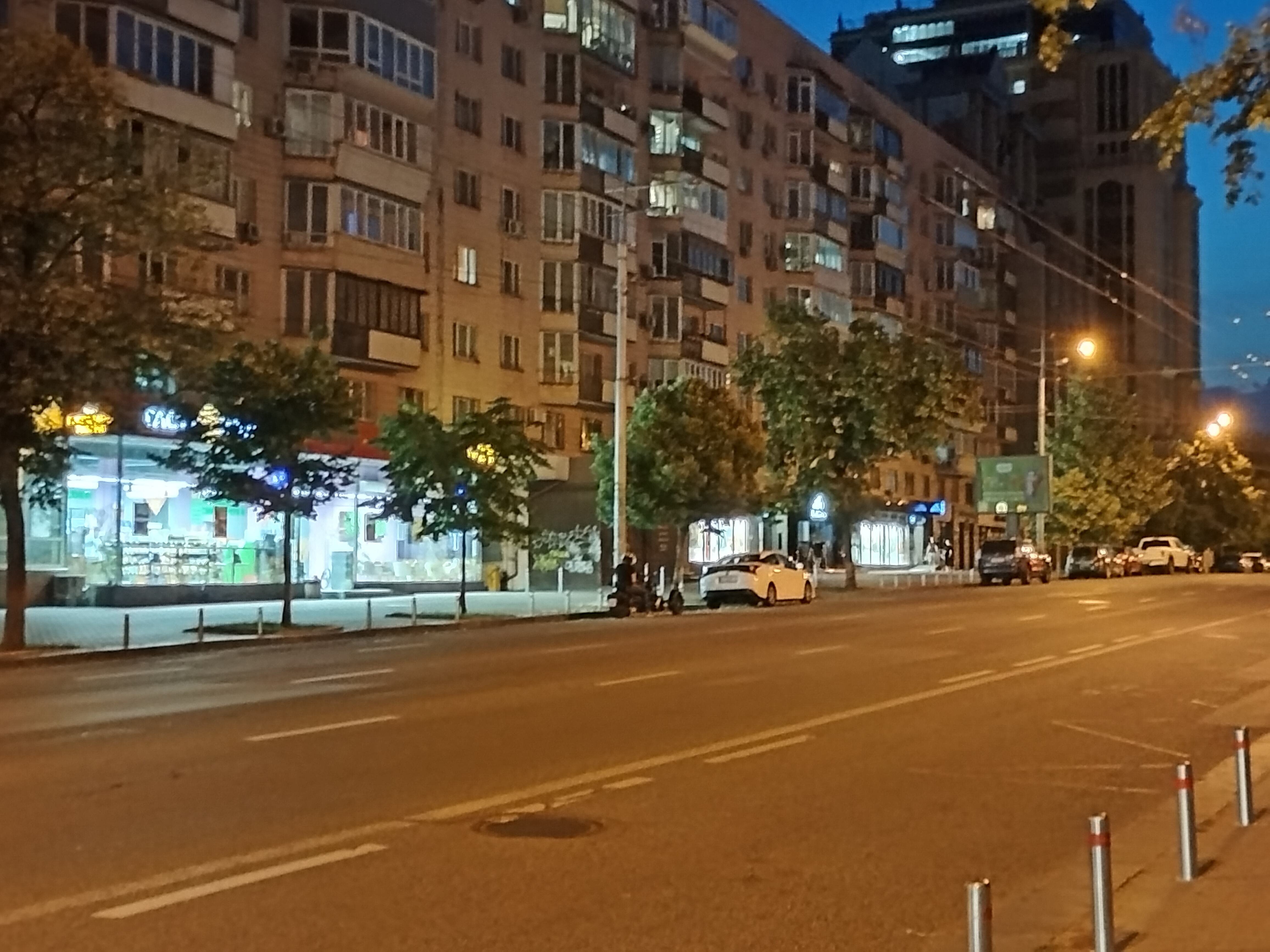



















The microscope camera is an interesting toy, but you will most likely forget about it in a few days, because it is difficult to come up with any useful practical application for it. It doesn't have autofocus, so you'll have to use an additional fixation to take clear pictures. Below are a gaming surface, a metal laptop lid, a table, and a book cover with 20x and 40x zoom:
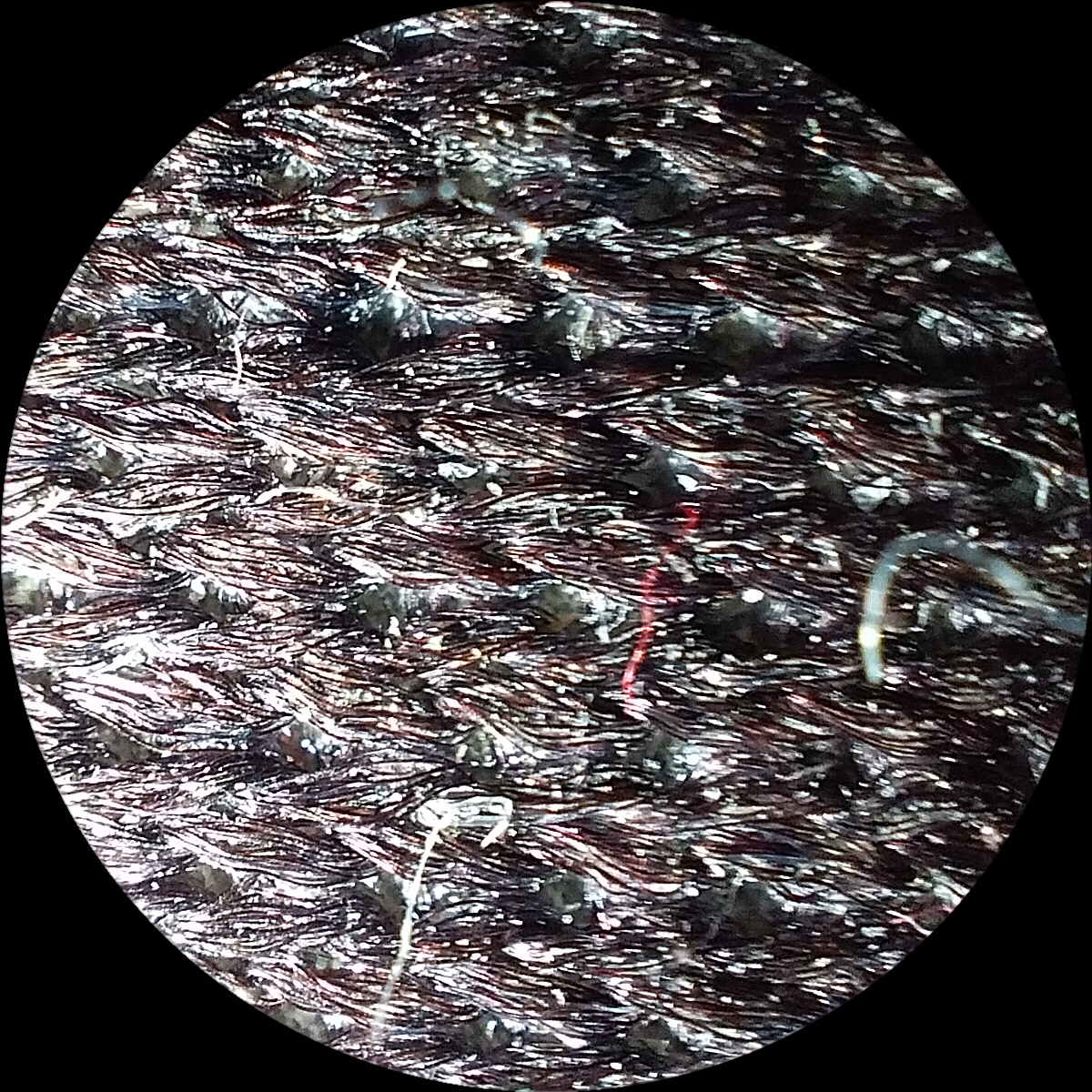

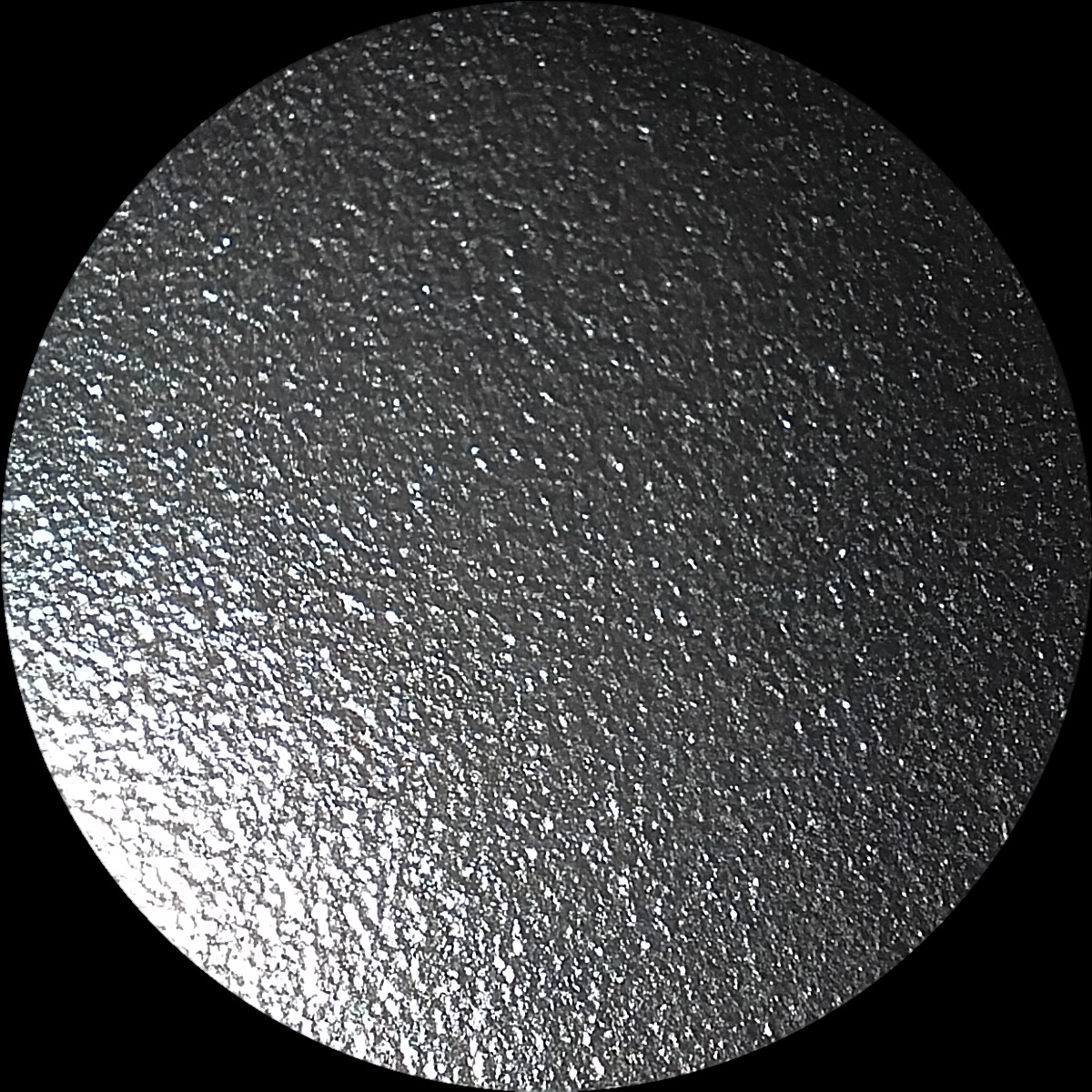
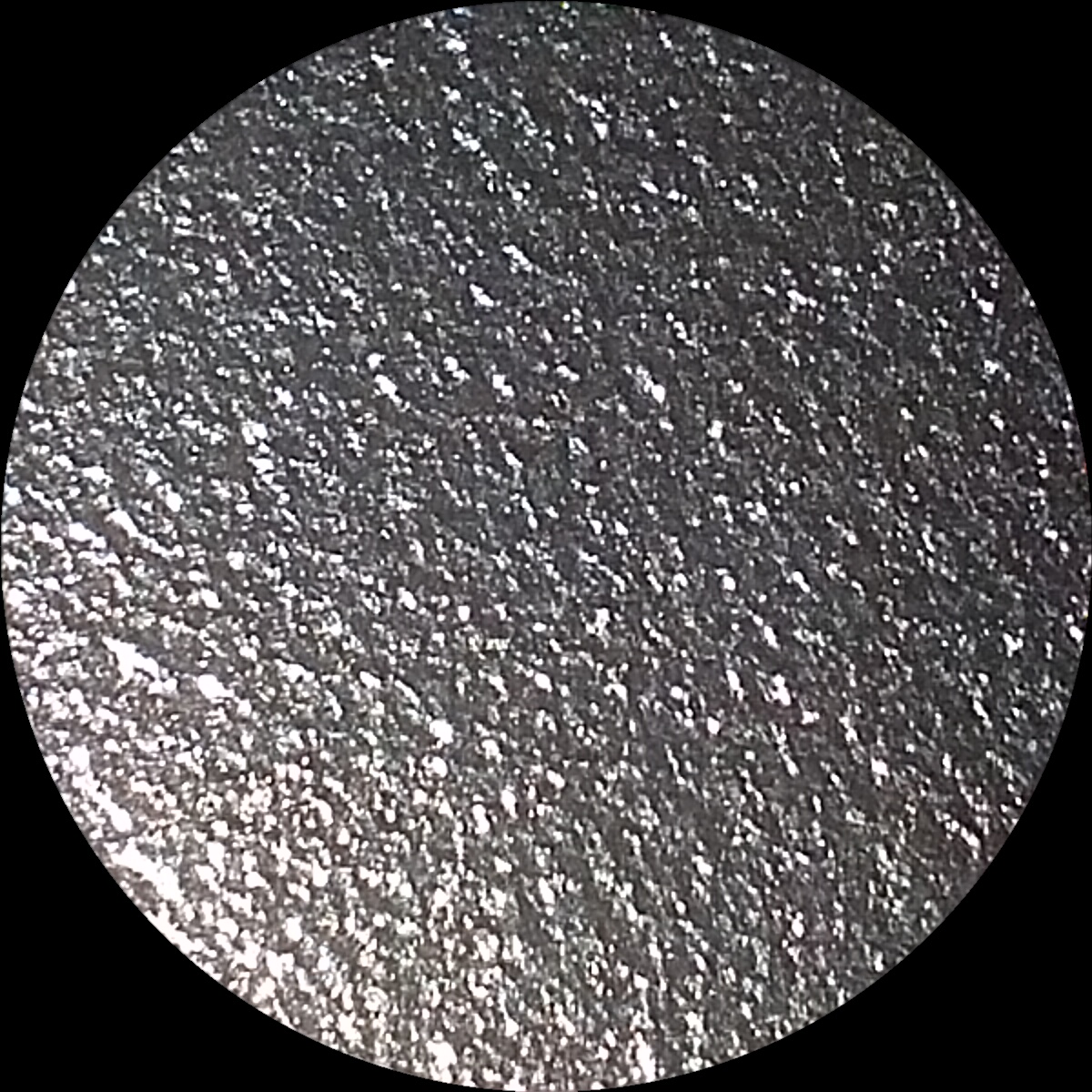
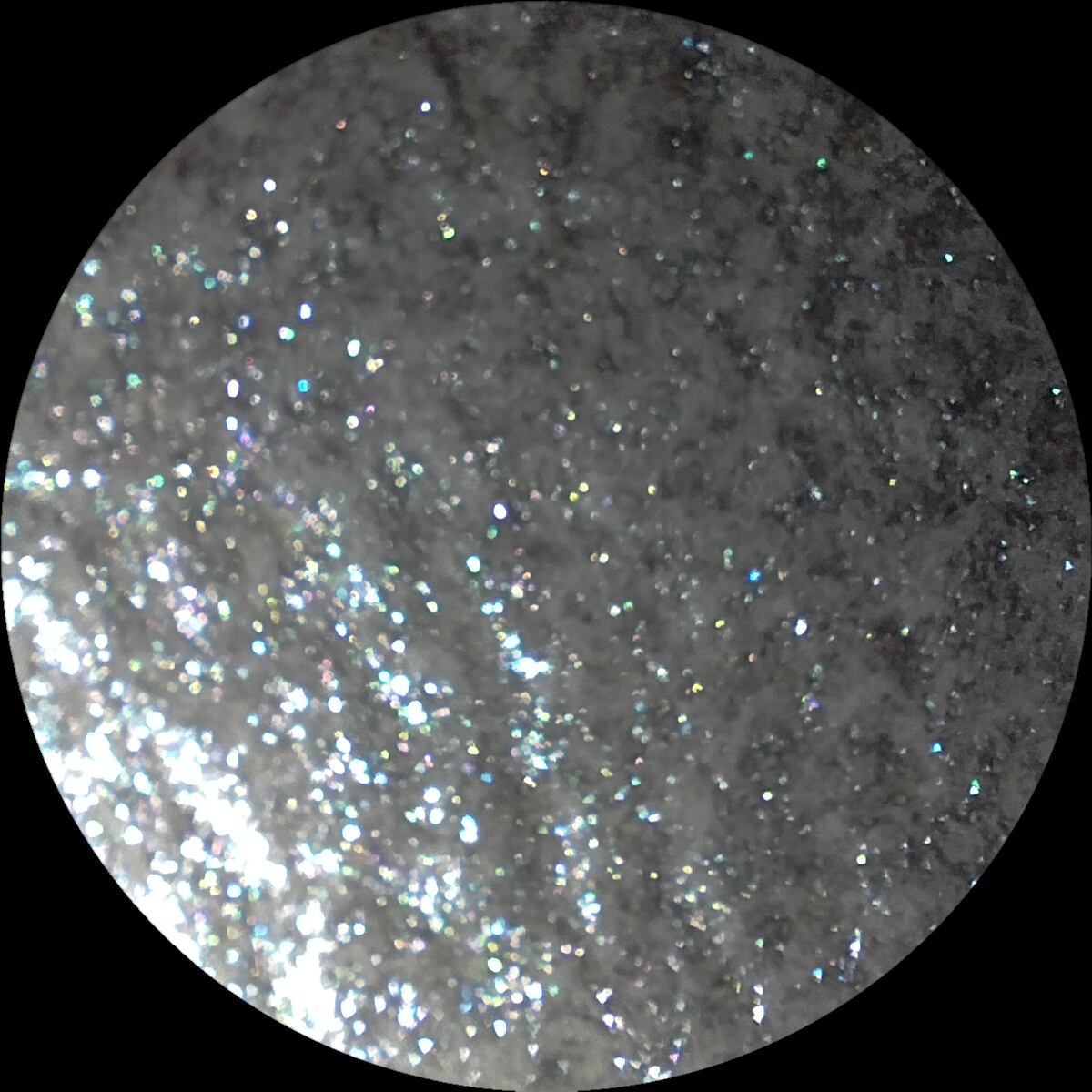

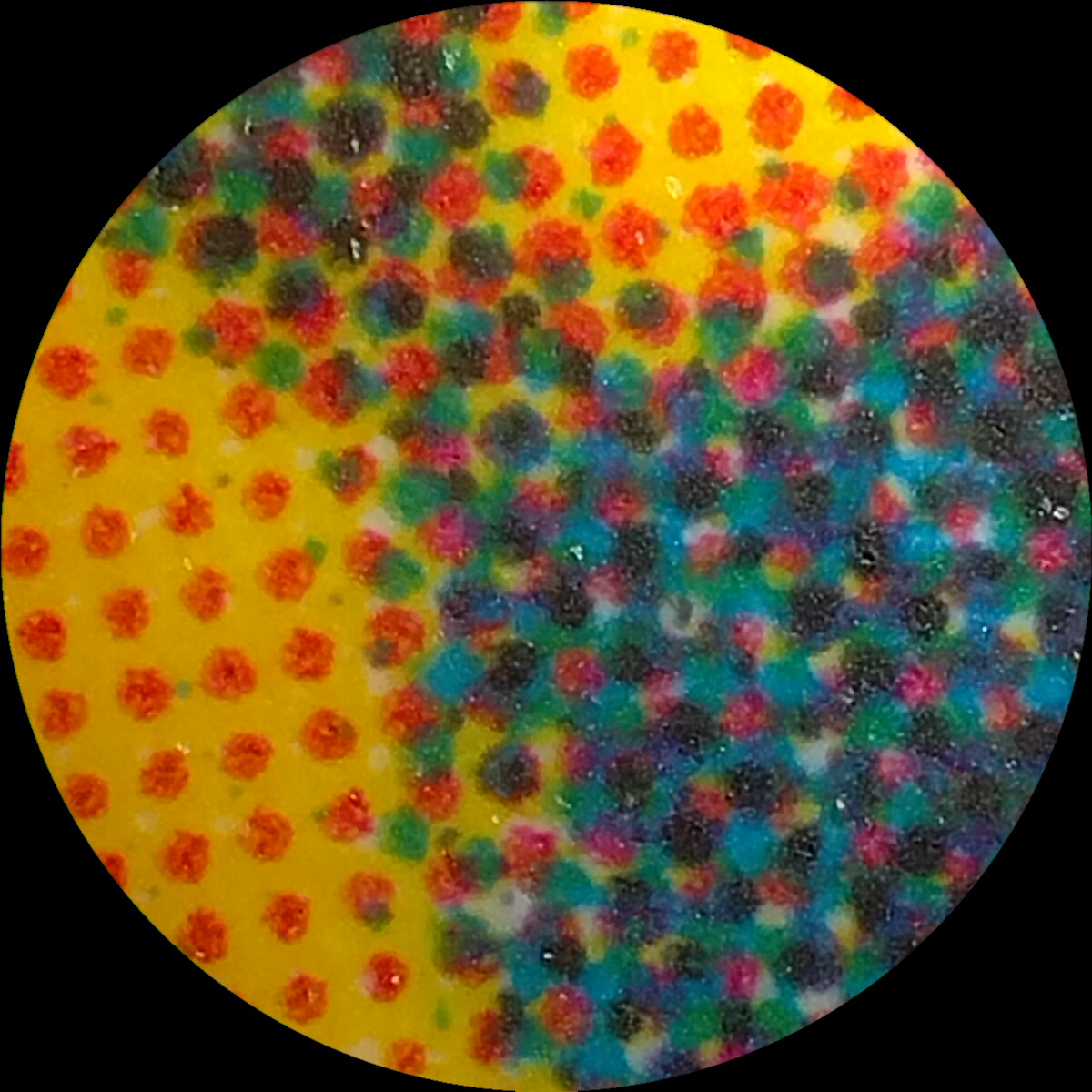
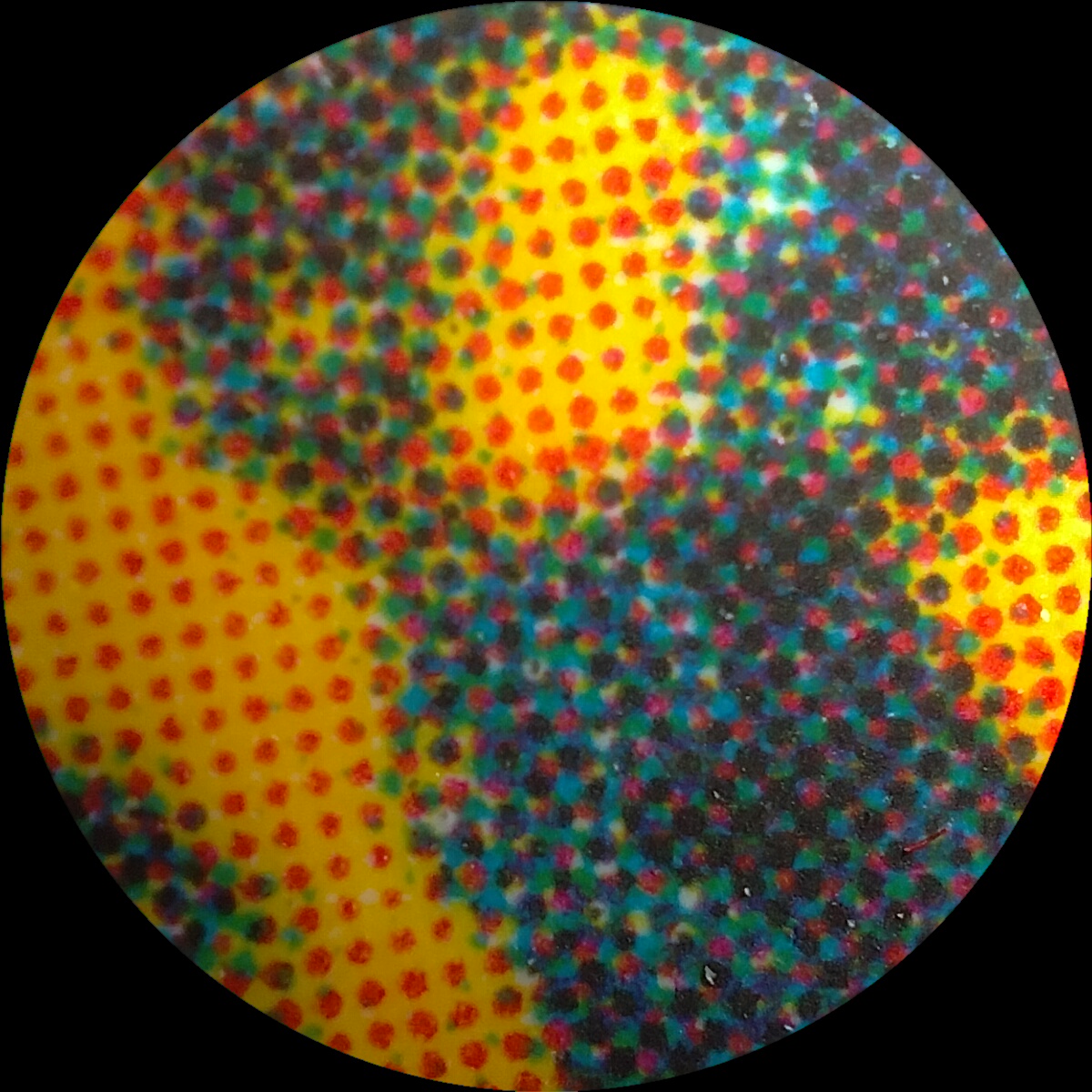








Video is not OPPO A98's strong suit:
- Large IPS display with 120Hz refresh rate
- Good main rear camera
- Long battery life and fast charging
- User-friendly Color OS 13.1
- MicroSD slot and standard headphone jack
To sum up: three things you need to know about OPPO A98.
- OPPO A98 has a large IPS display with a 120Hz refresh rate.
- The smartphone has a good battery life and charges quickly.
- Is equipped with three rear cameras, one of which acts as a microscope.
| OPPO A98 specifications | |
|---|---|
| Display | IPS, 6.72 inches, 2400x1080 (aspect ratio 20:9), 391 ppi, 120 Hz, Panda 1681 glass |
| Body | dimensions: 165.6x76.1x8.2 mm, weight: 192 g |
| Processor | 64-bit 6nm Qualcomm Snapdragon 695 5G, 2x2.2 GHz Kryo 660 Gold + 6x1.7 GHz Kryo 660 Silver, graphics Adreno 619 |
| RAM | 8 GB |
| Flash memory | 256 GB |
| Camera |
64 MP (f/1.7, 26 mm, PDAF); 2MP microscope (f/3.3, 34 mm, 20x and 40x); depth sensor: 2 MP (f/2.4); flash, video up to 1080p@30fps; front camera: 32 MP, f/2.4, 22 mm |
| Wireless technologies | Wi-Fi 802.11 a/b/g/n/ac/6 (dual-band, 2.4 and 5 GHz), Bluetooth 5.1 LE (SBC, AAC, aptX HD, LDAC), NFC |
| GPS | GPS, A-GPS, GLONASS, BDS, GALILEO, QZSS |
| Battery | 5000 mAh, non-removable, fast charging 67 W |
| Operating system | Android 13 + Color OS 13.1 |
| Sim-card | 2xNanoSIM + MicroSD |
| Optional | Stereo sound |
For those who want to know more:
- How to save money on Galaxy S23: Samsung Galaxy A54 and Galaxy A34 review
- Huawei FreeBuds 5 TWS headphones review: space design and active noise cancellation
- ASUS Zenbook S 13 OLED (UX5304V) review: the thinnest 13-inch laptop with OLED display
- The Eternal Revolutionary: Samsung Galaxy S23 and Galaxy S23+ R eview
- Oneplus Nord CE 2 5G review: A well-stocked smartphone for $305
